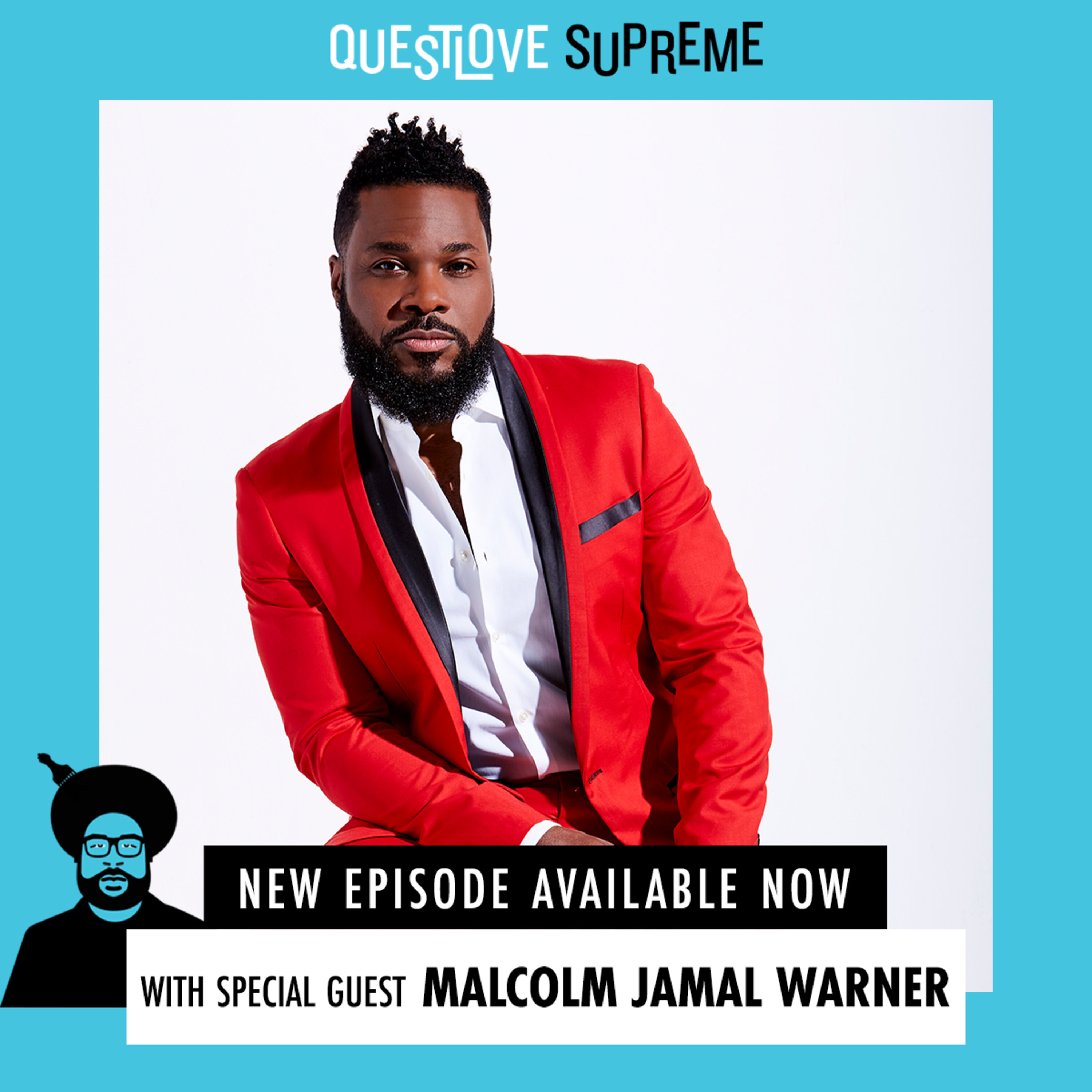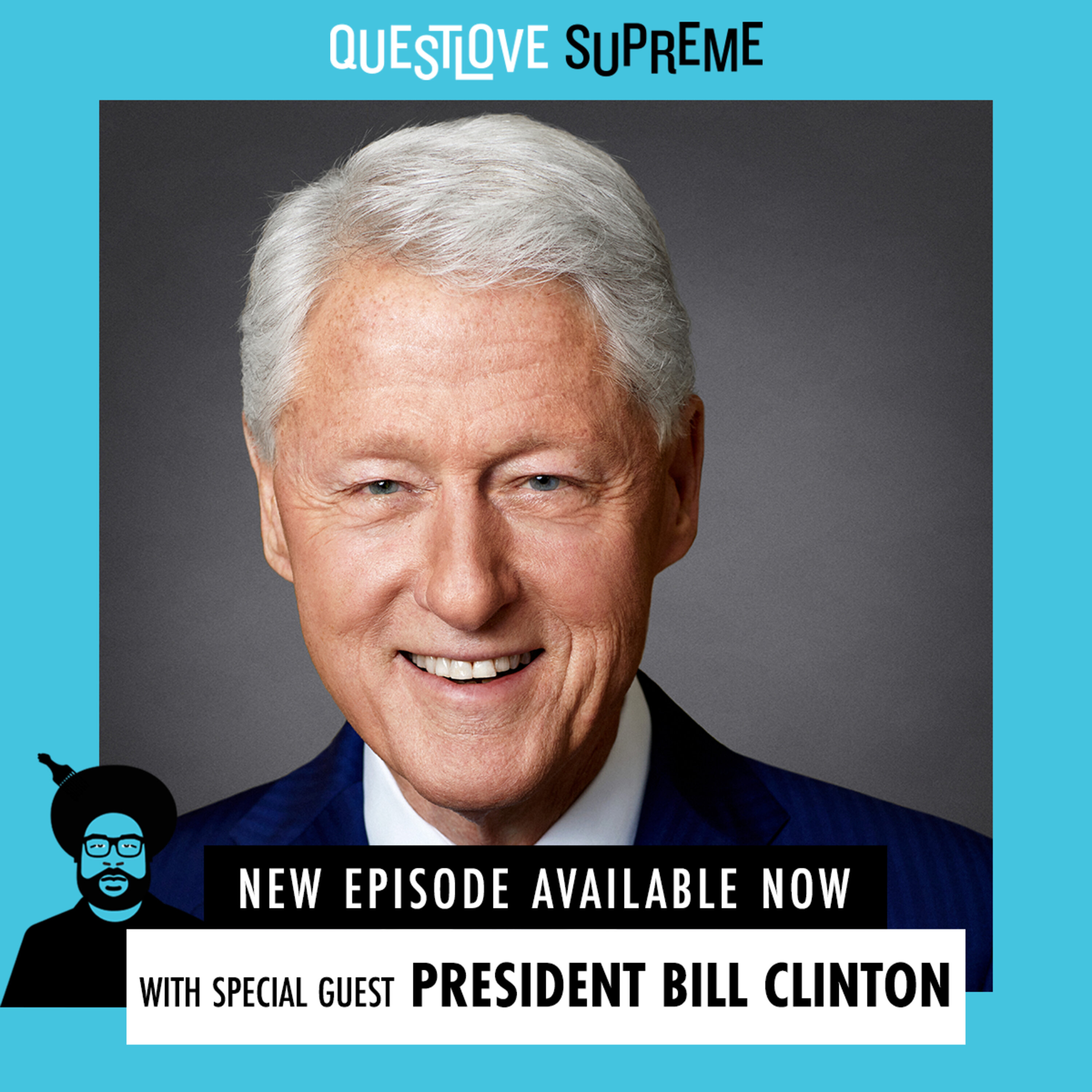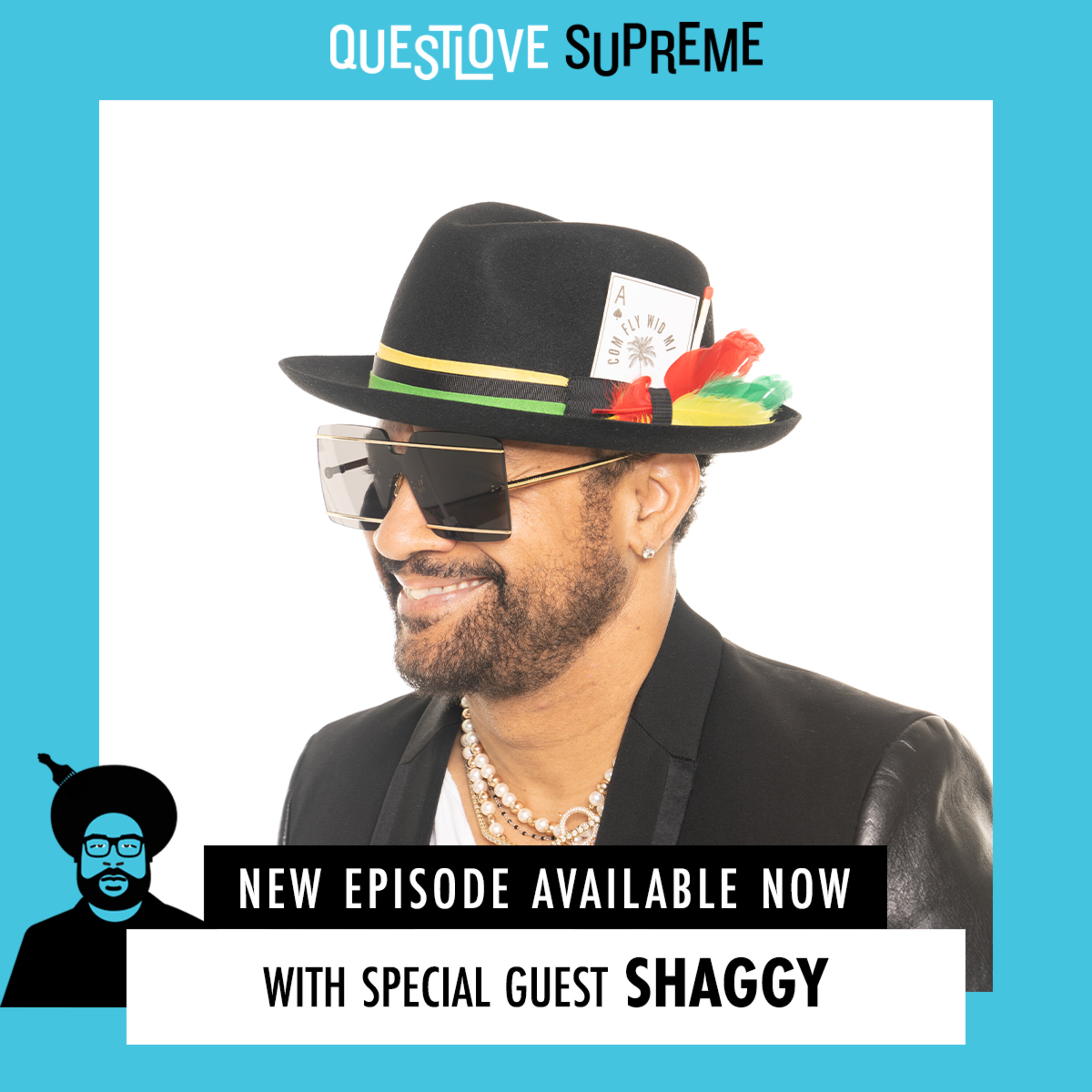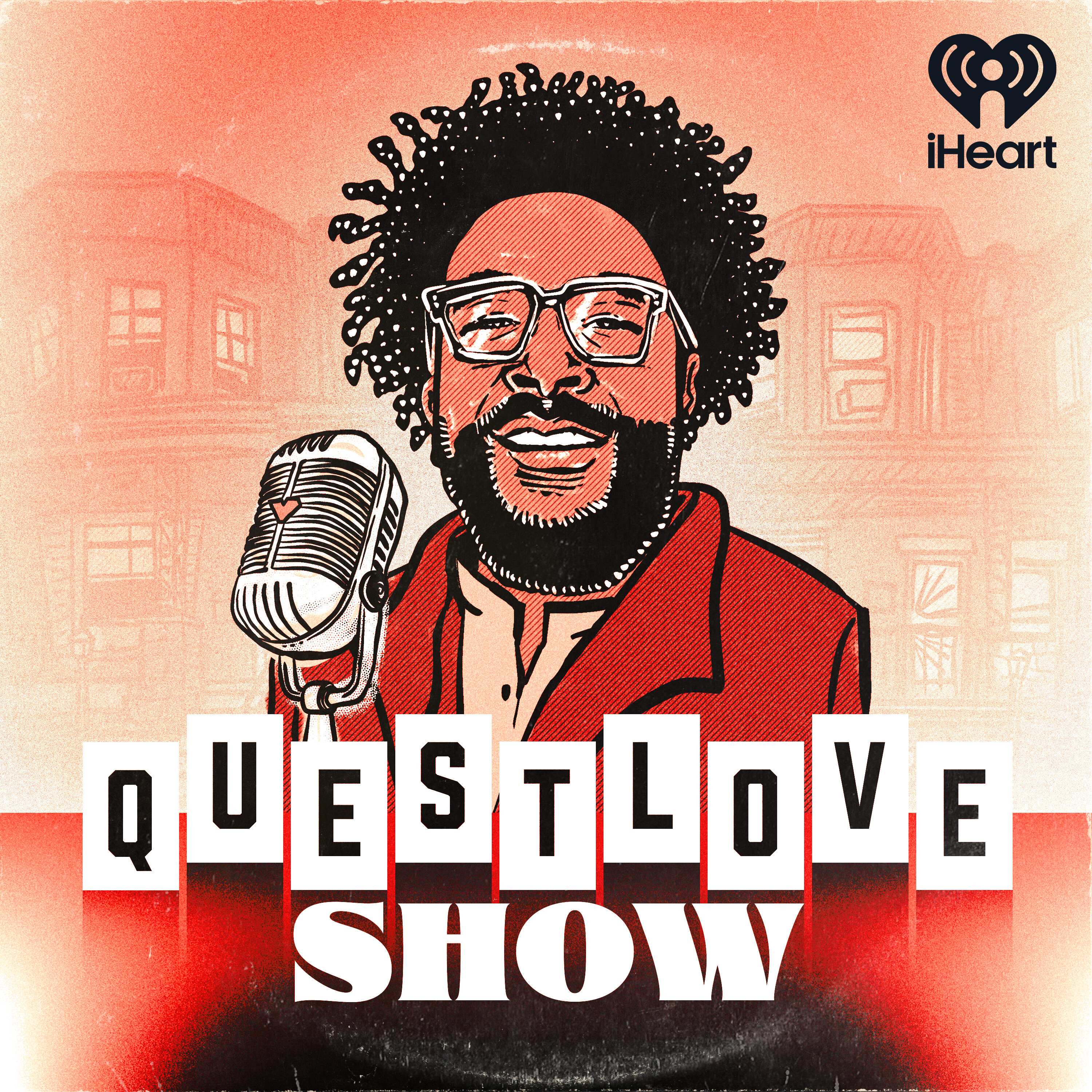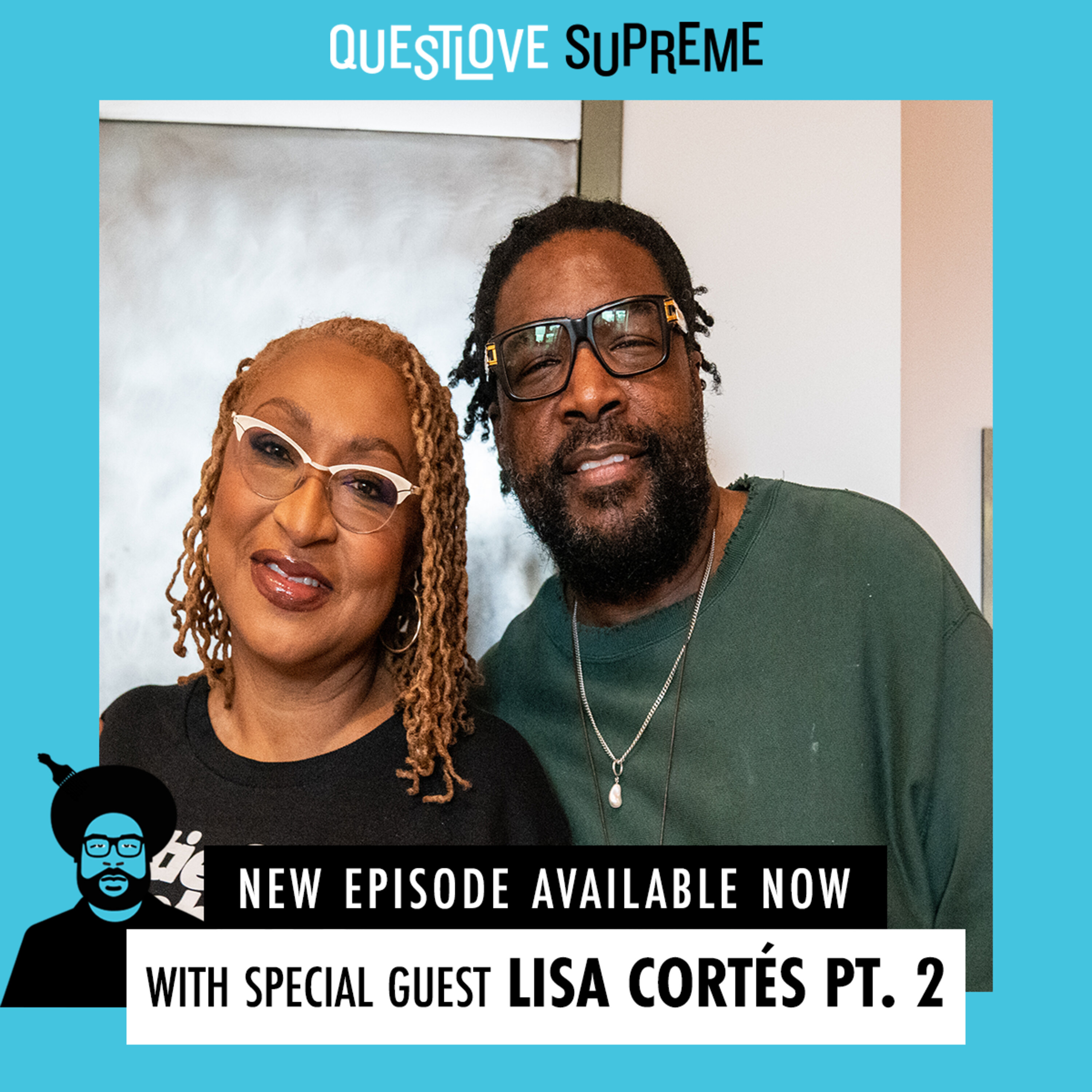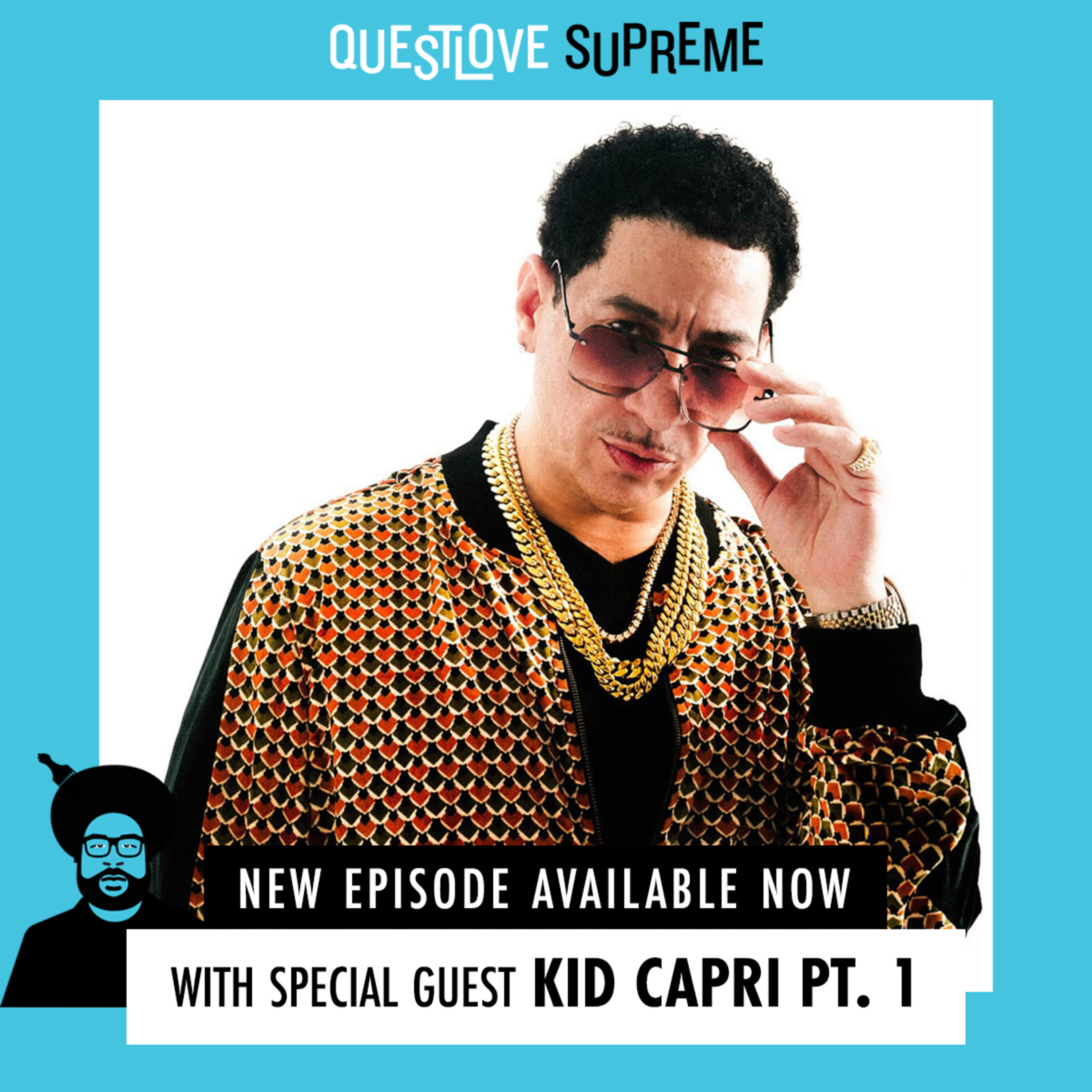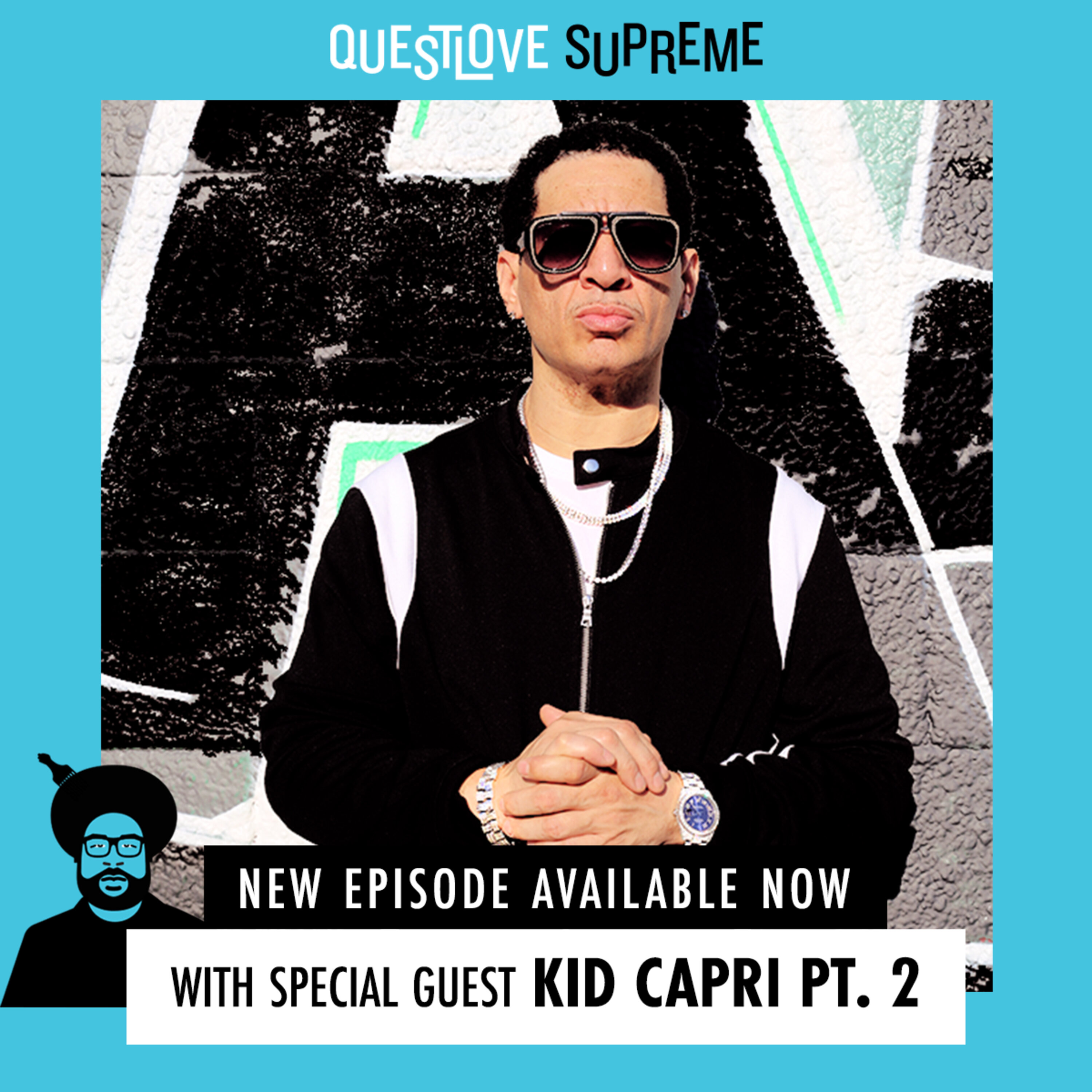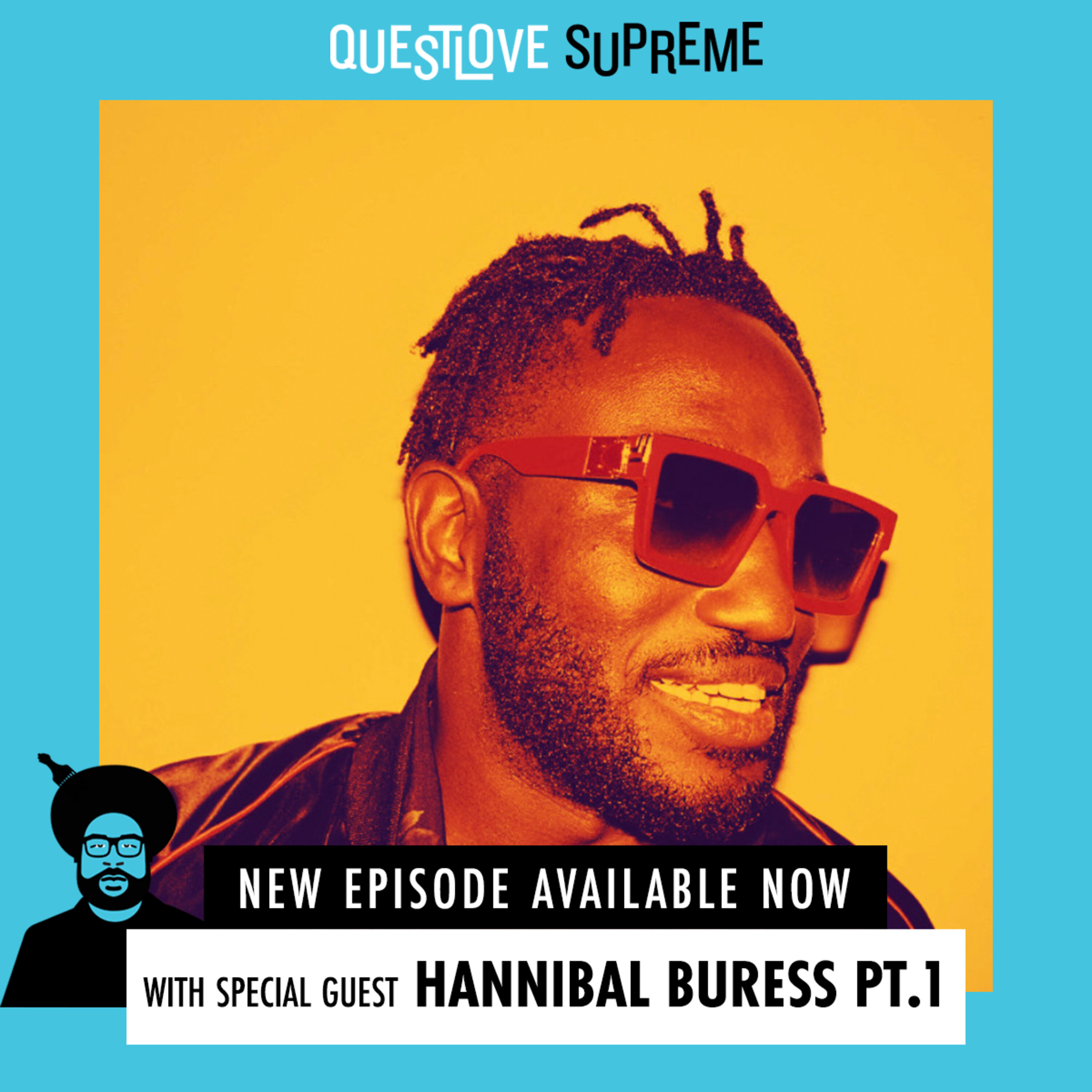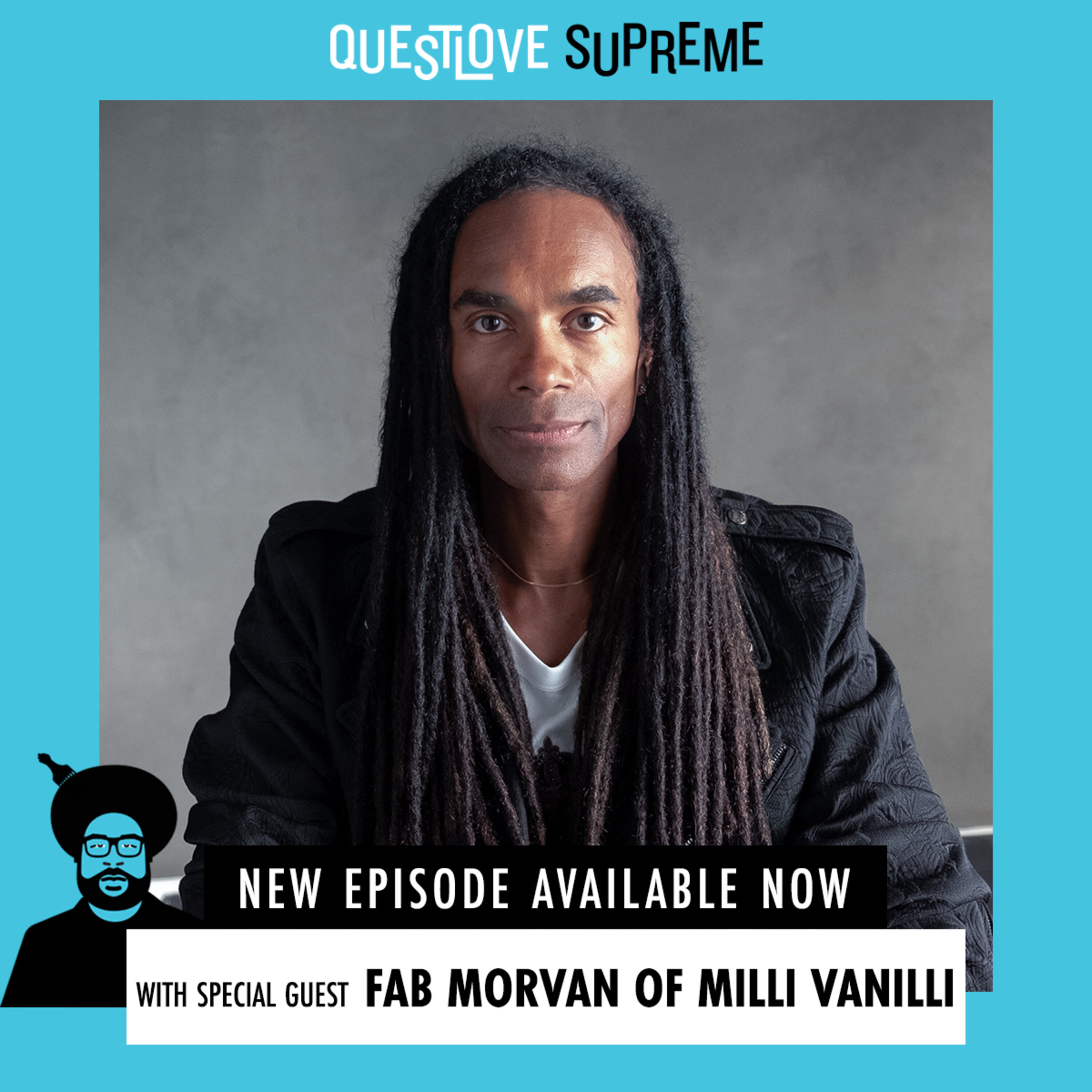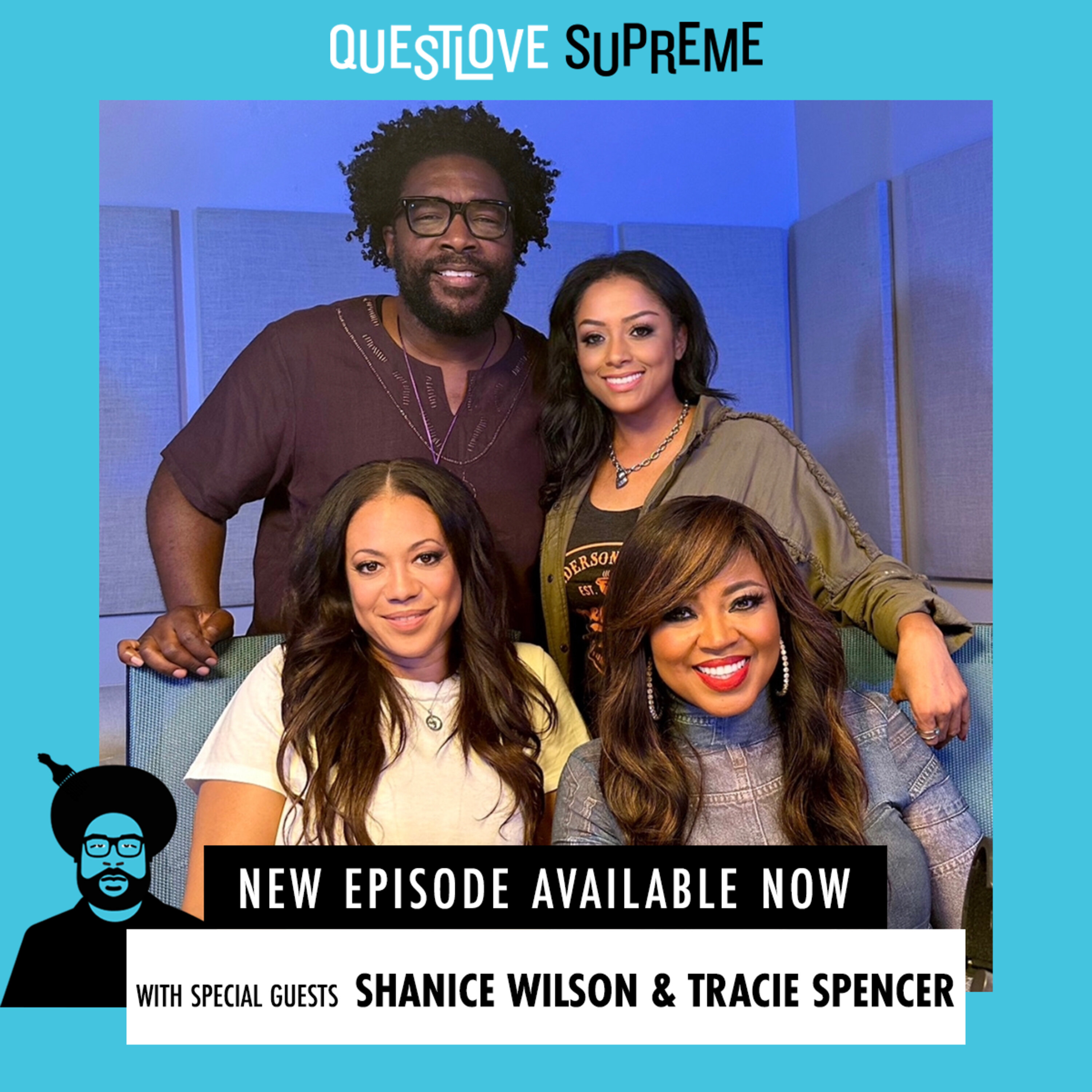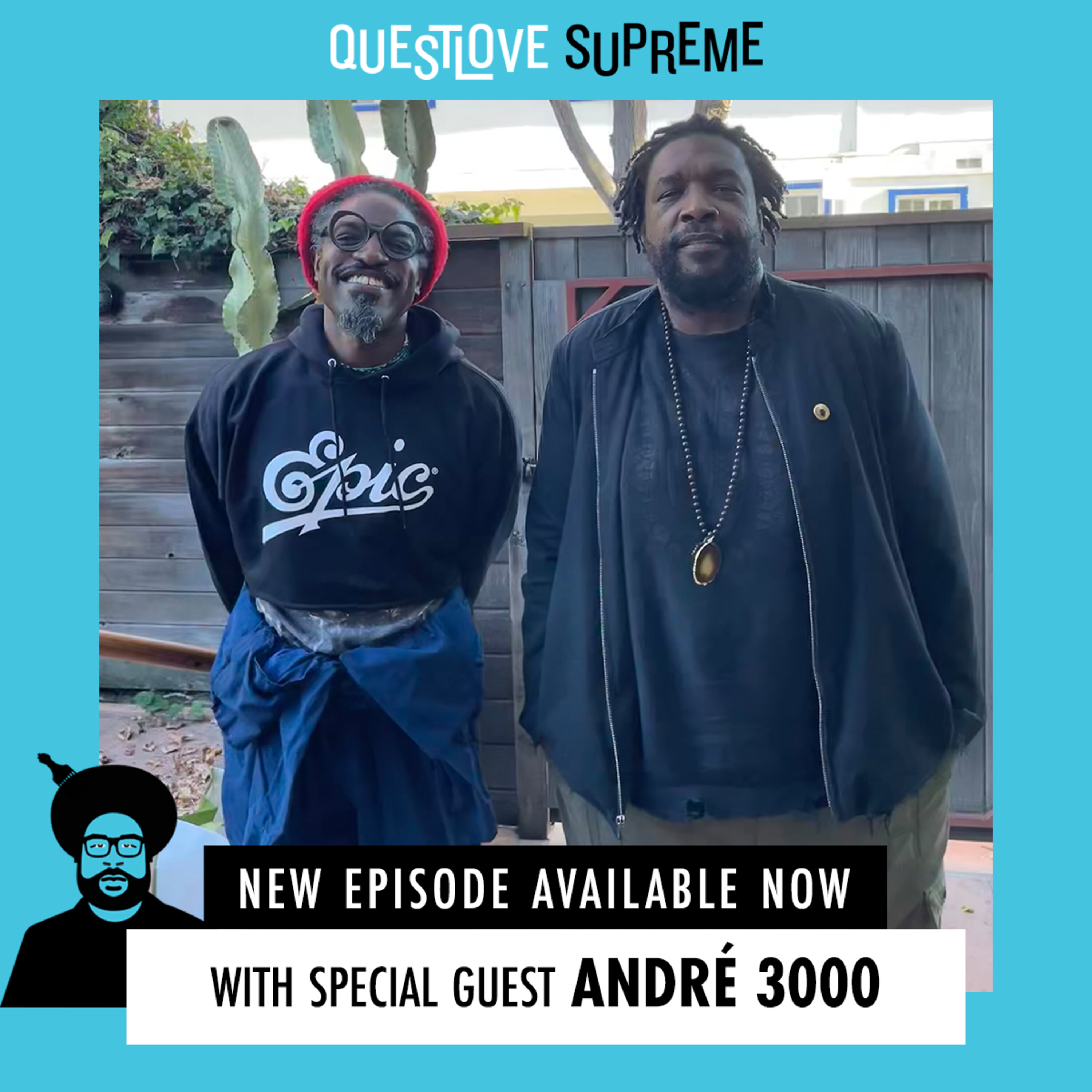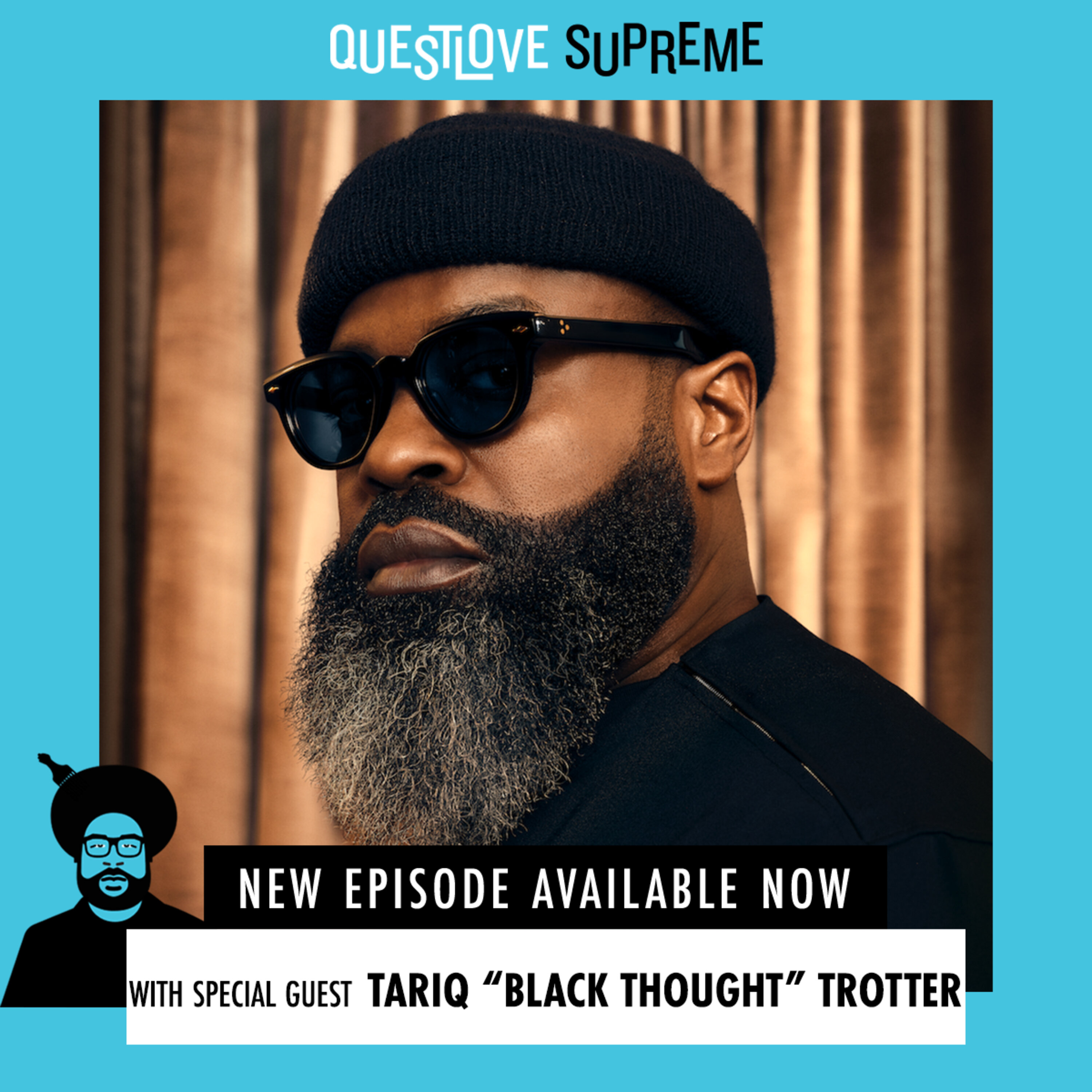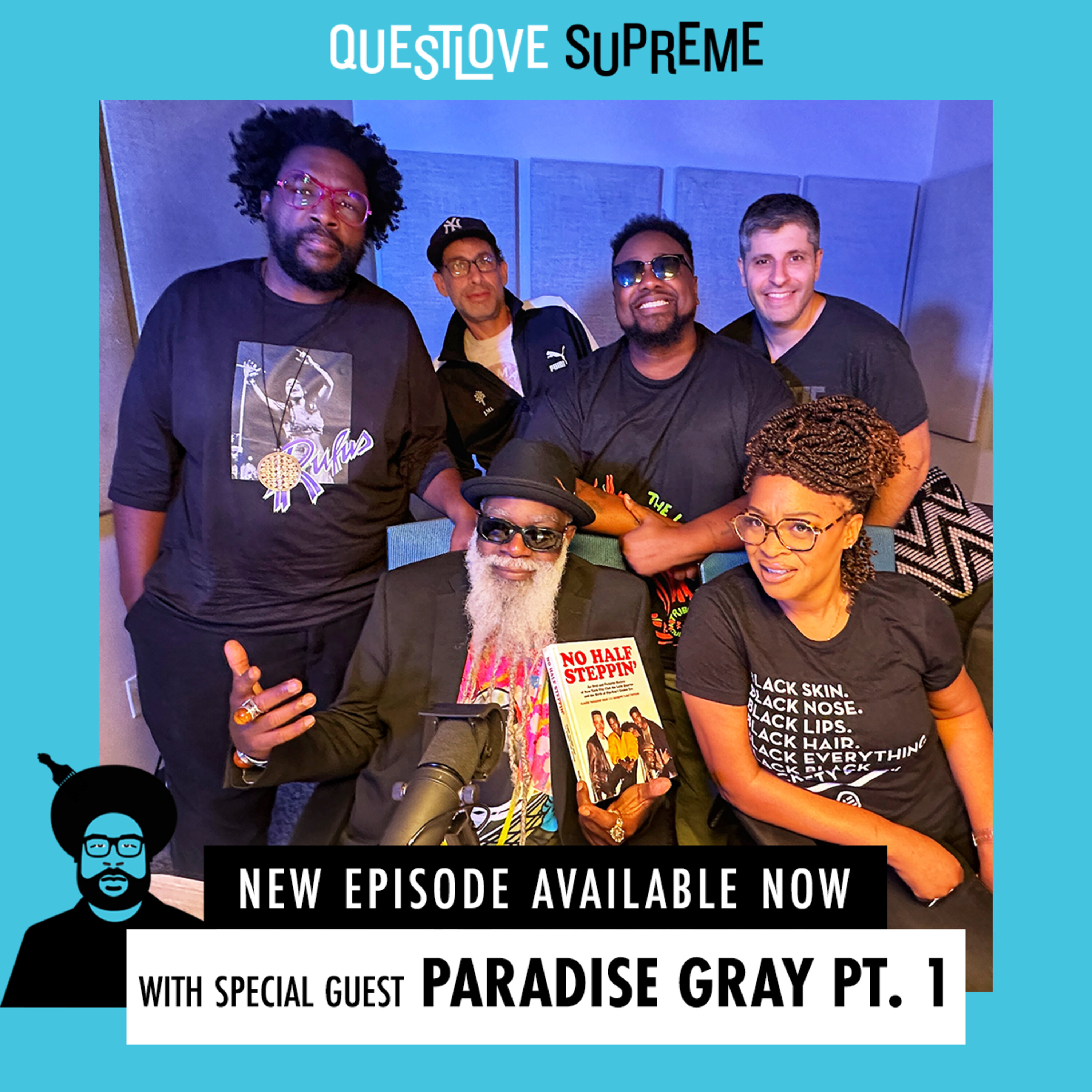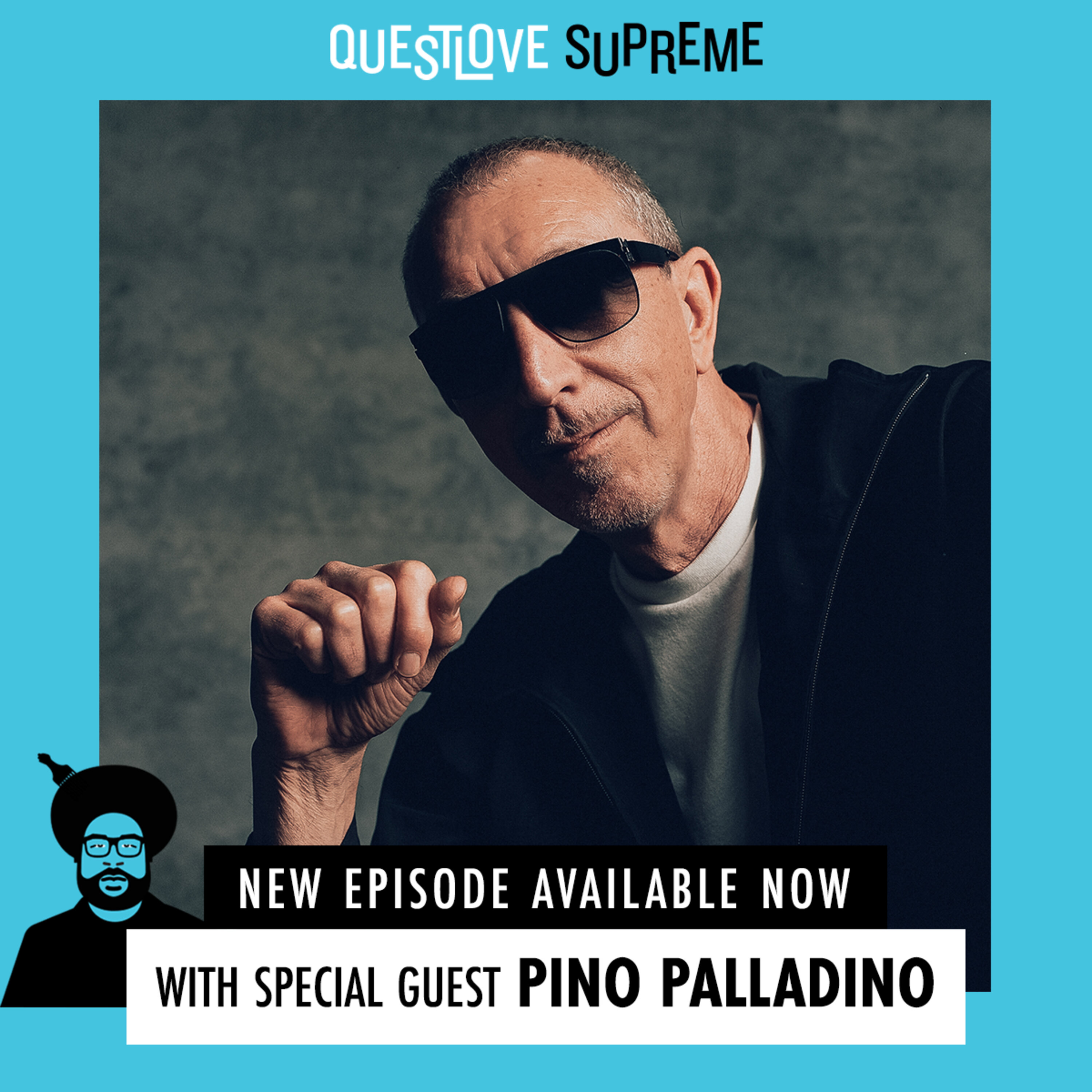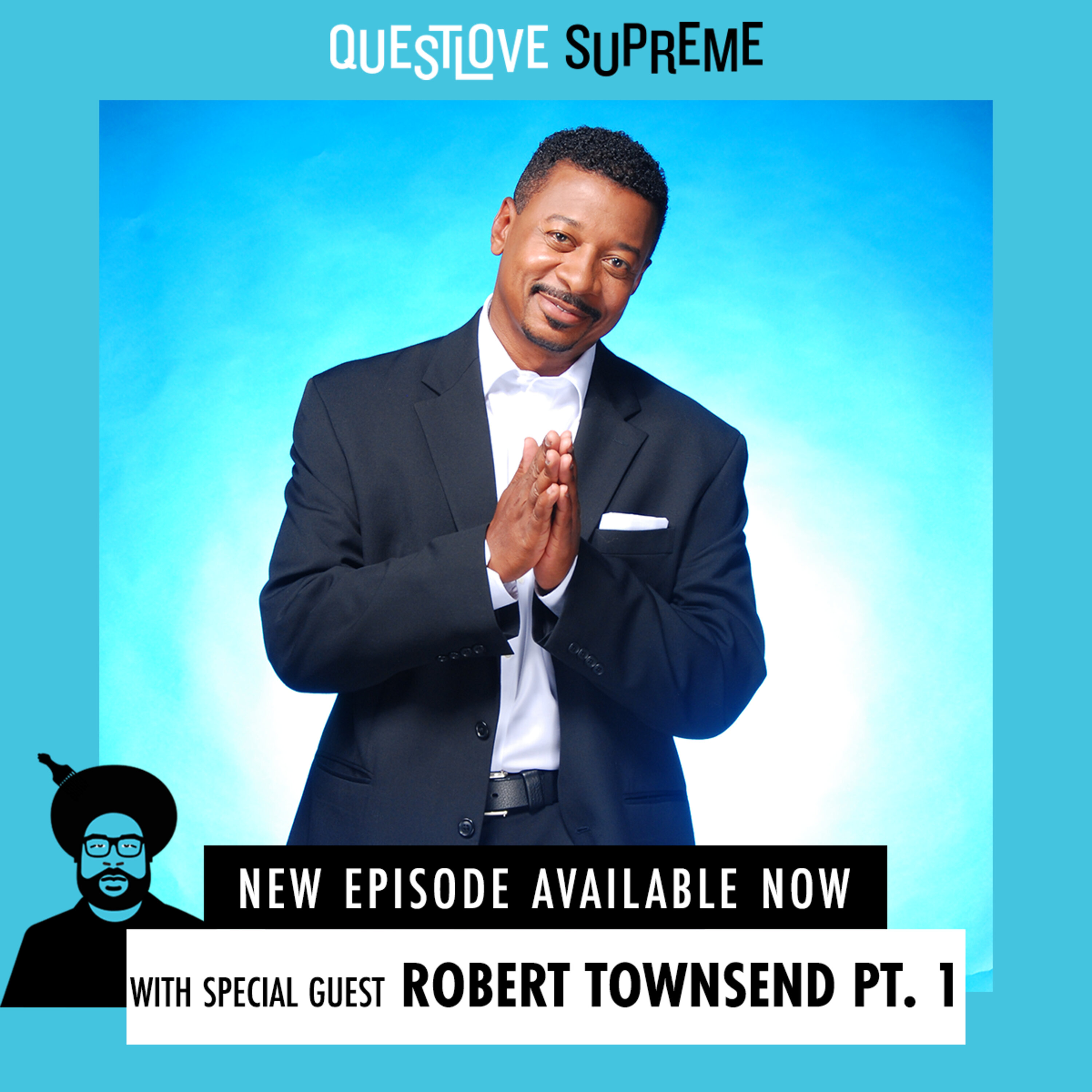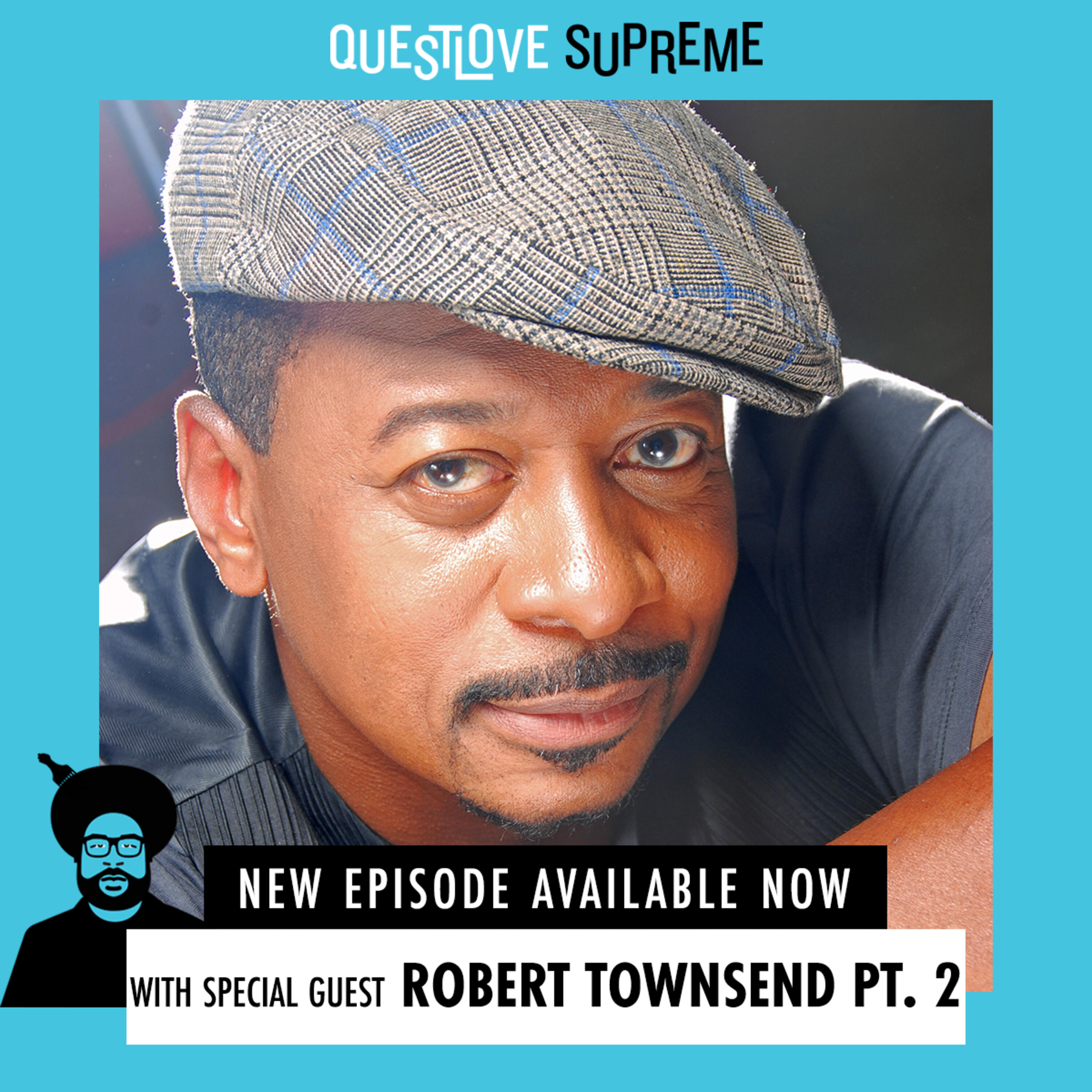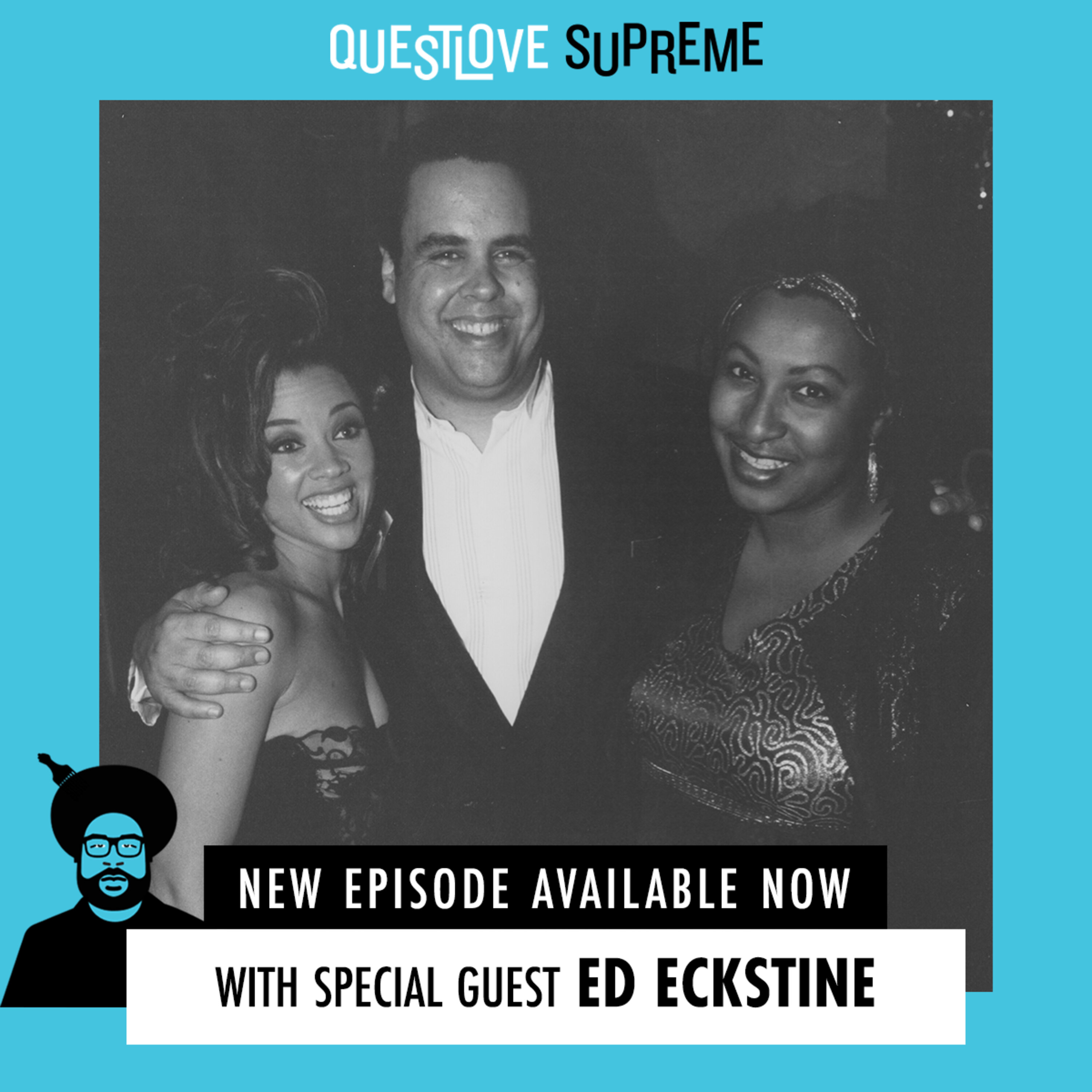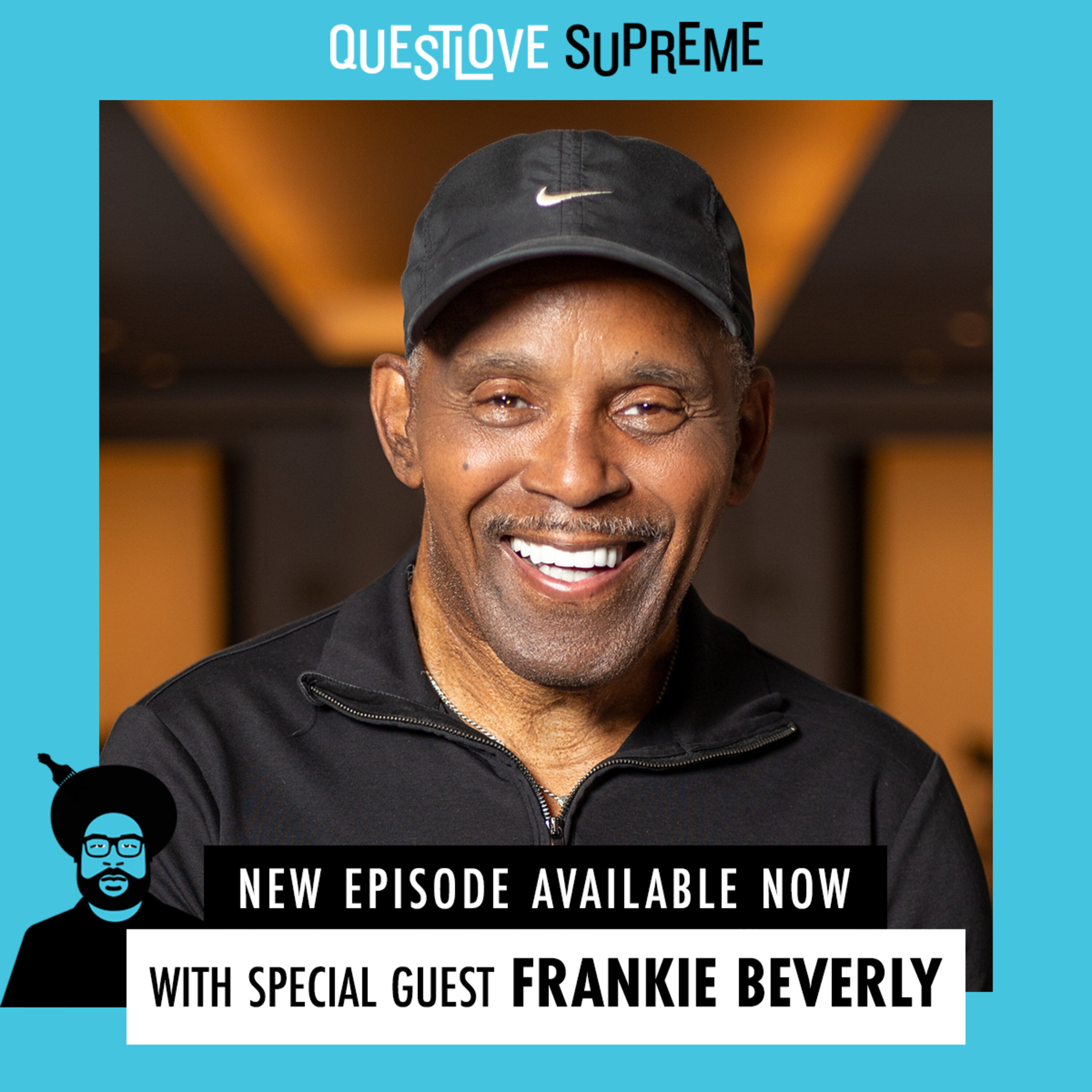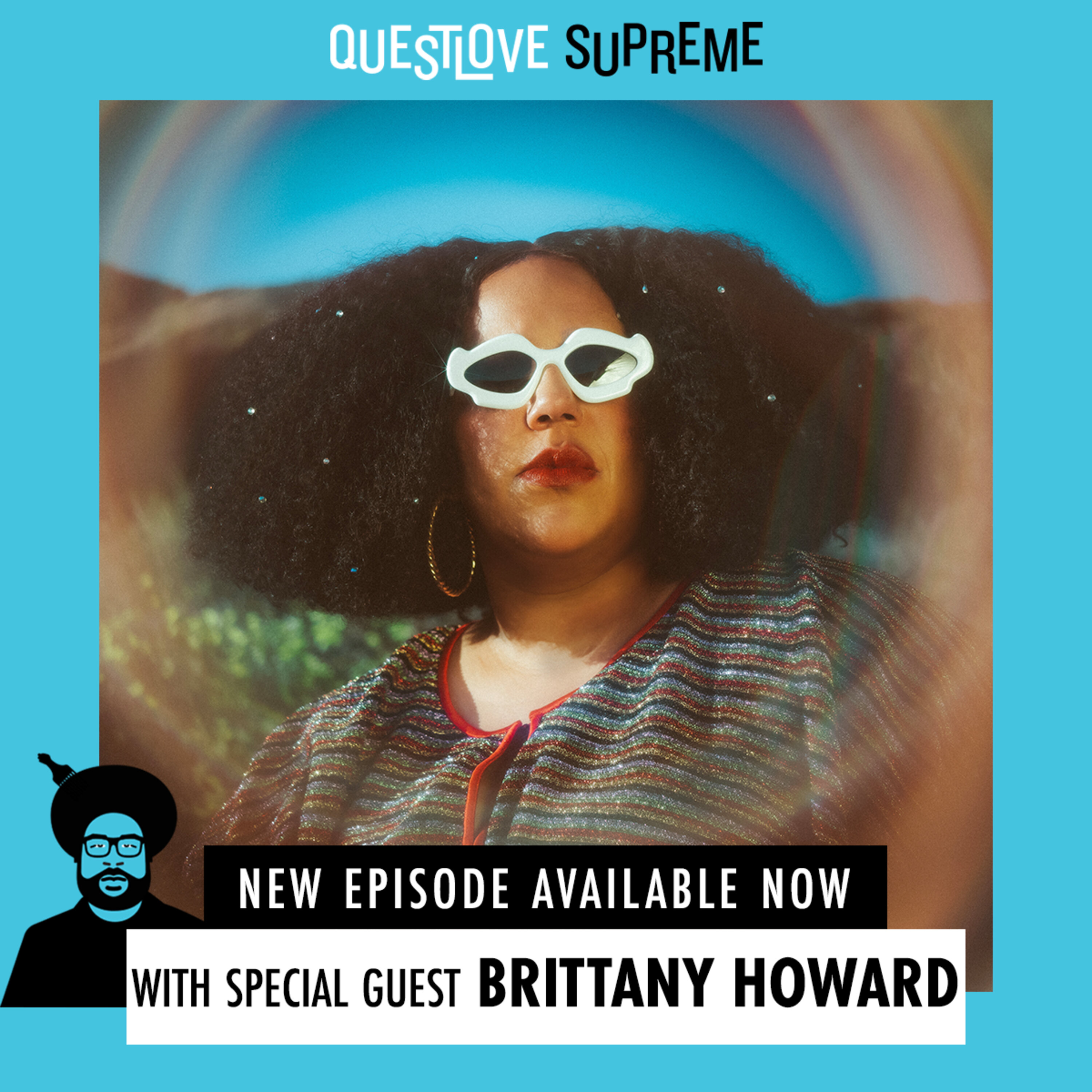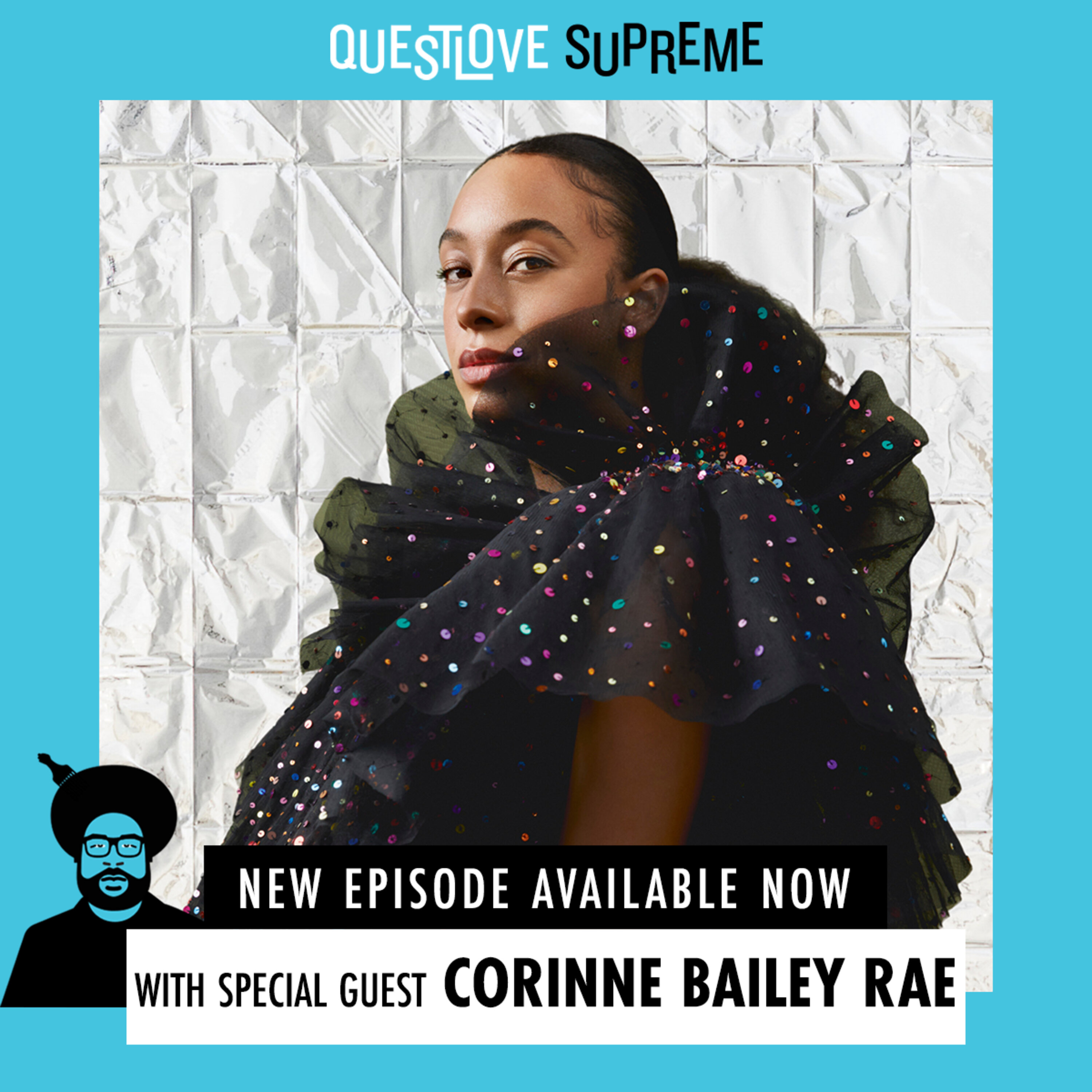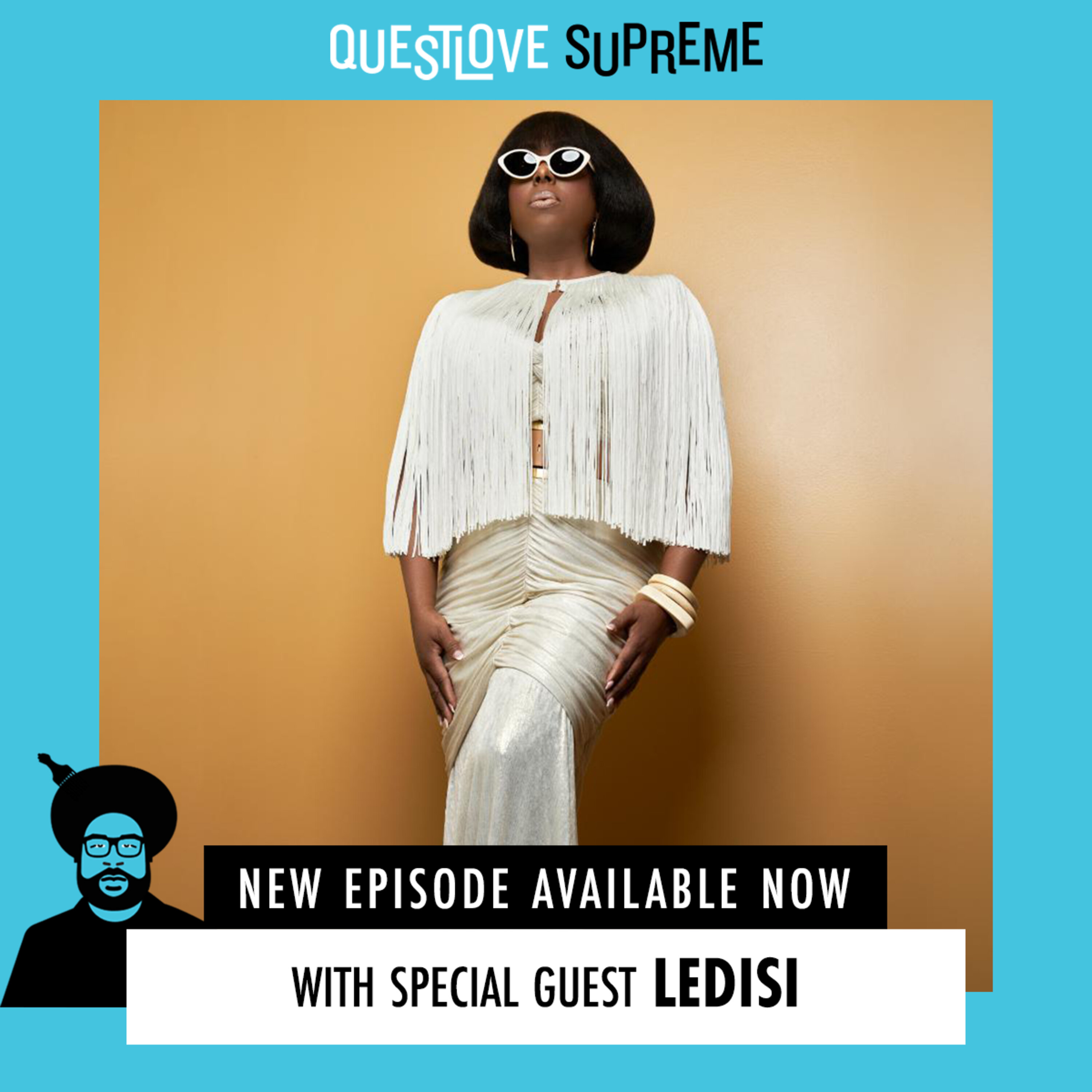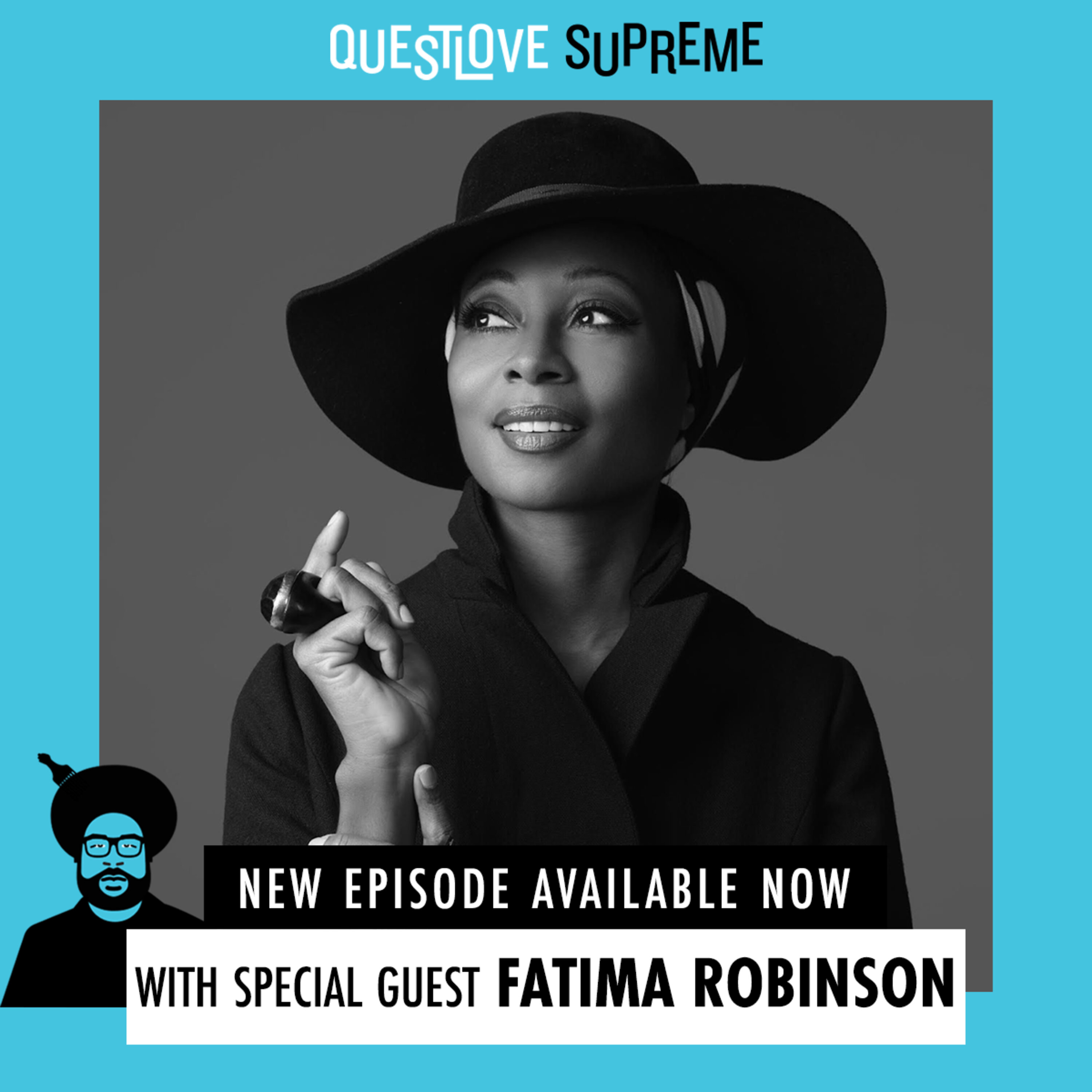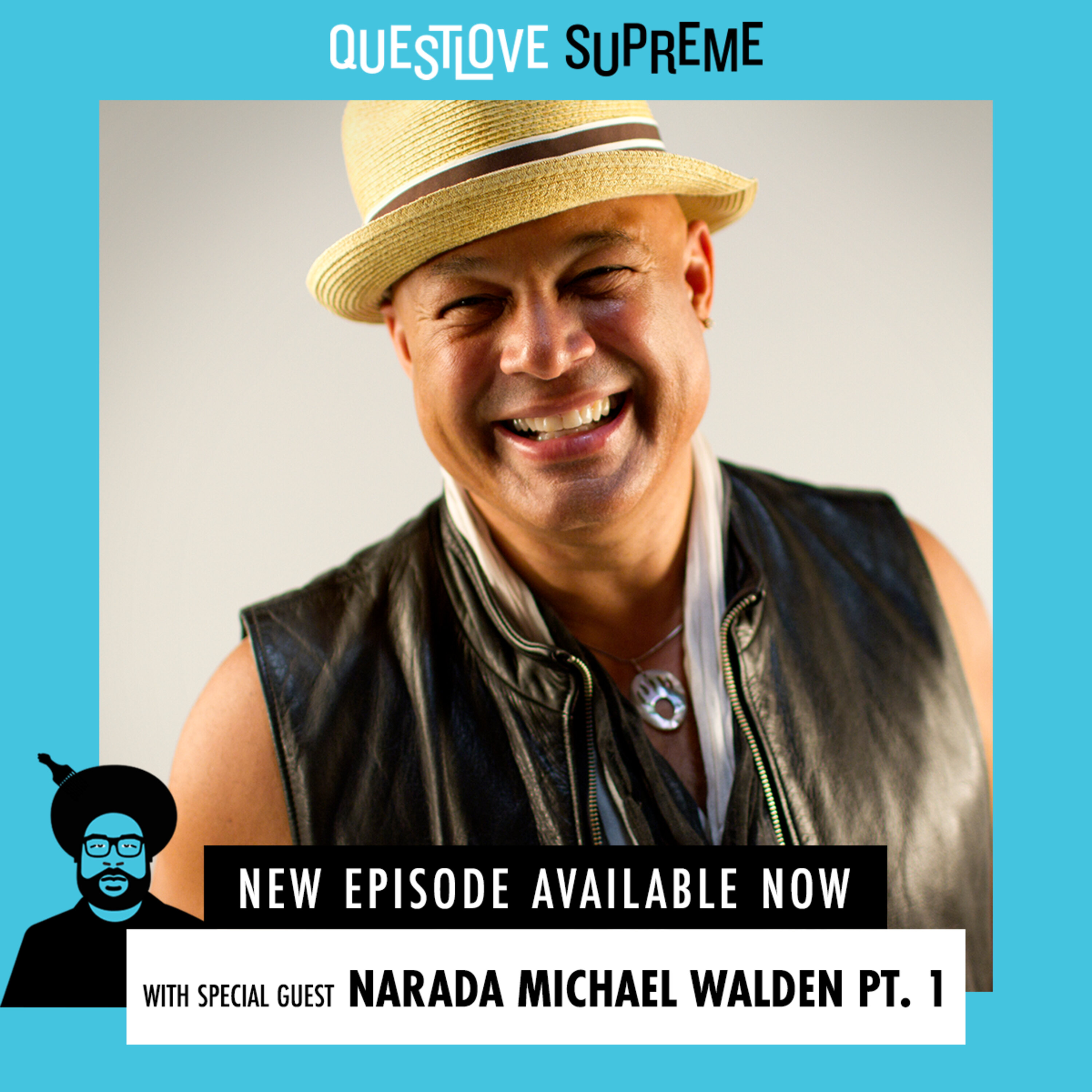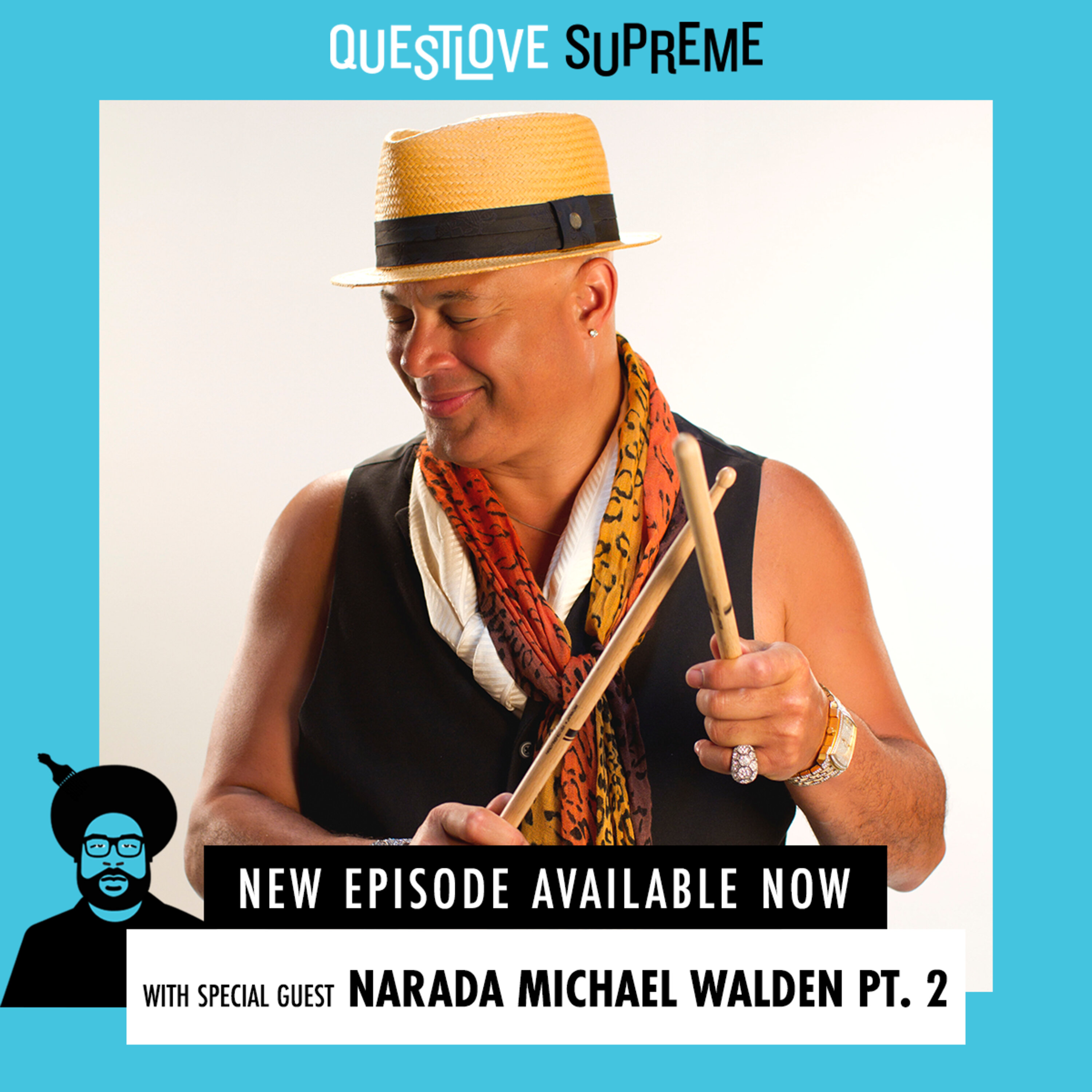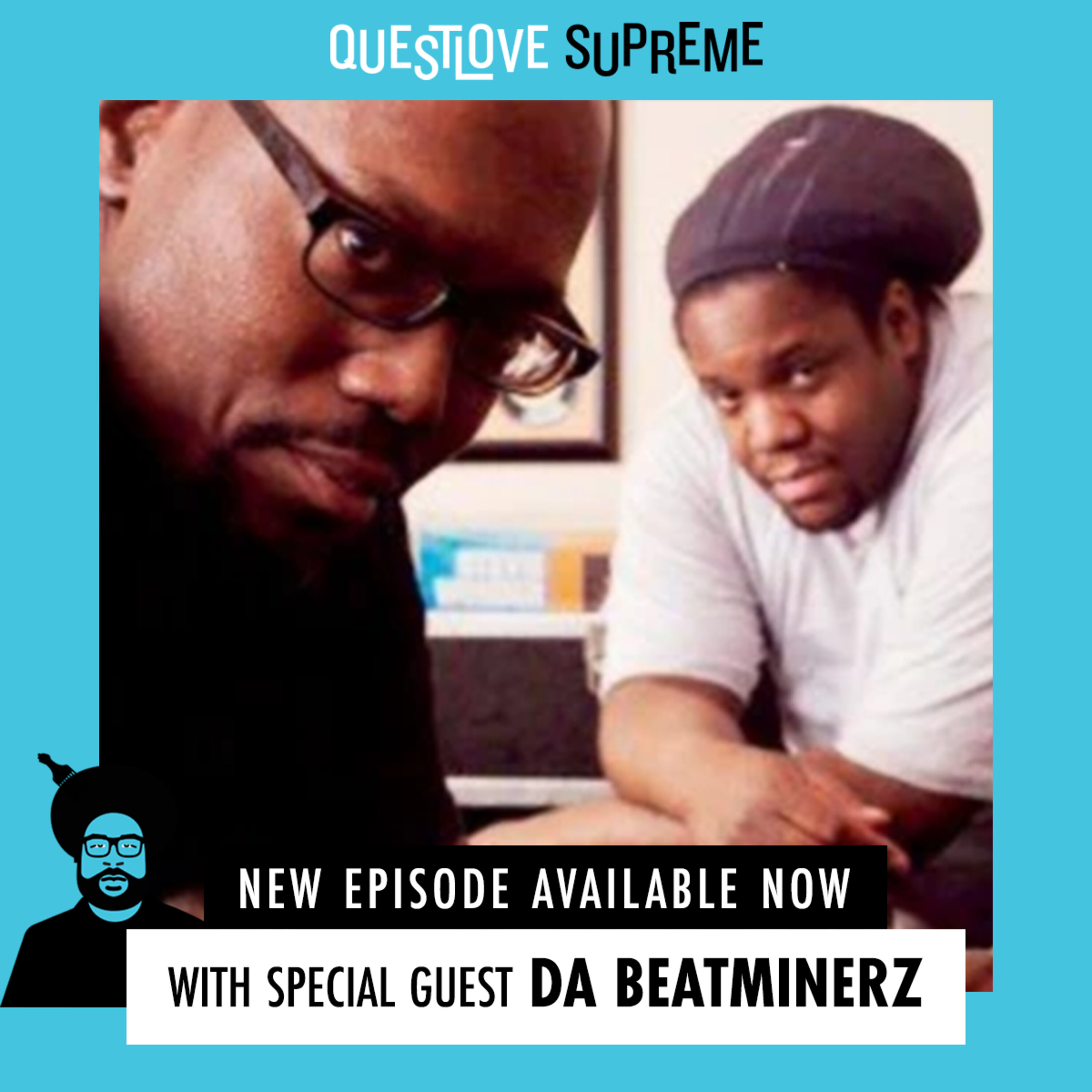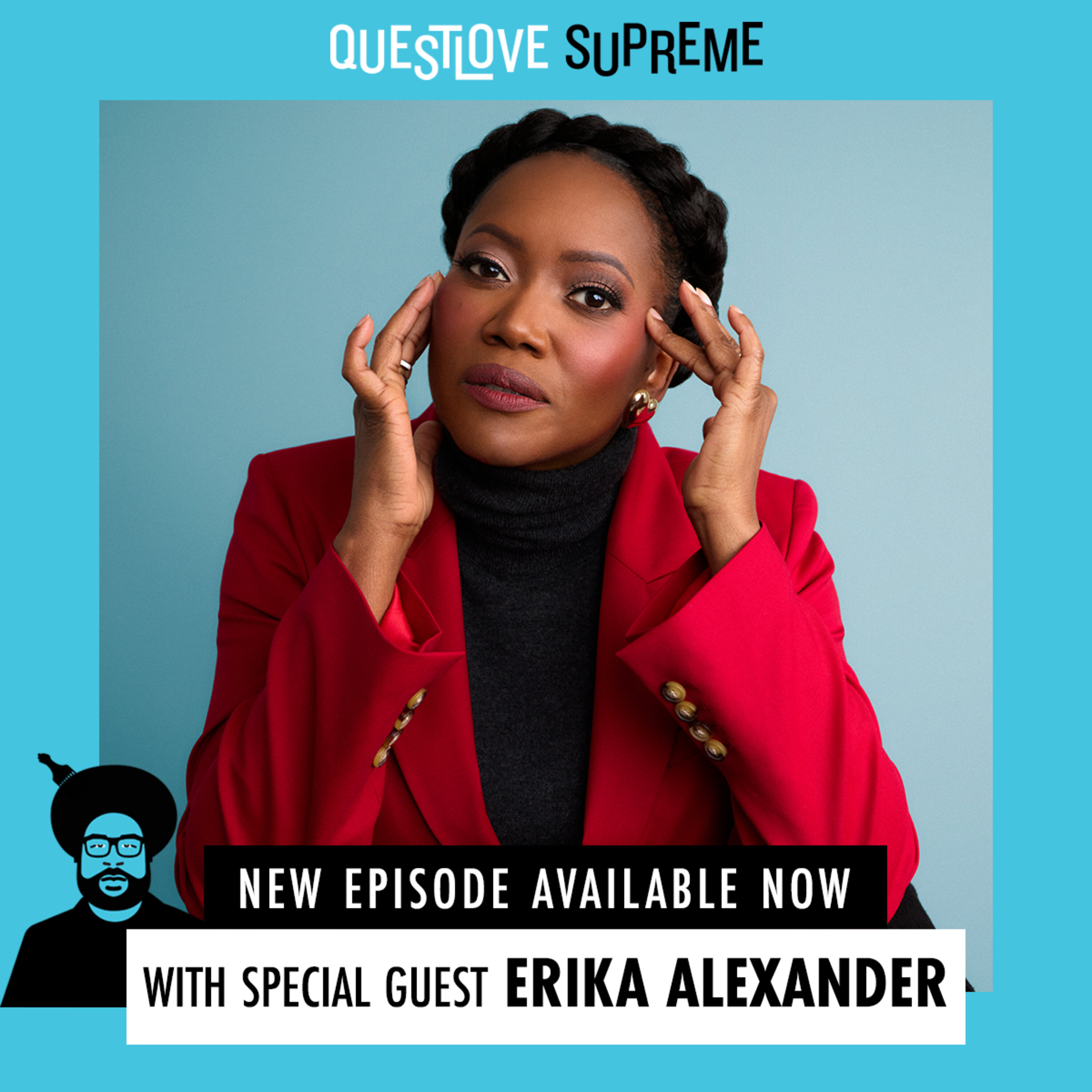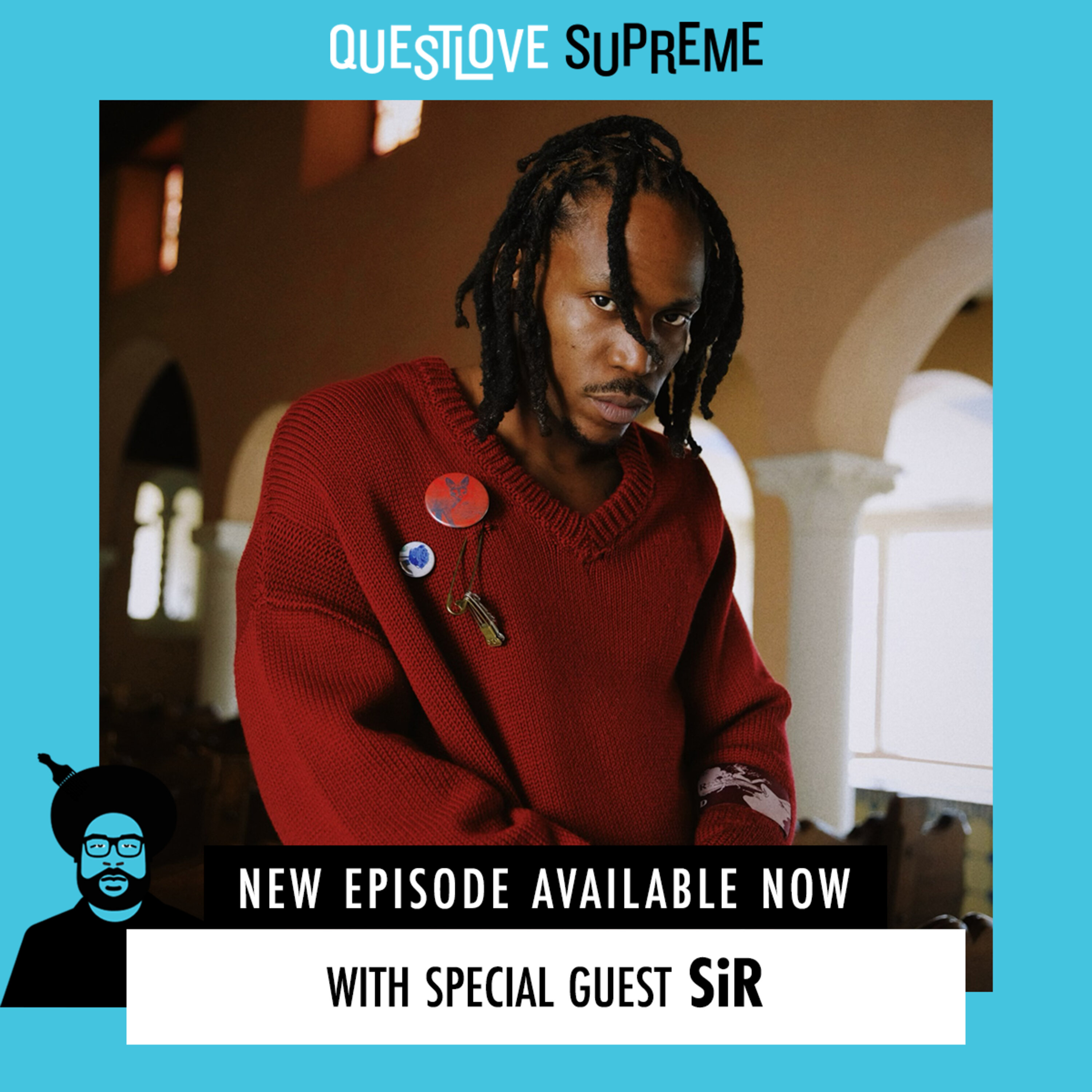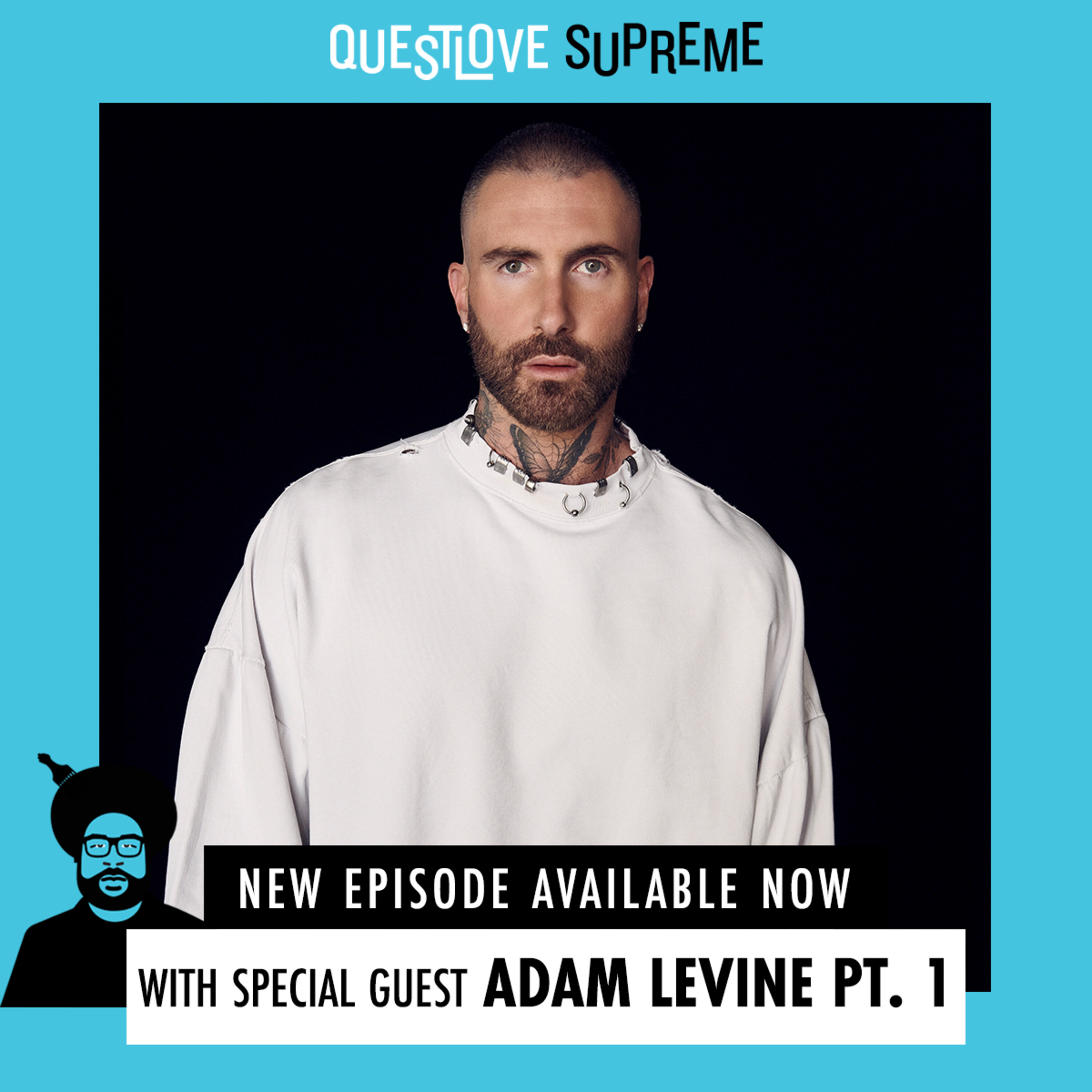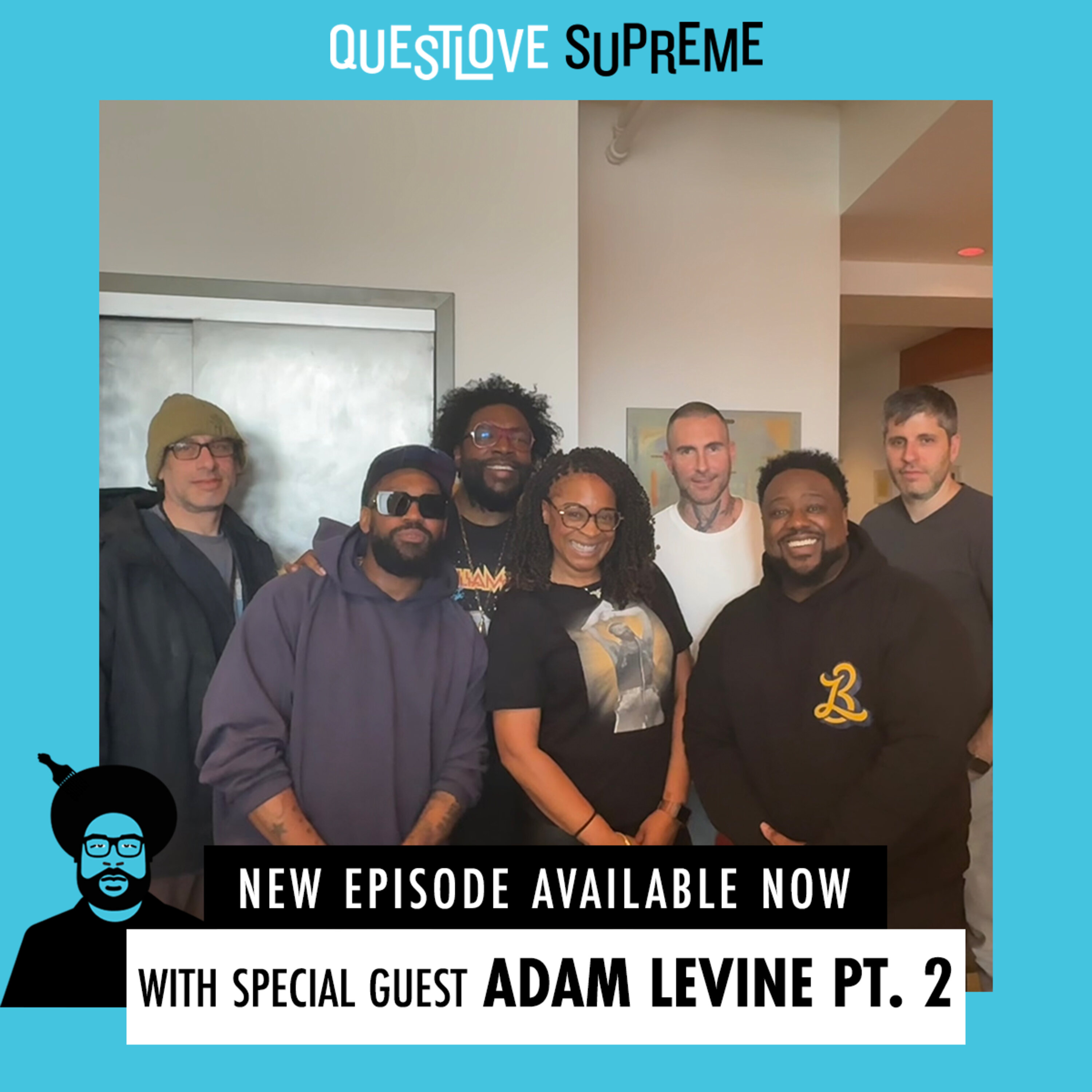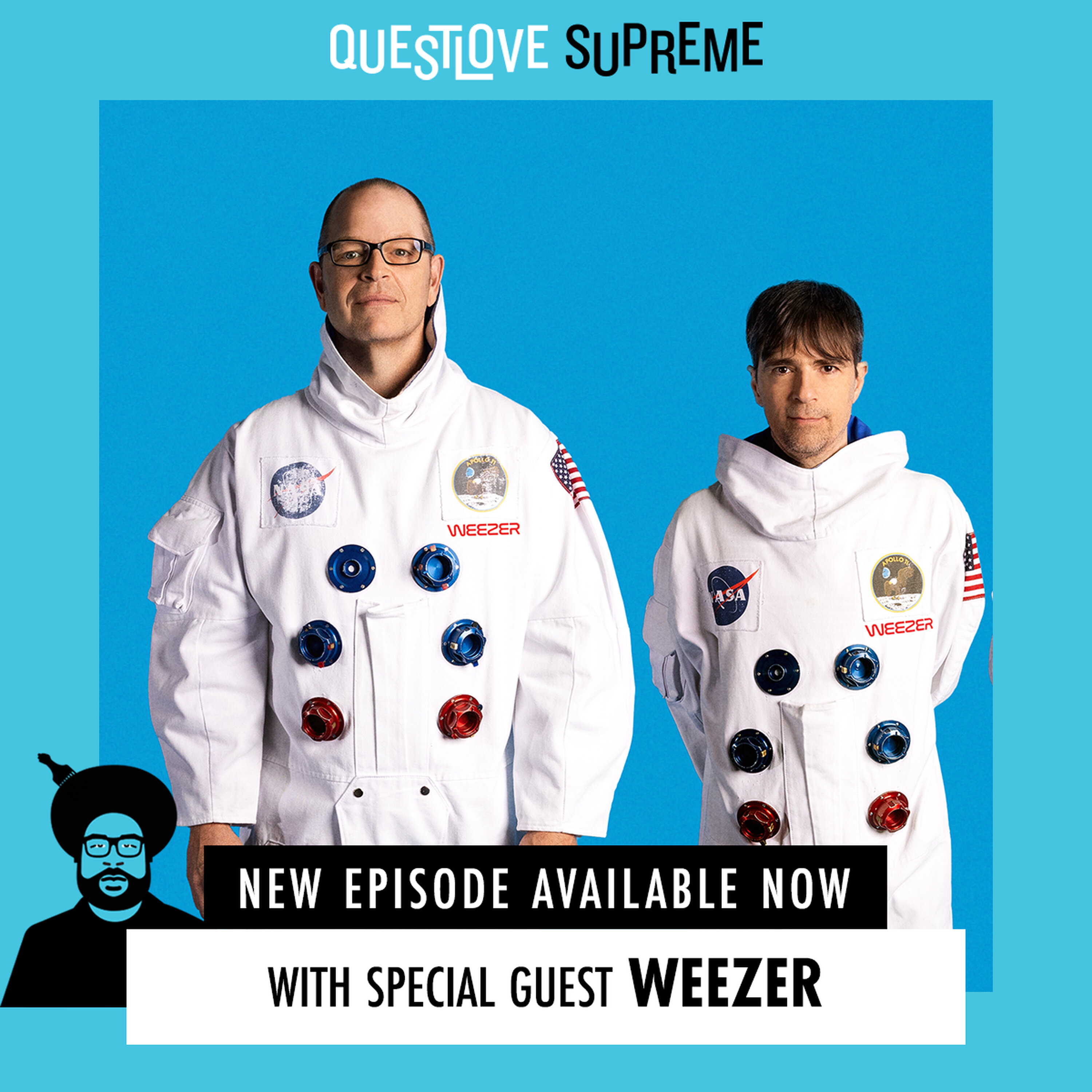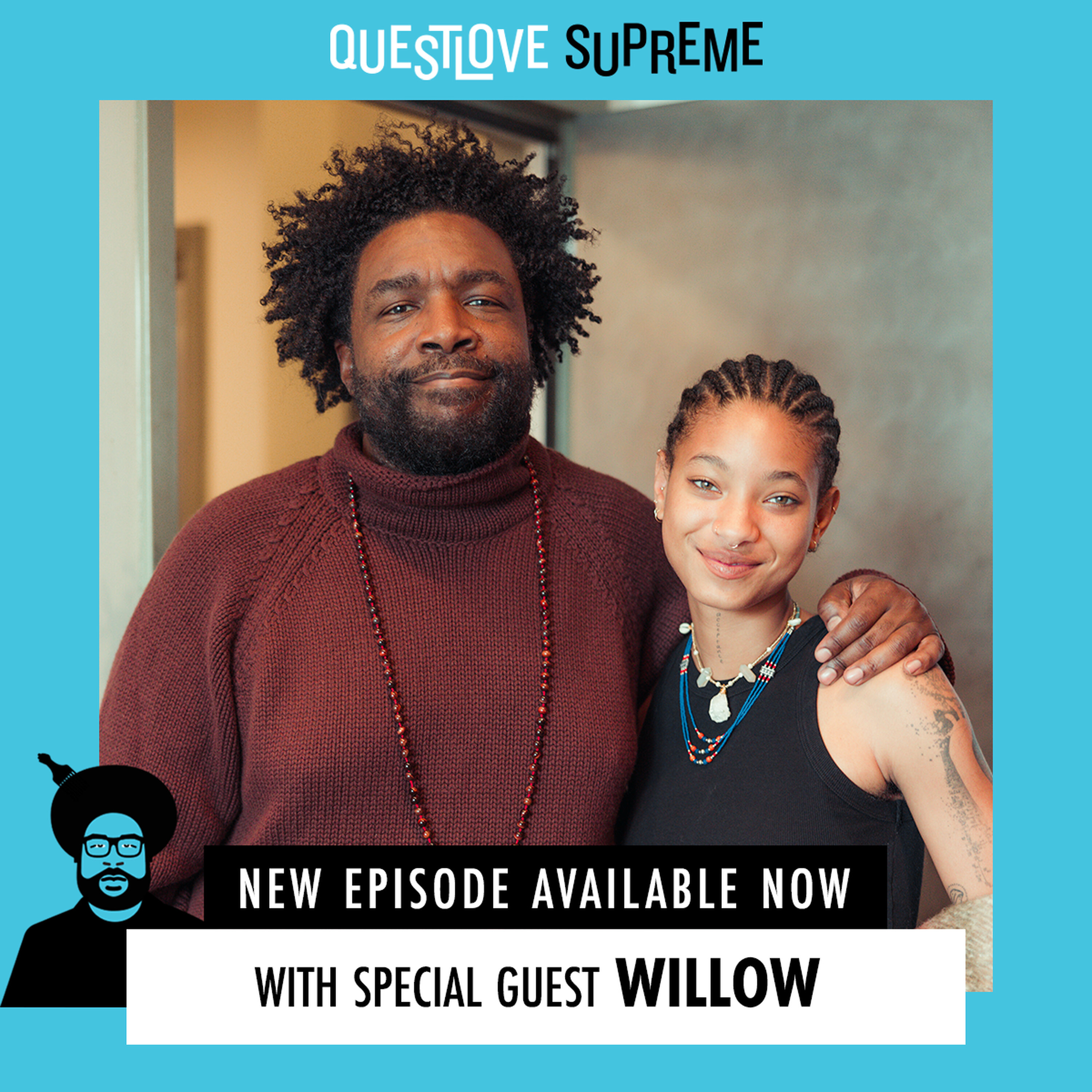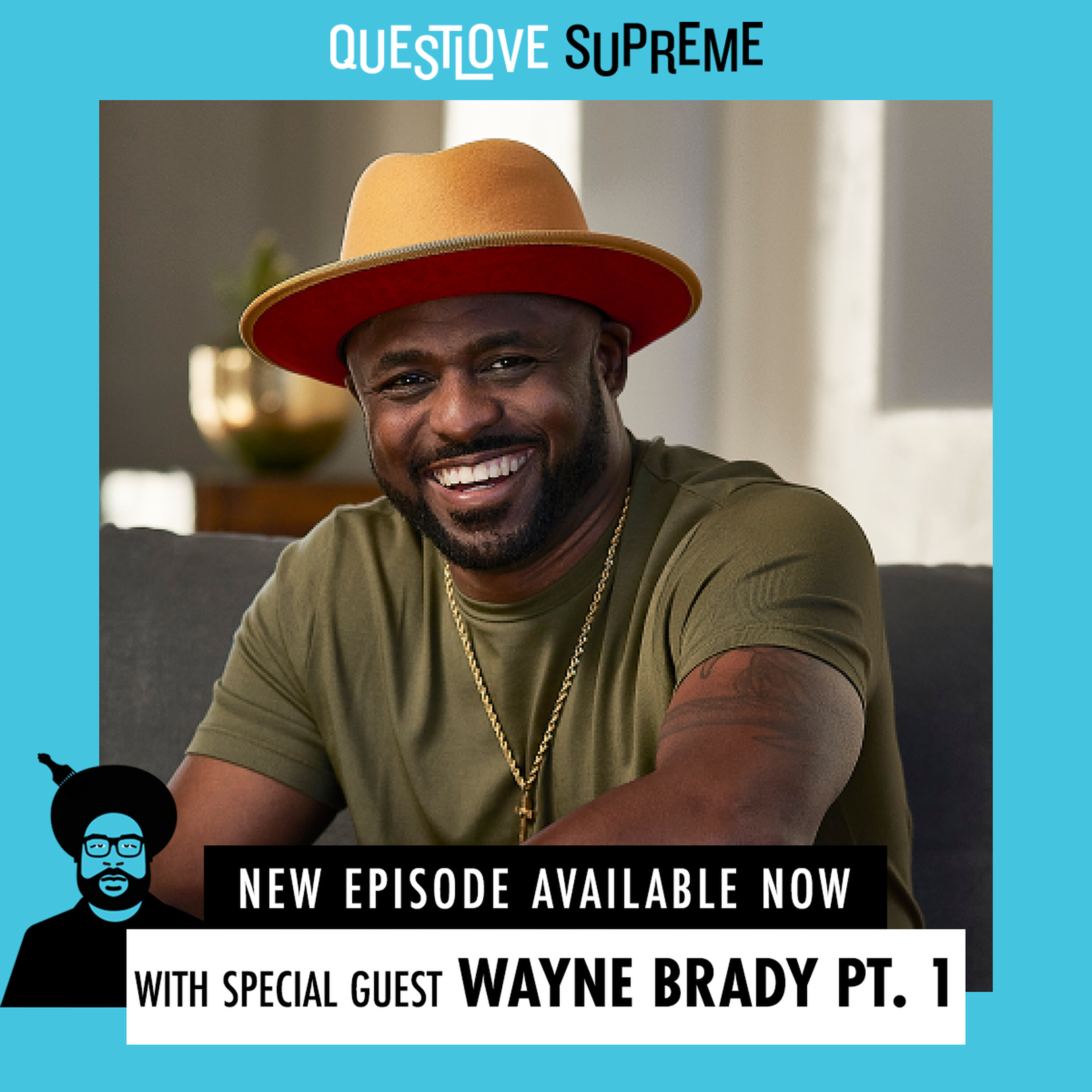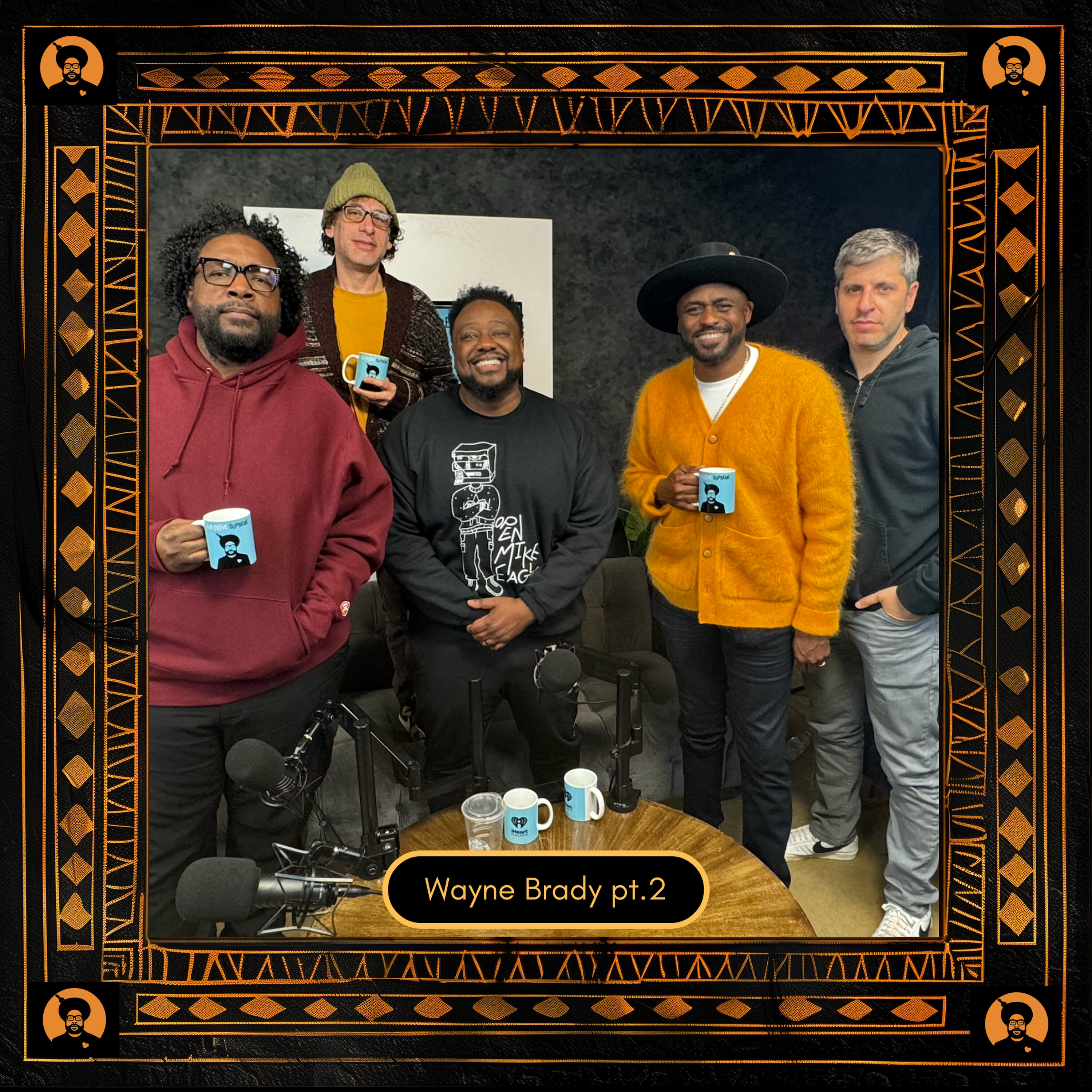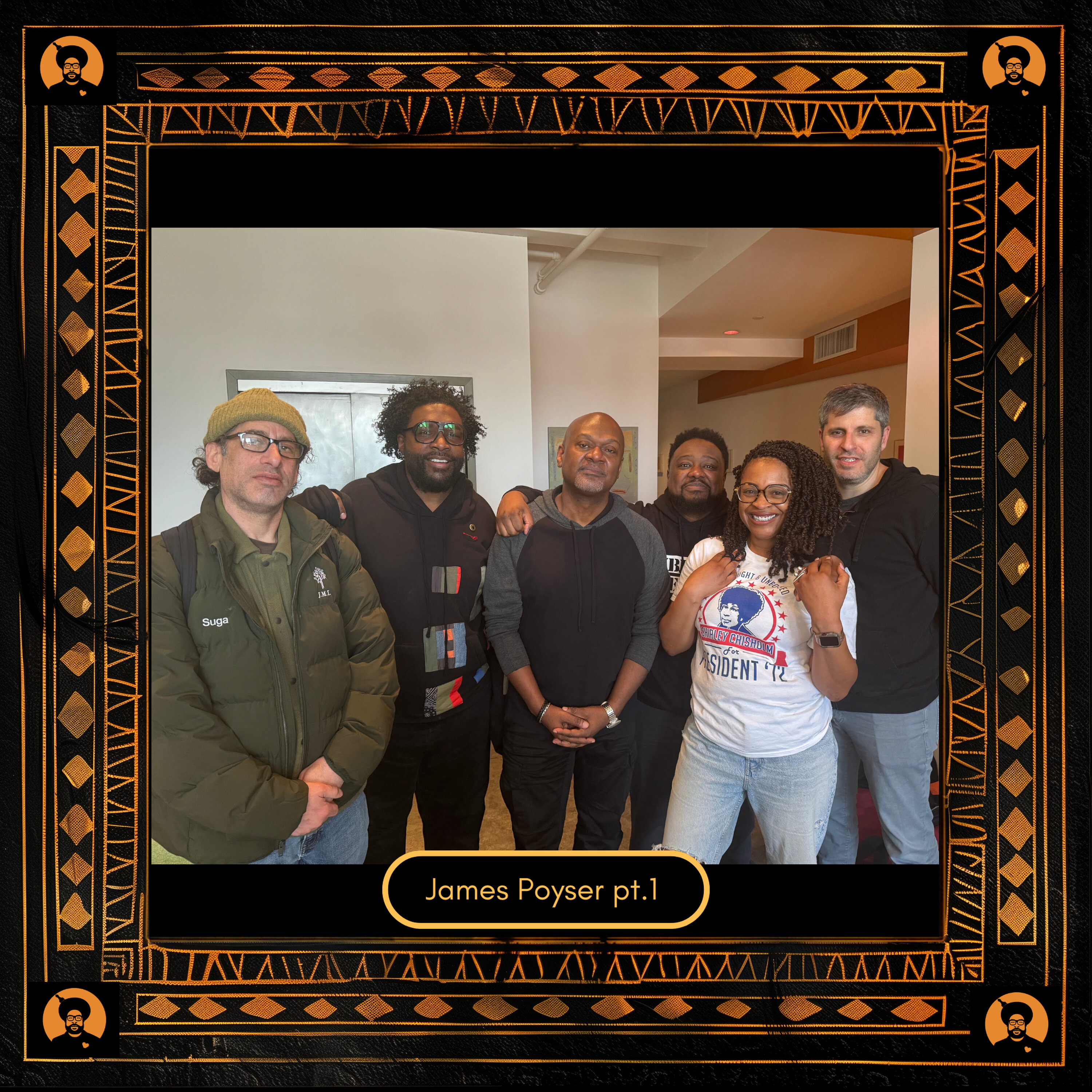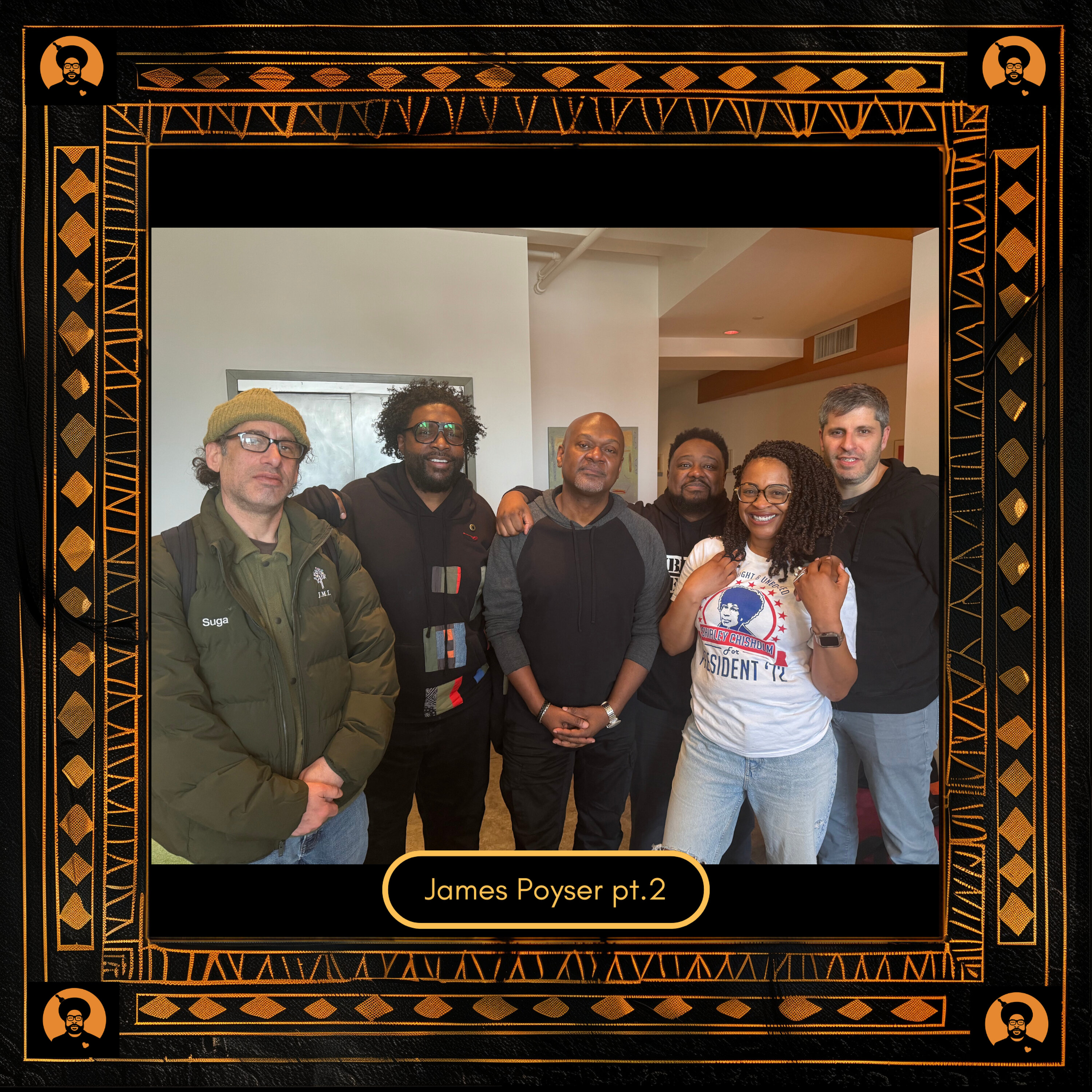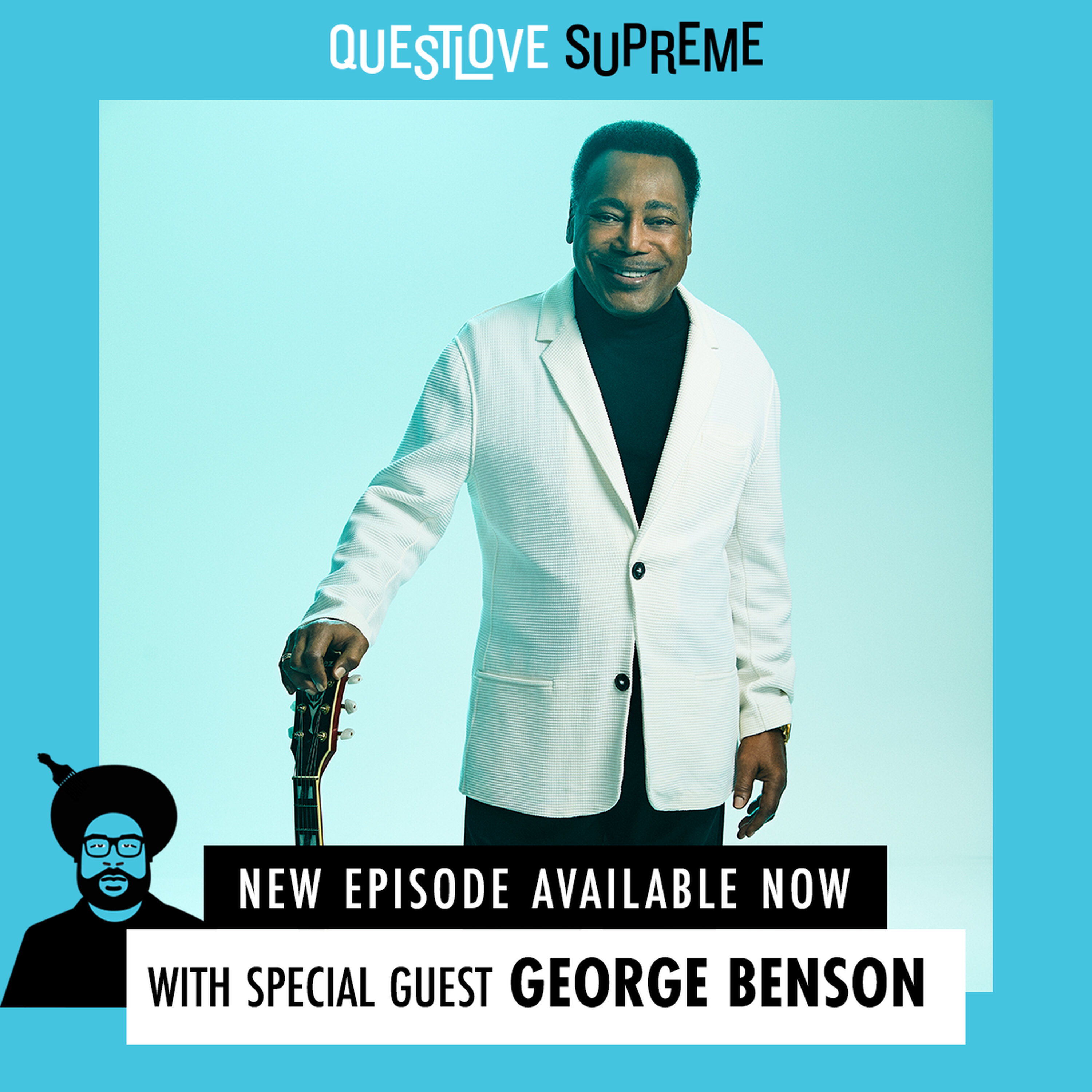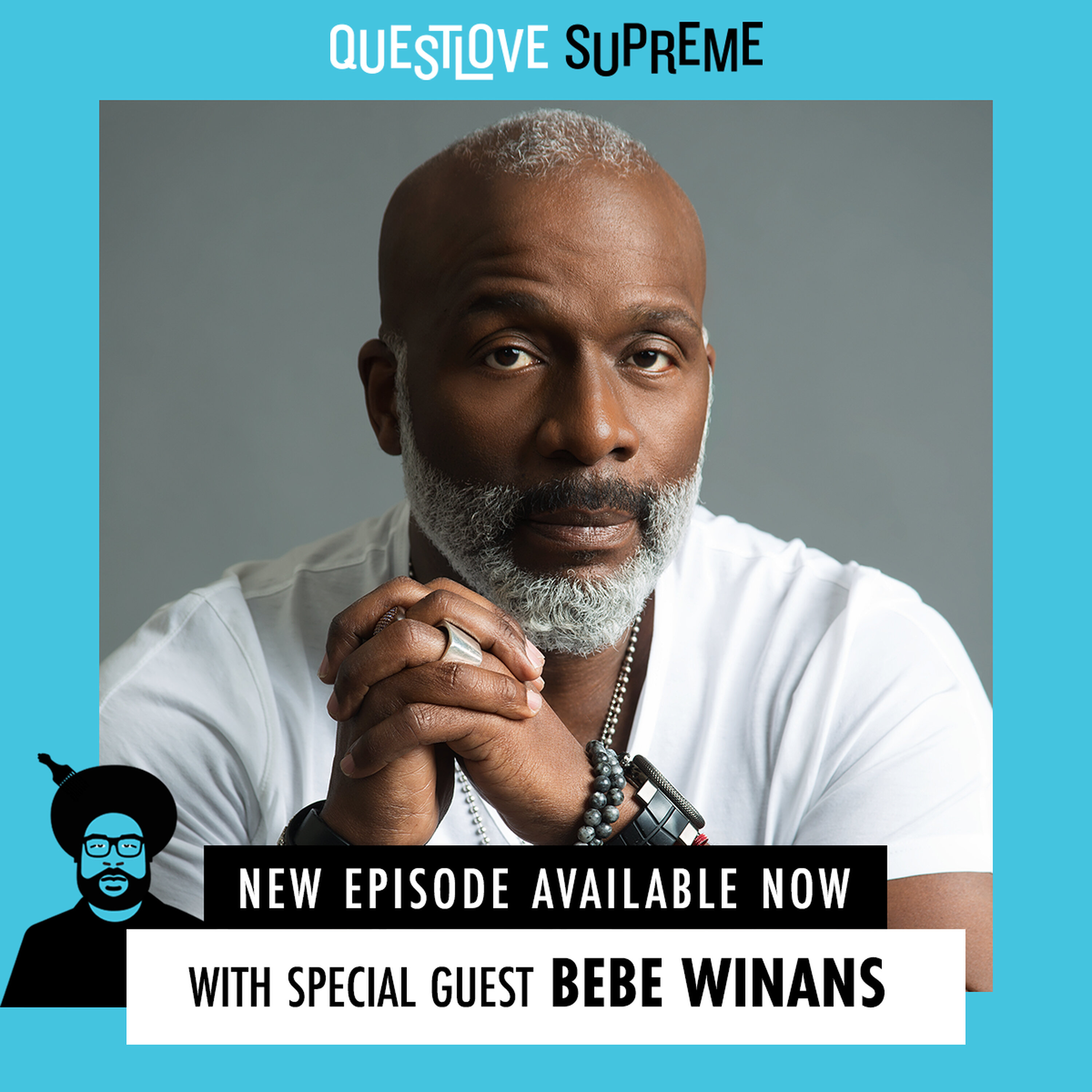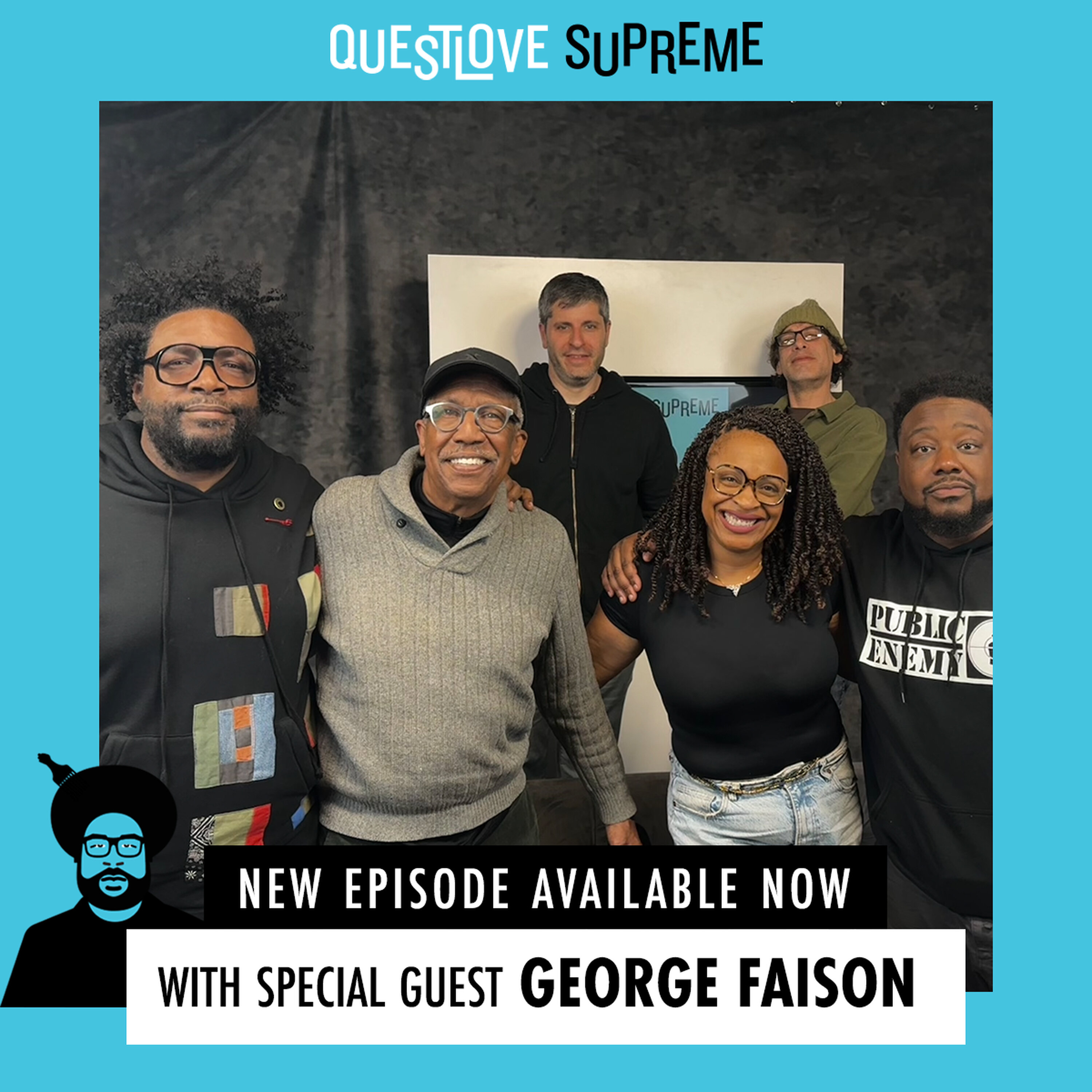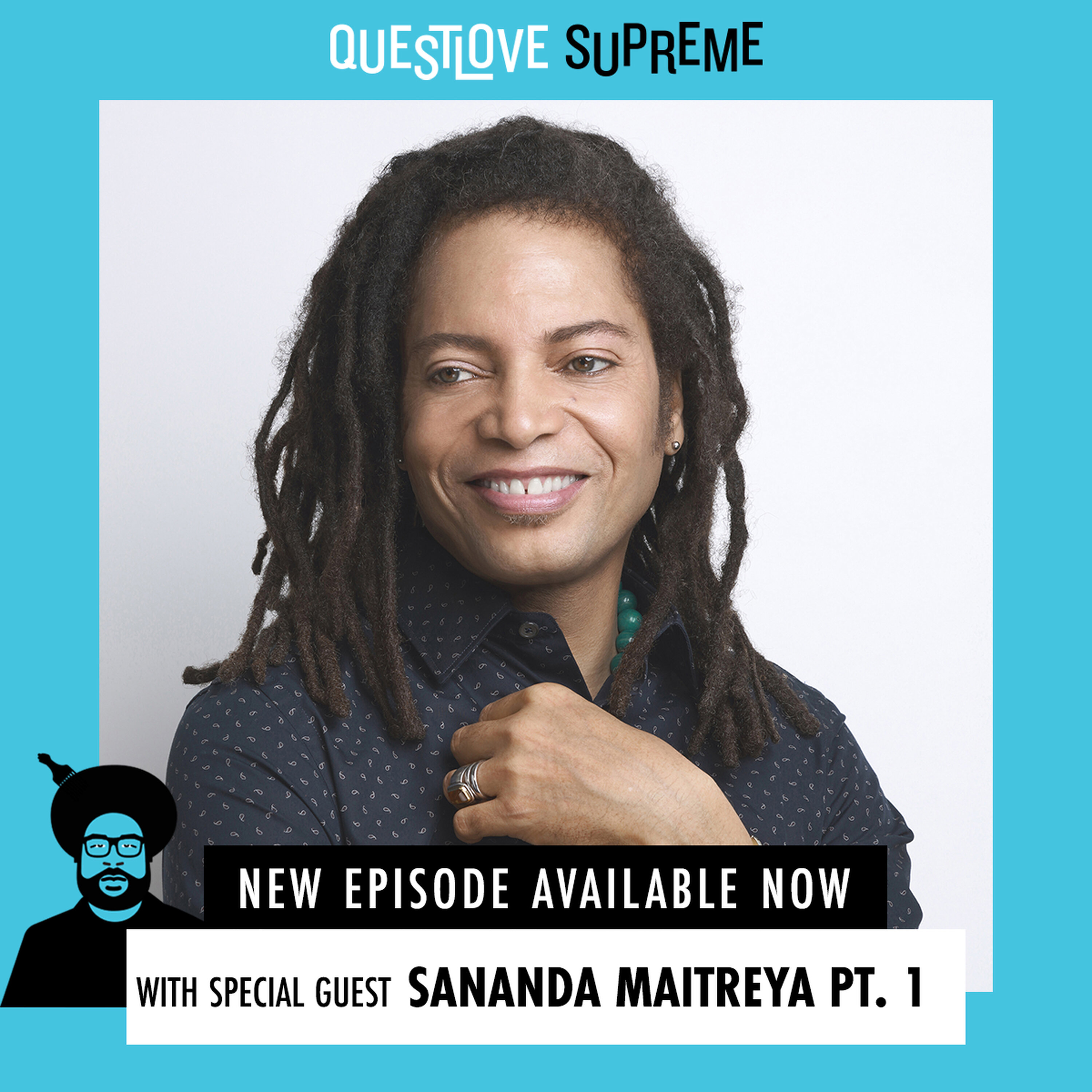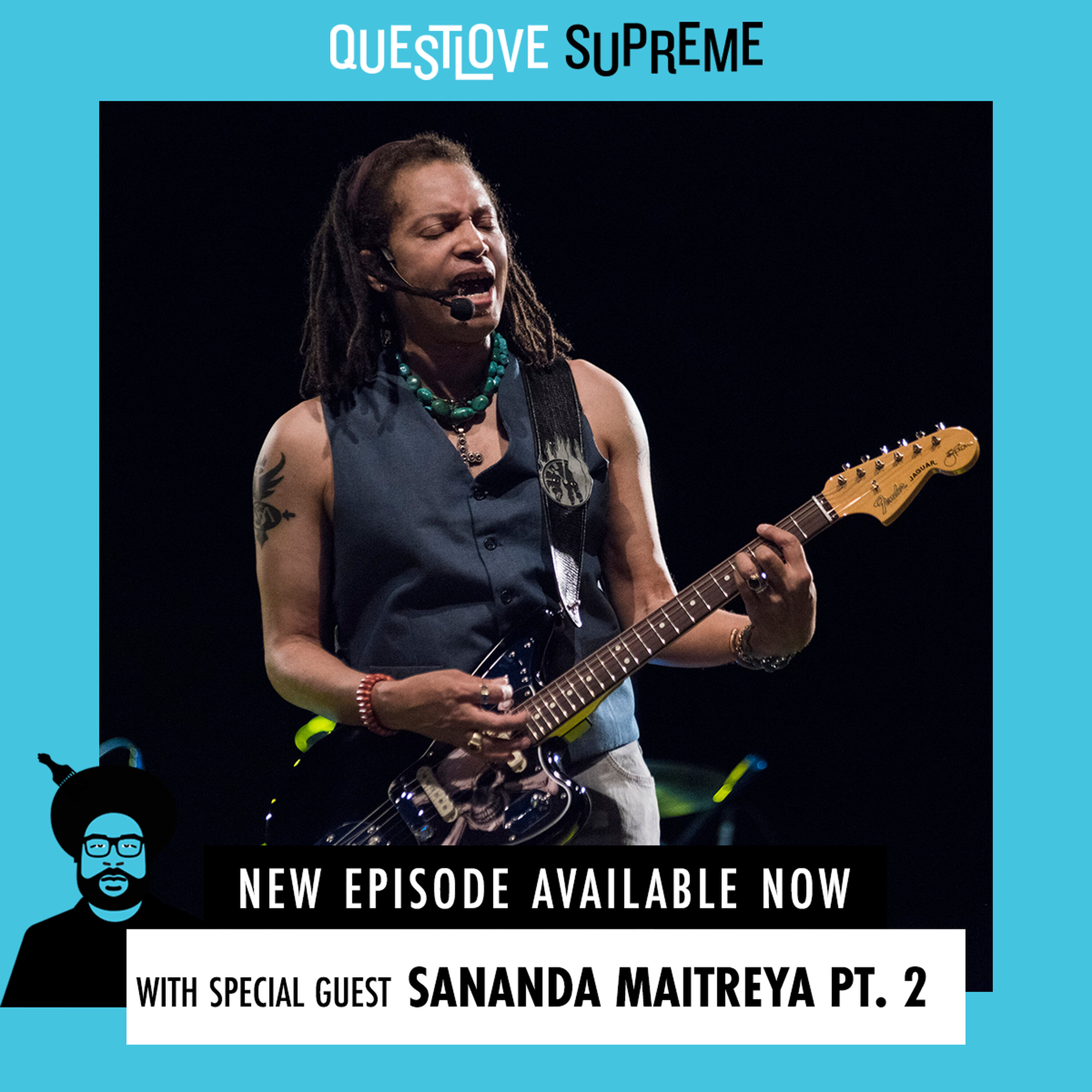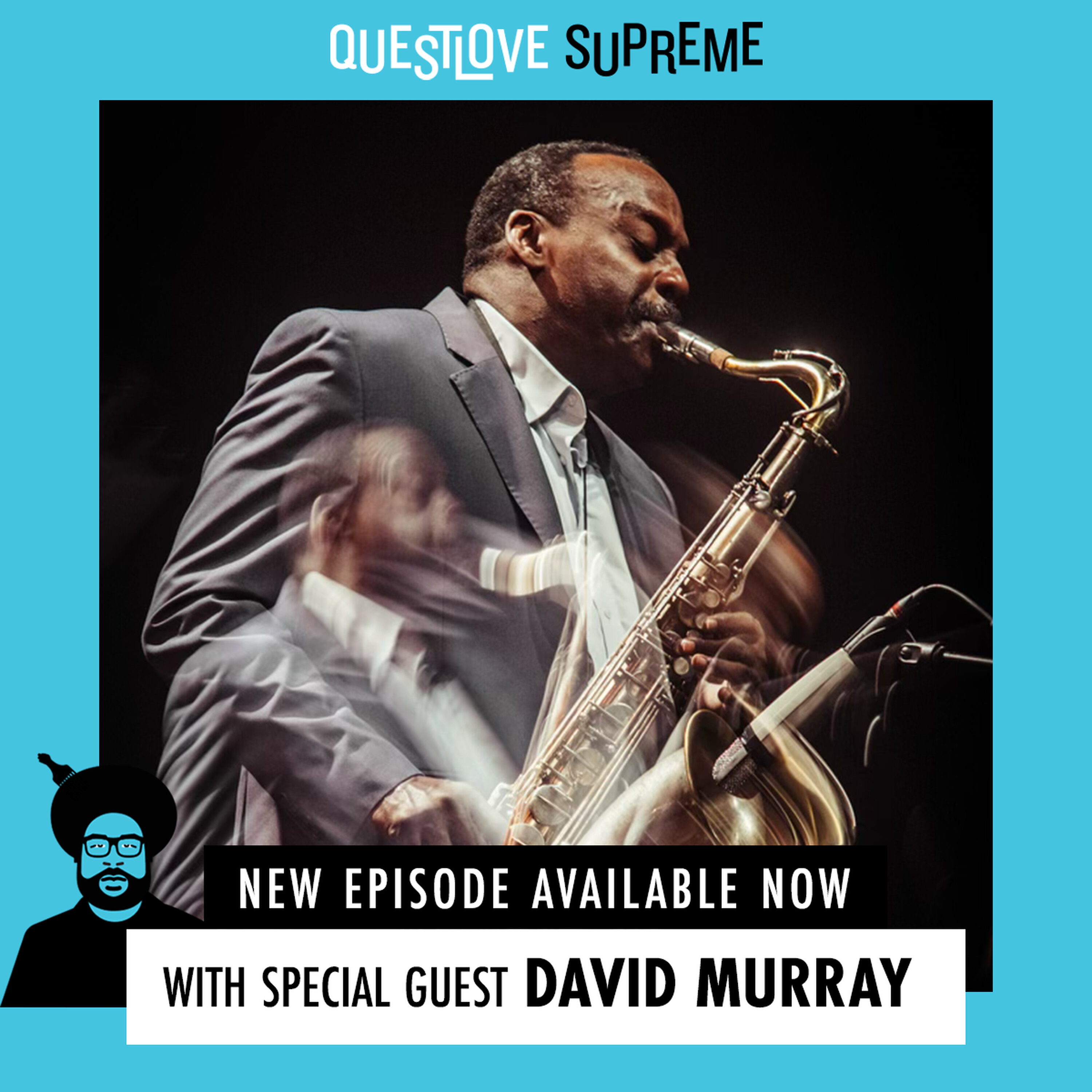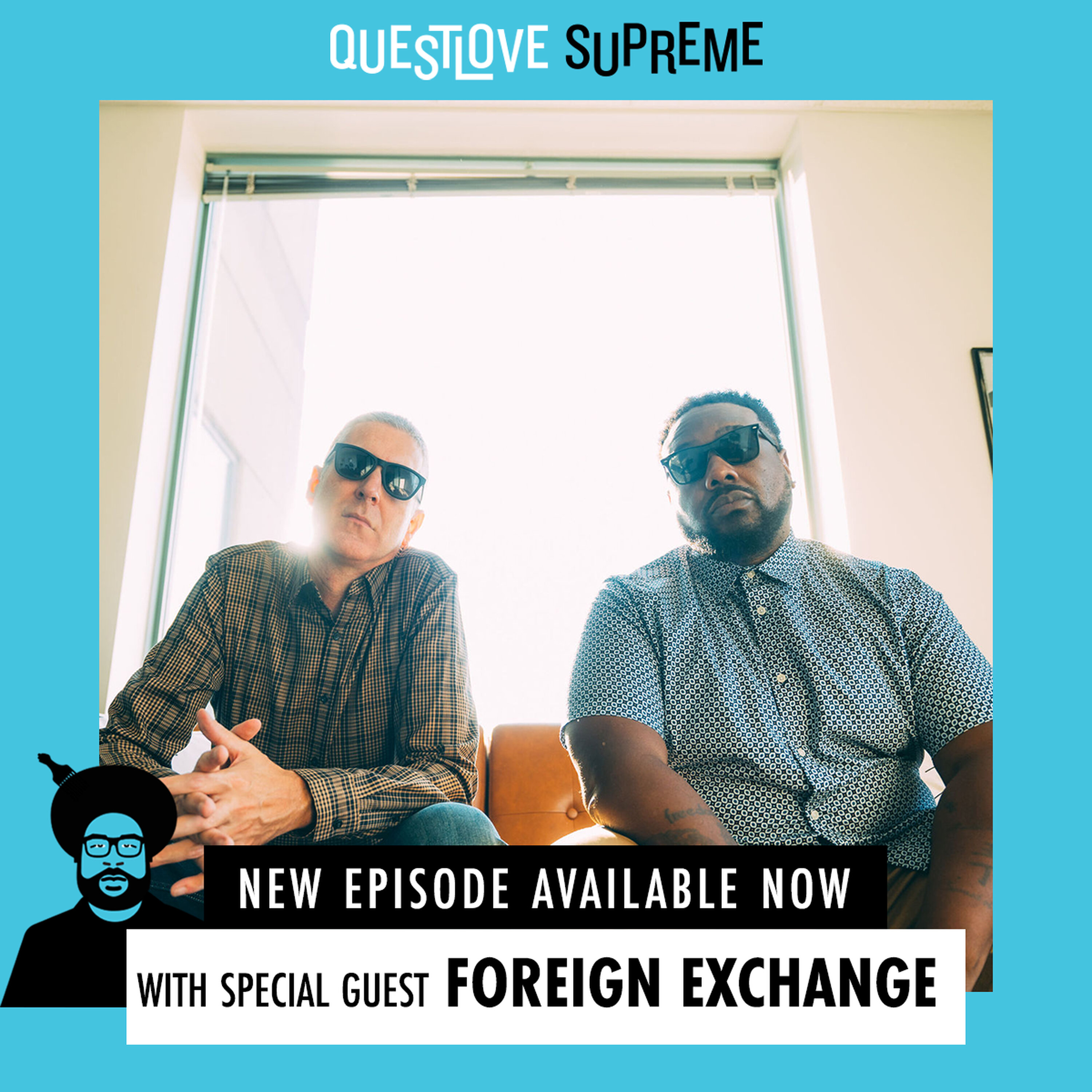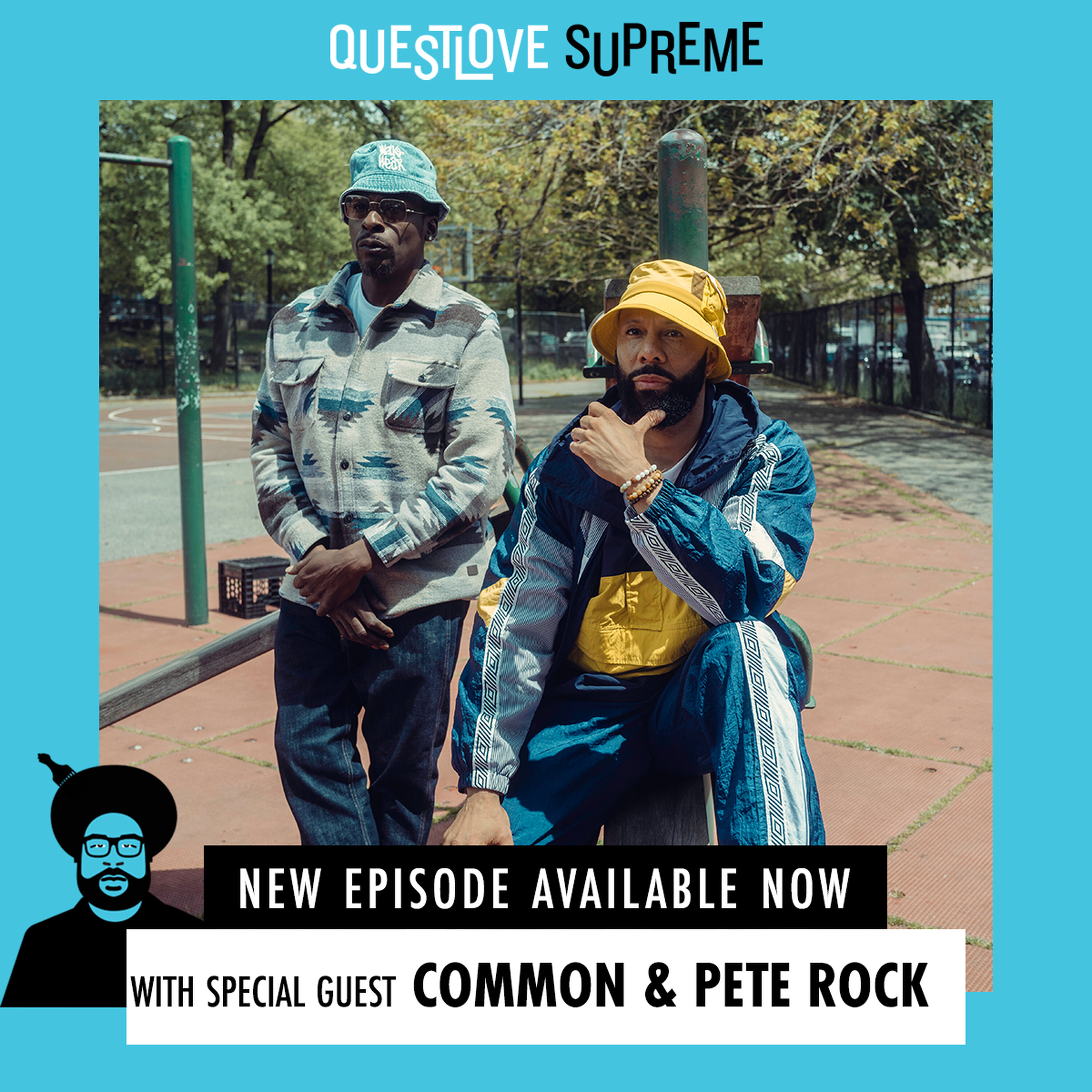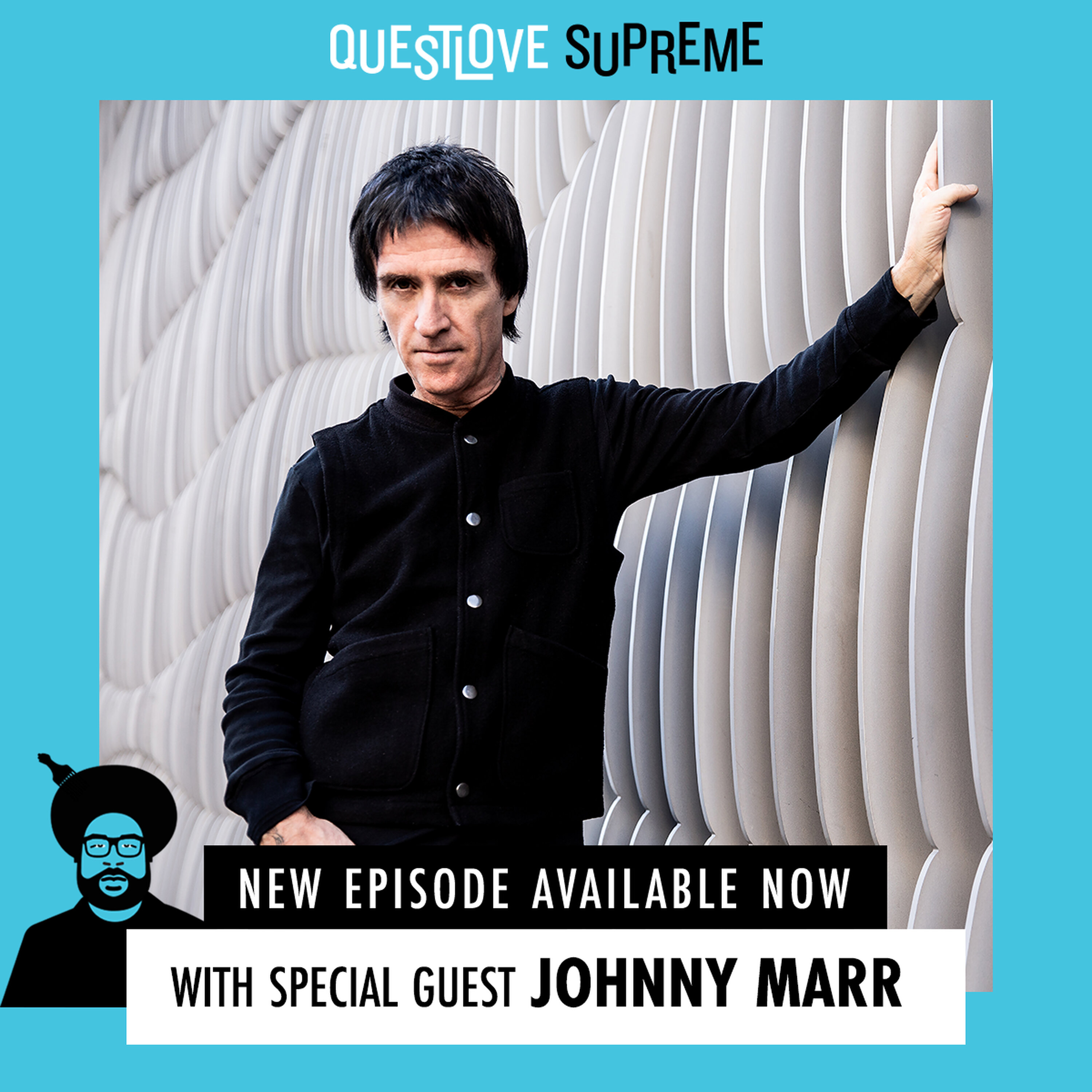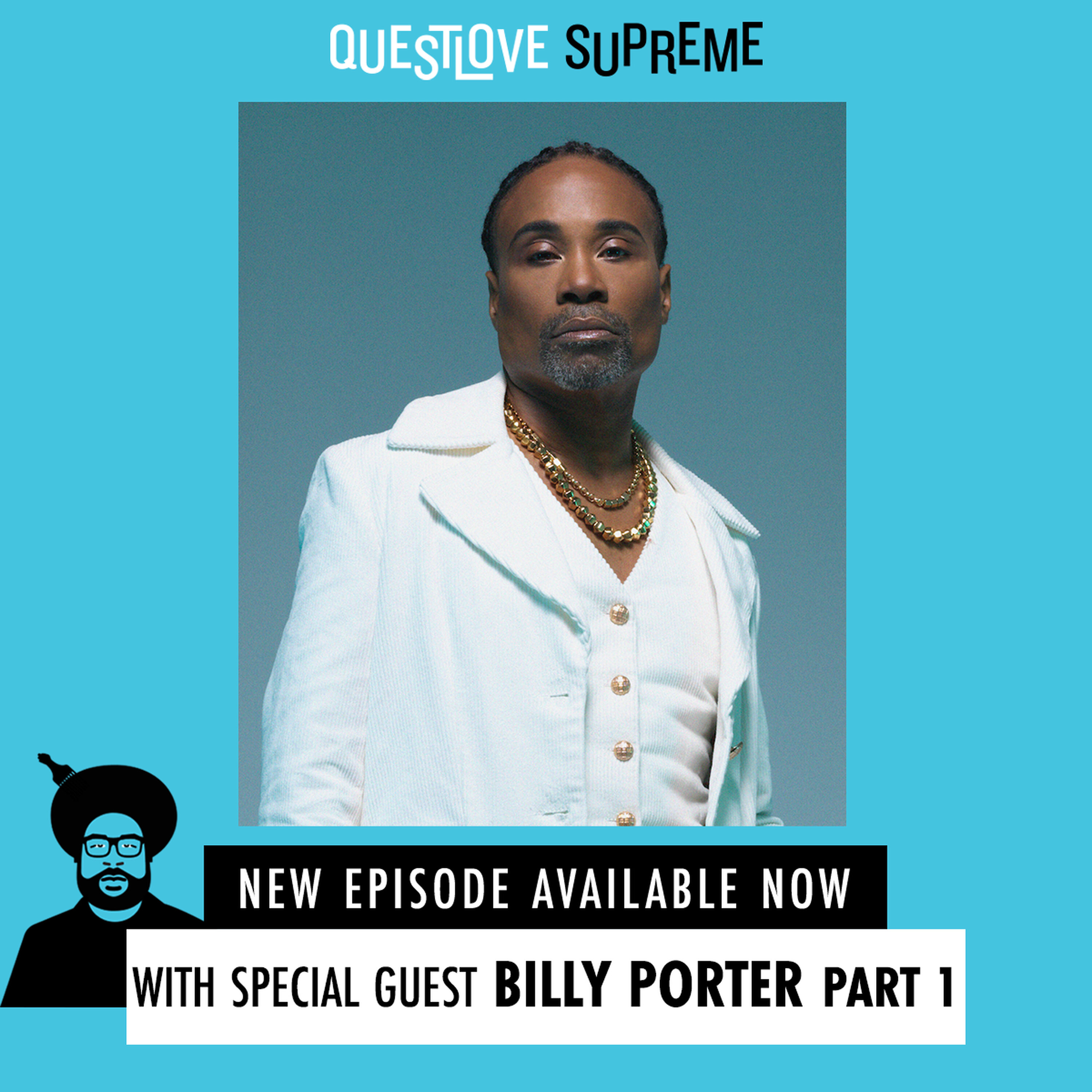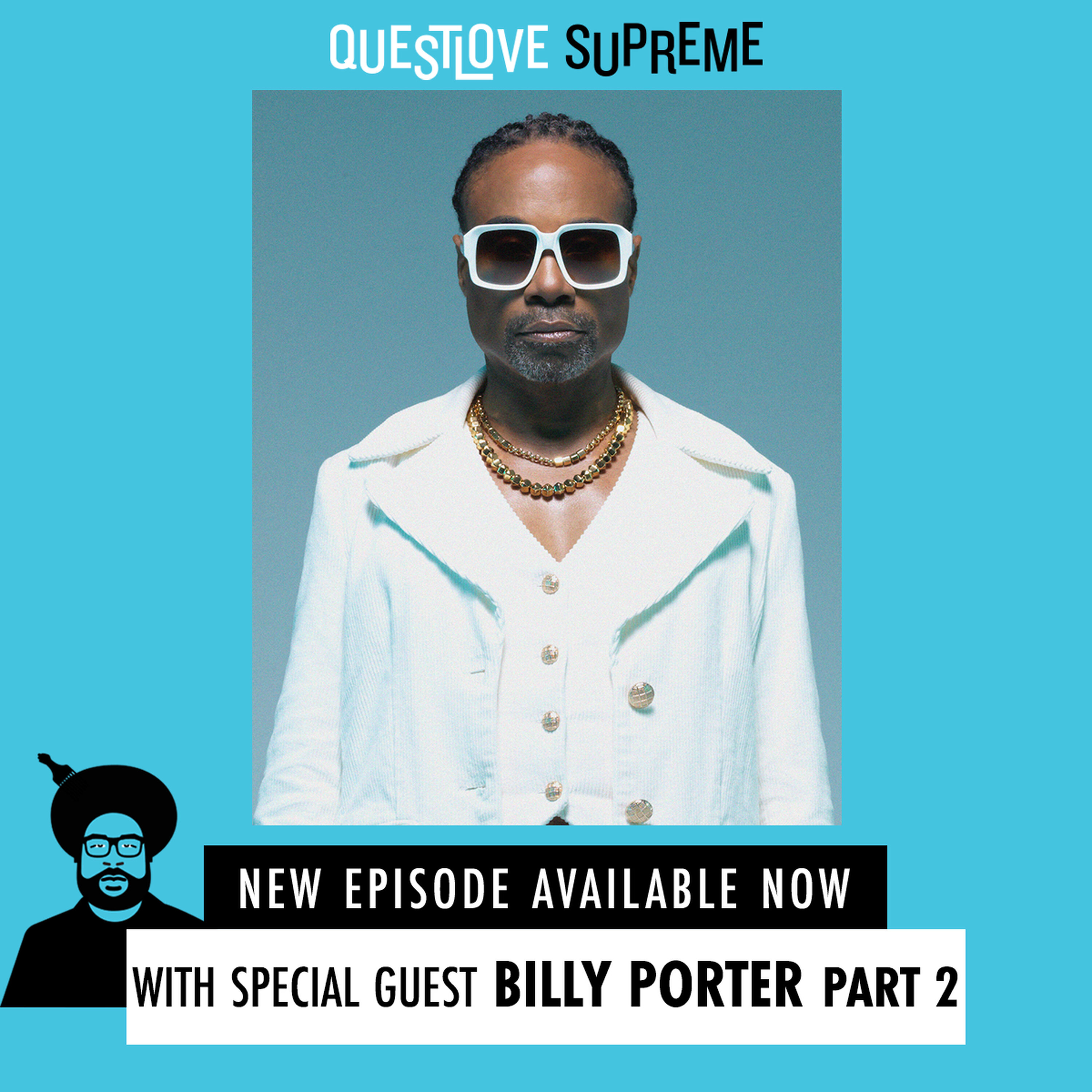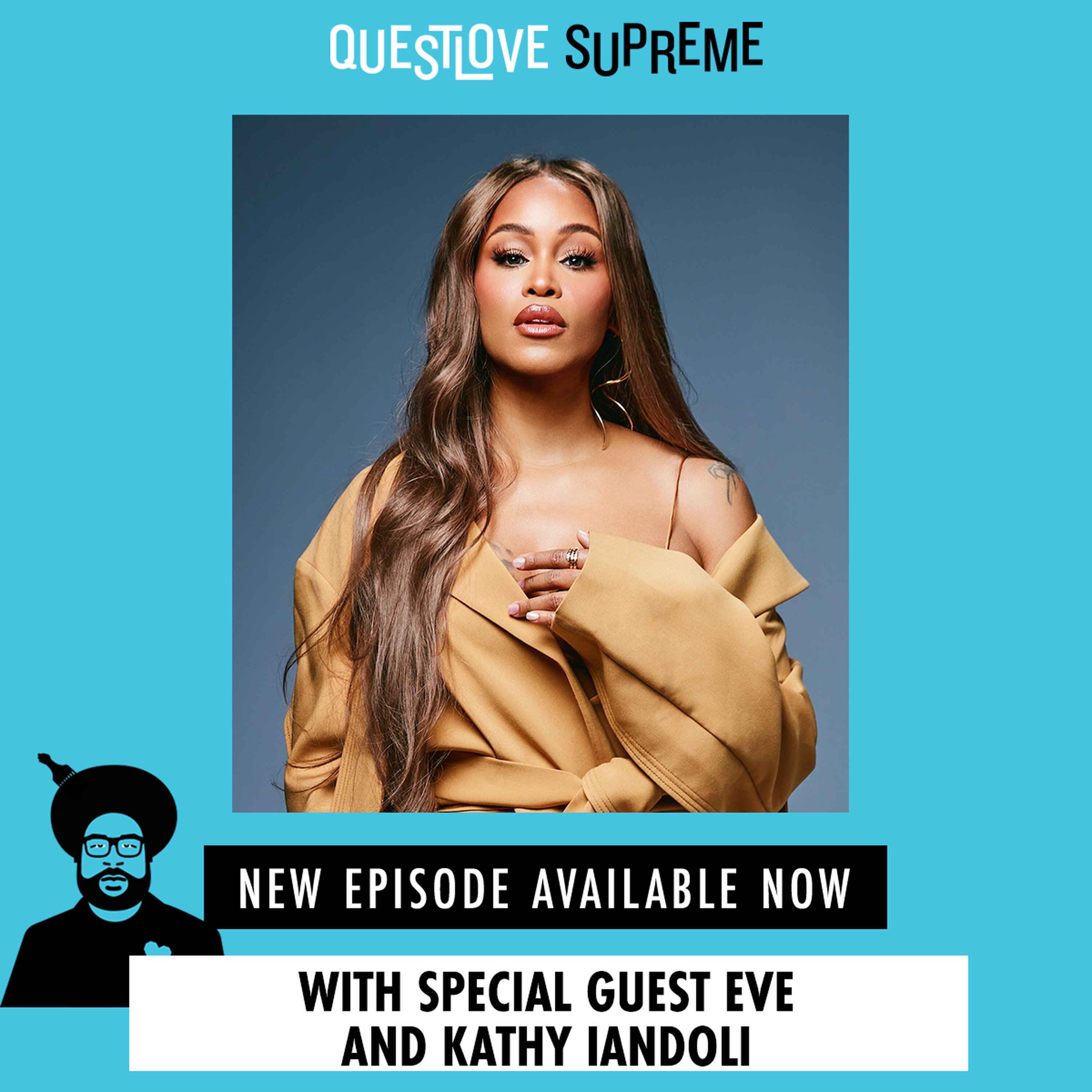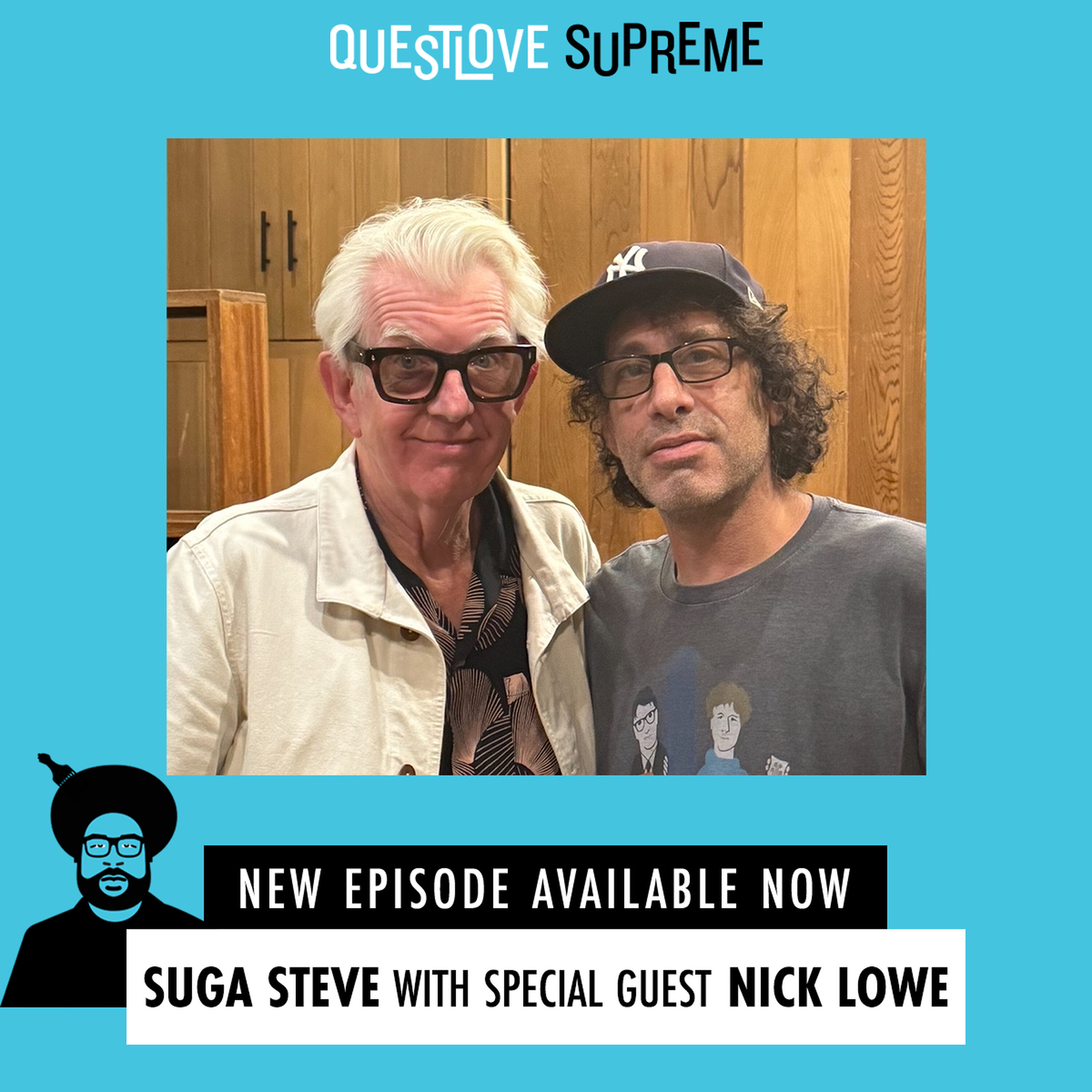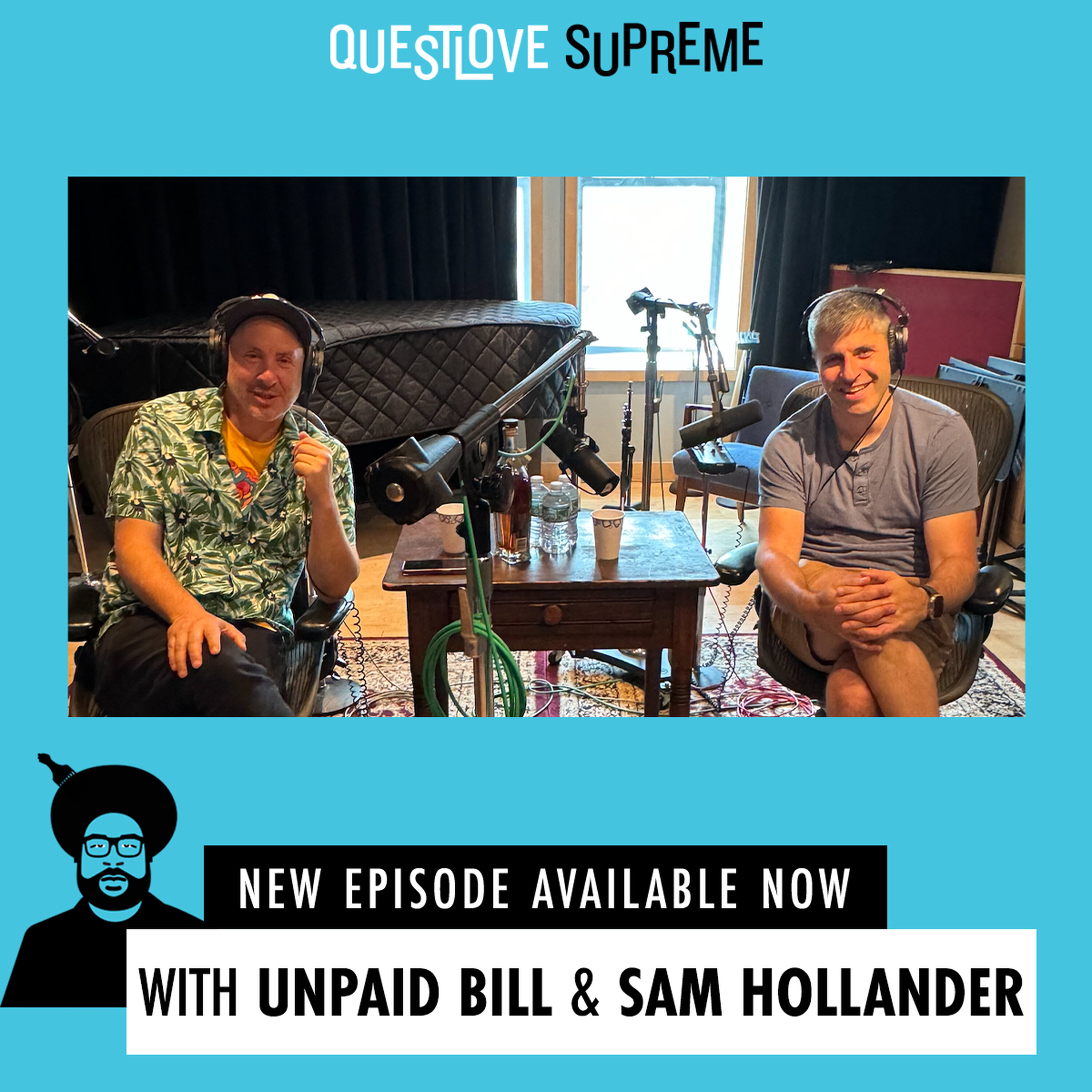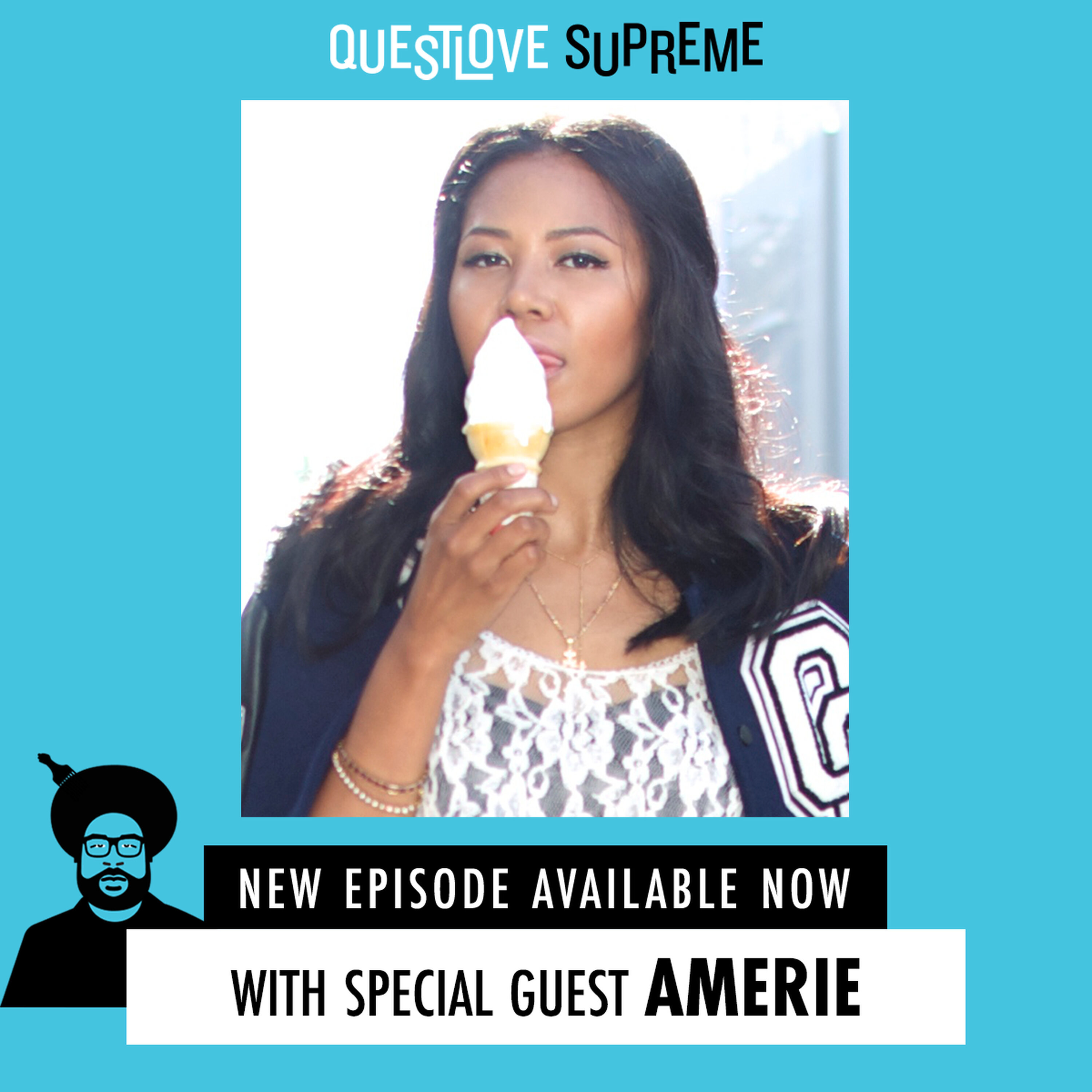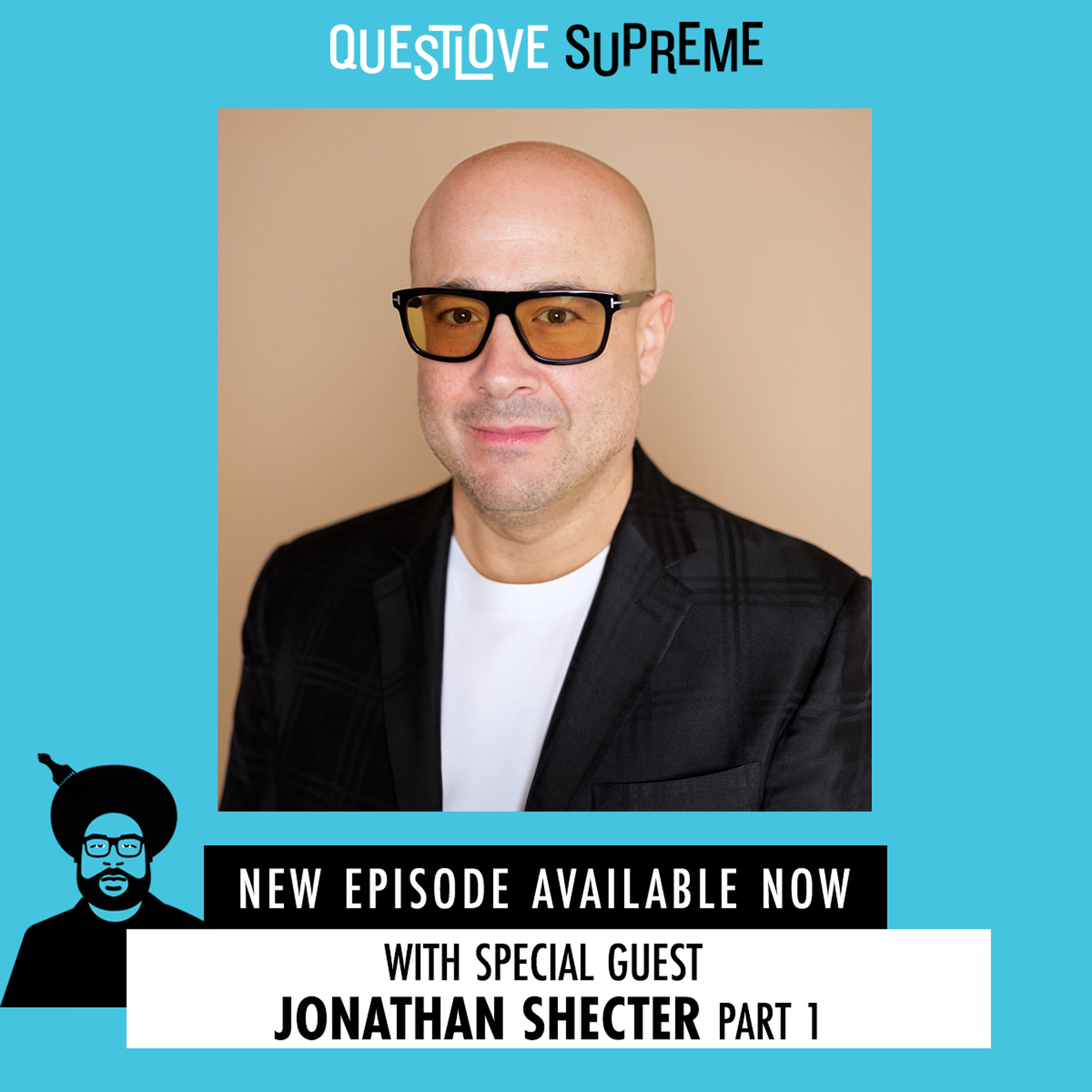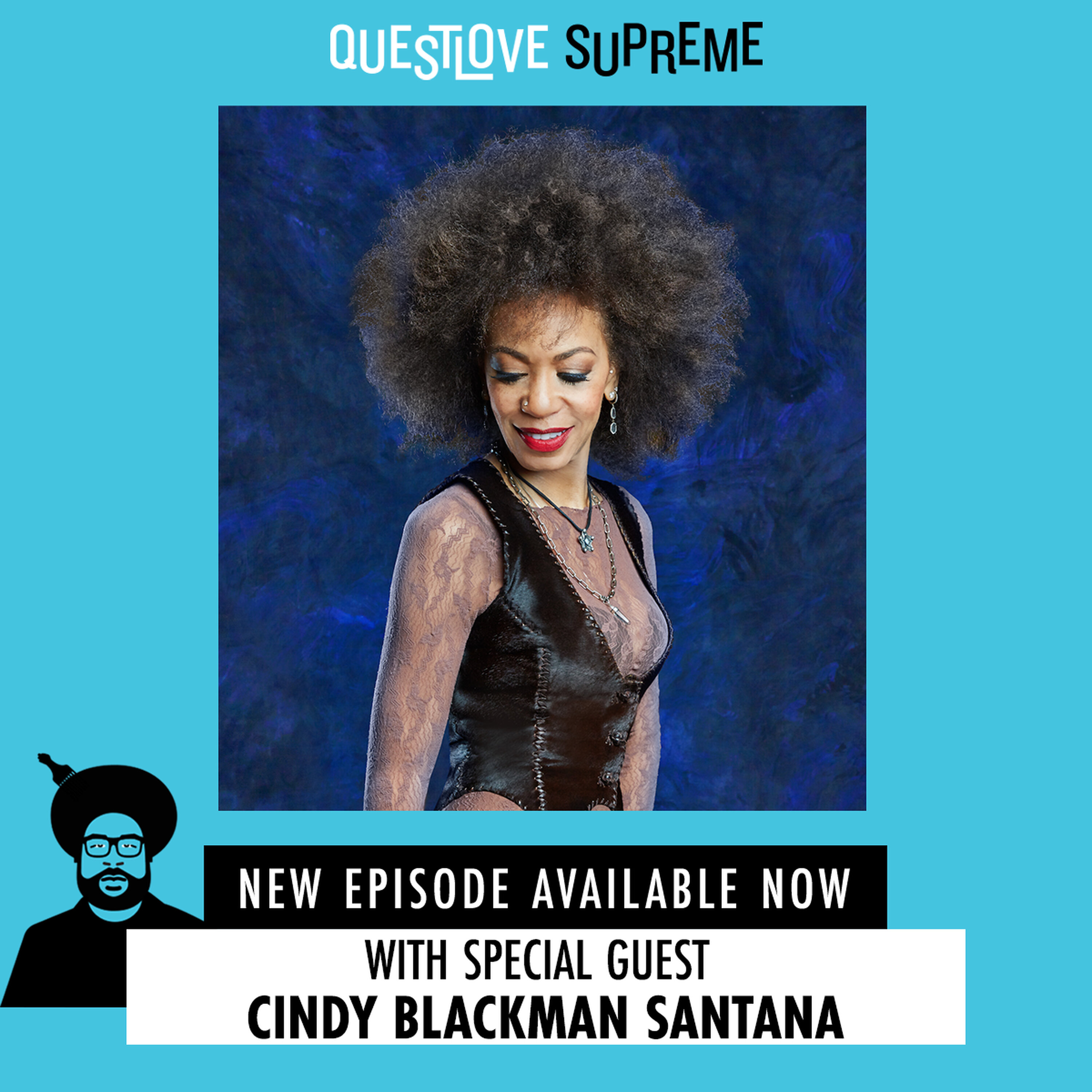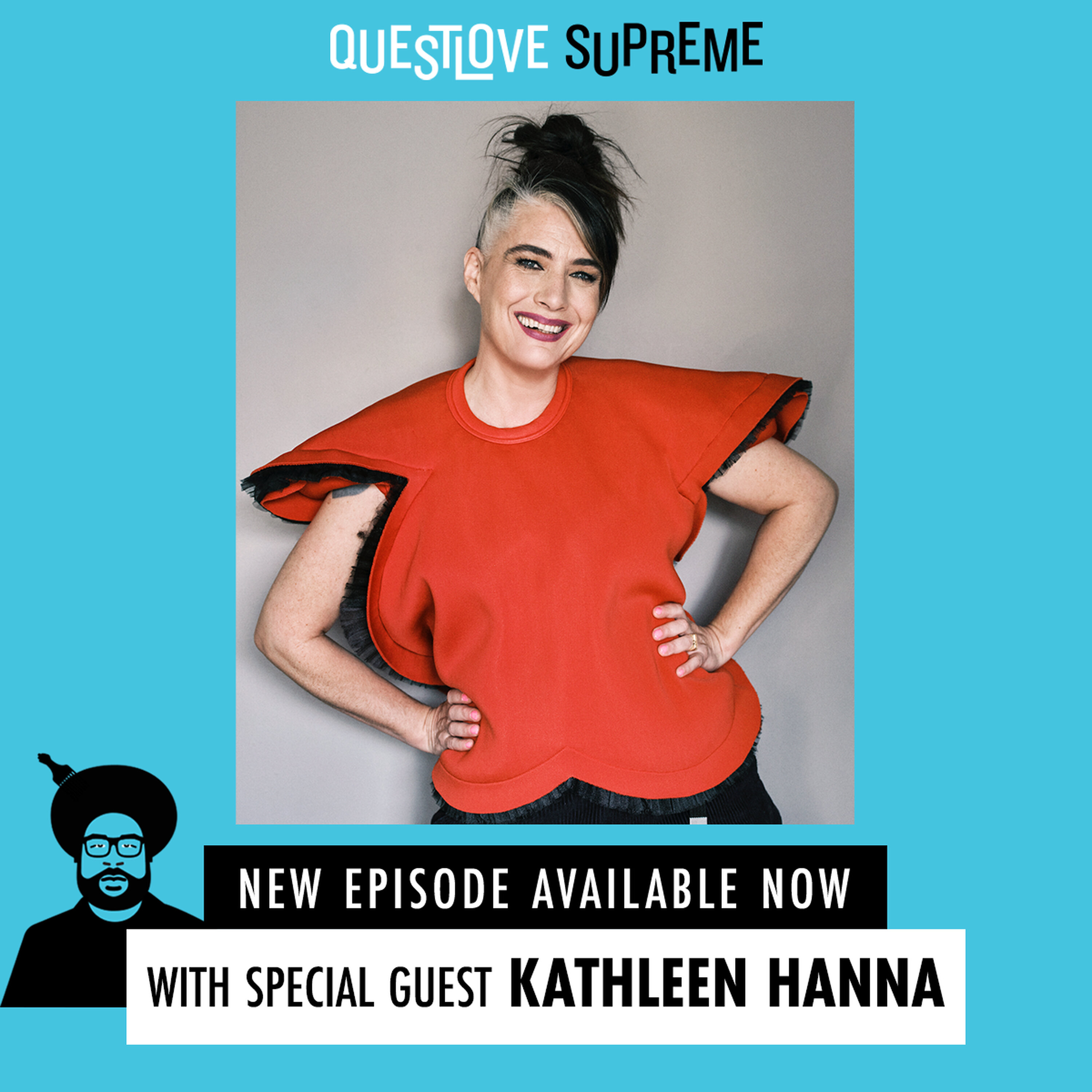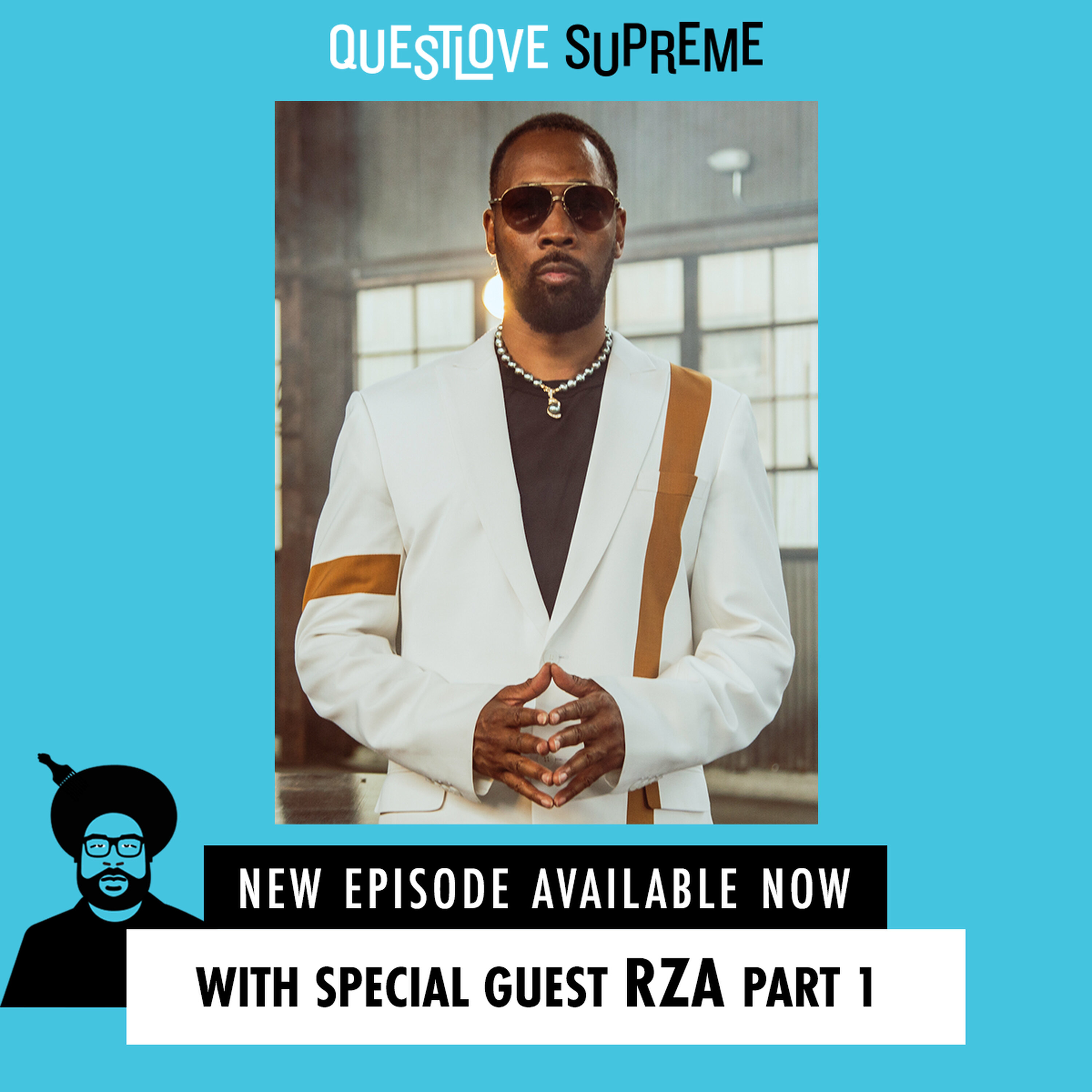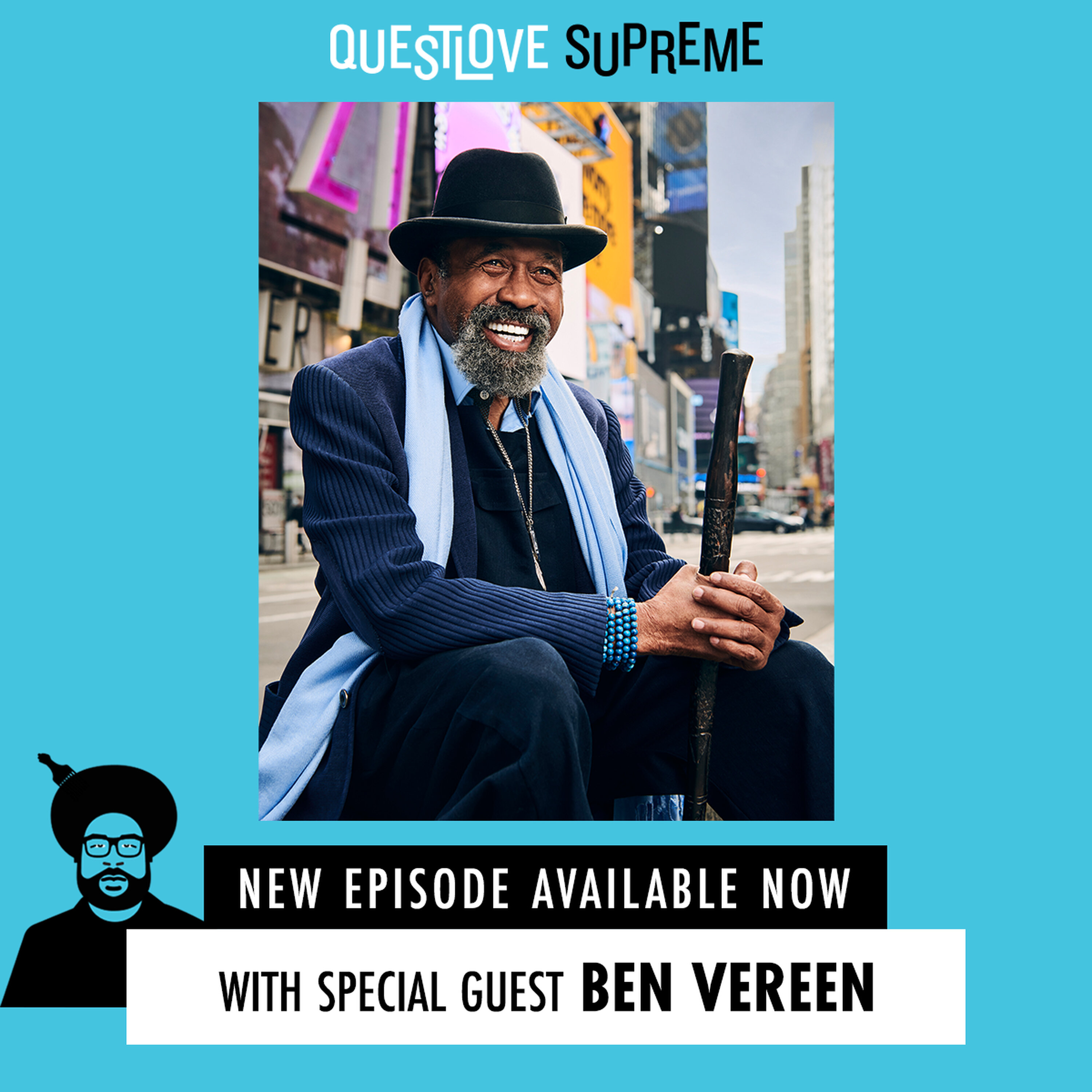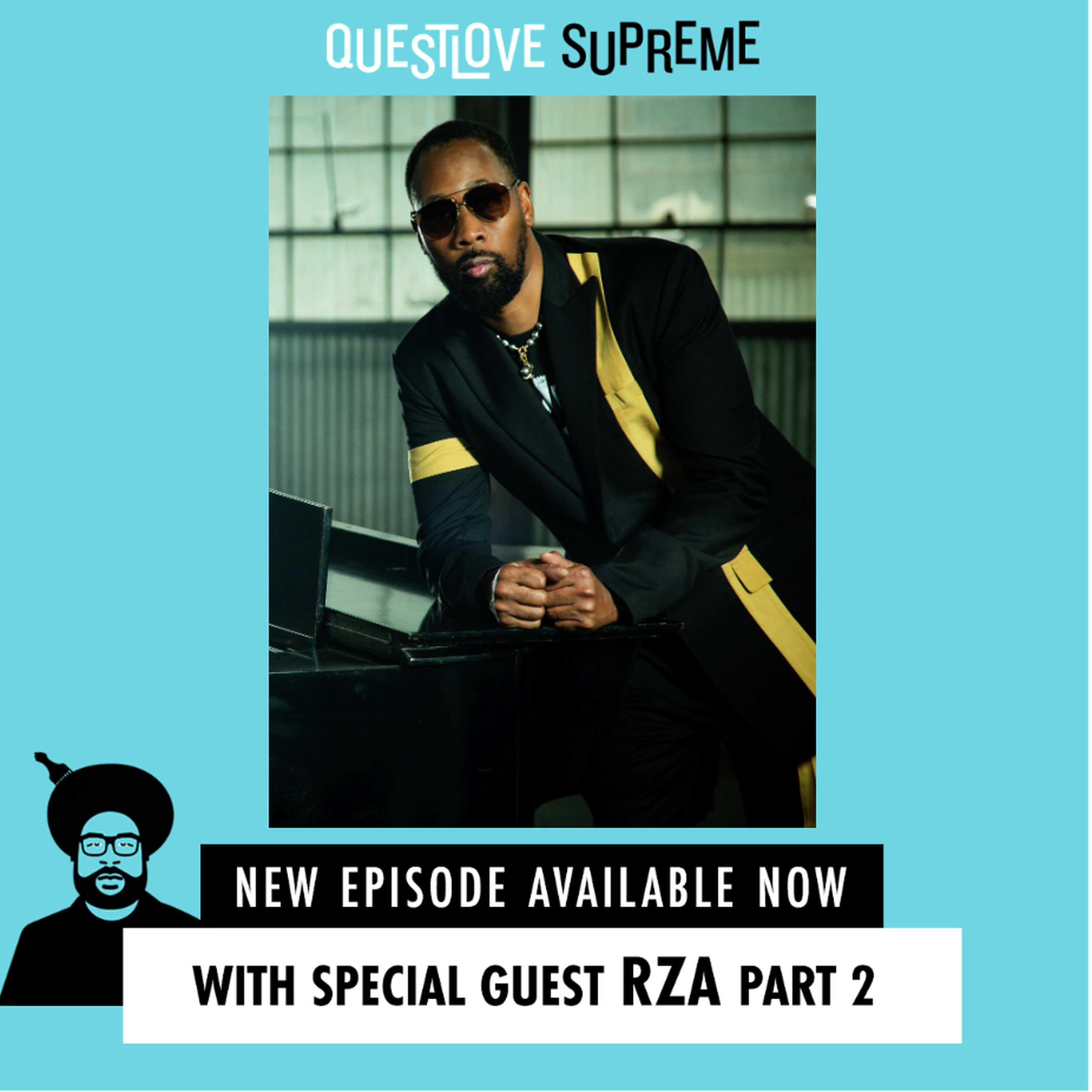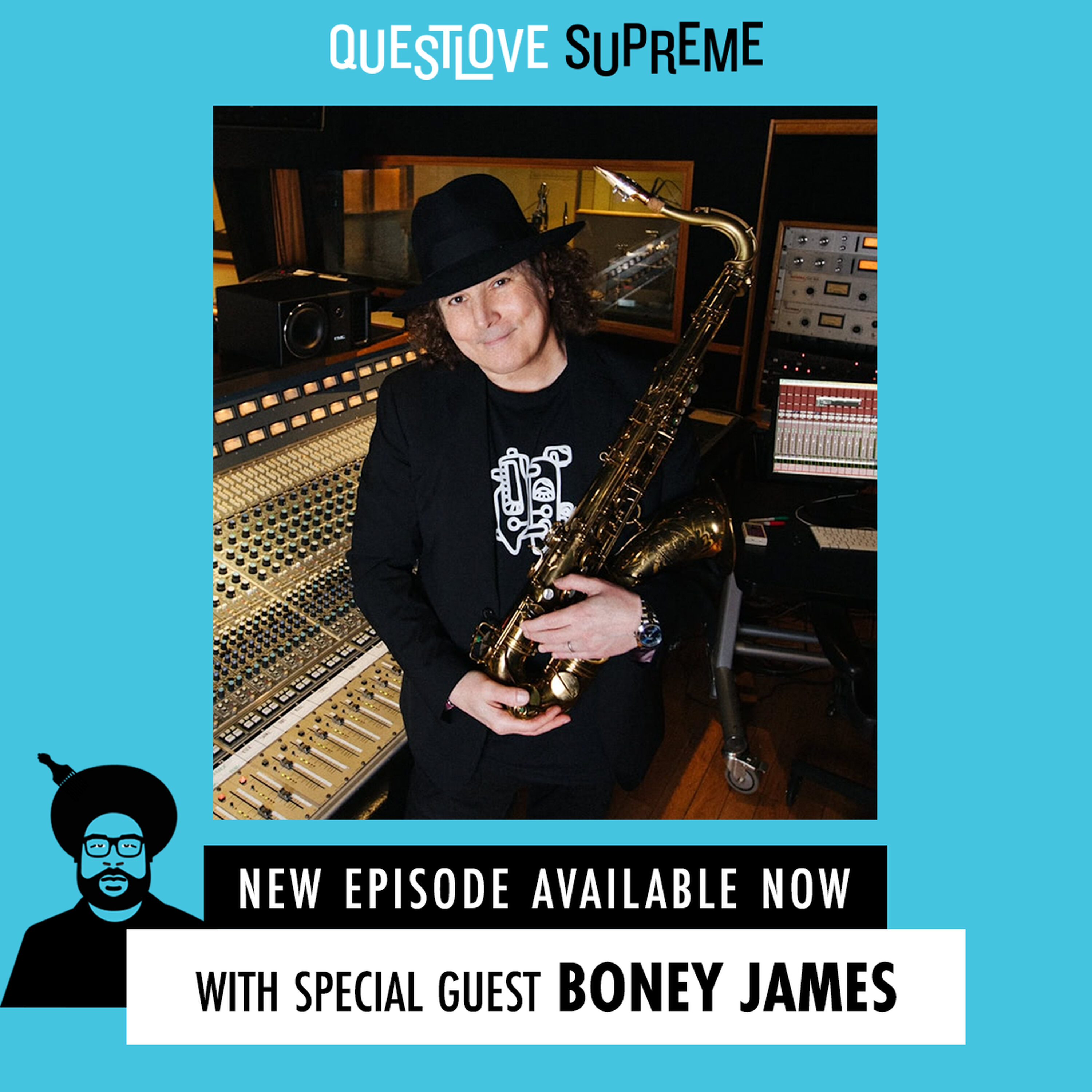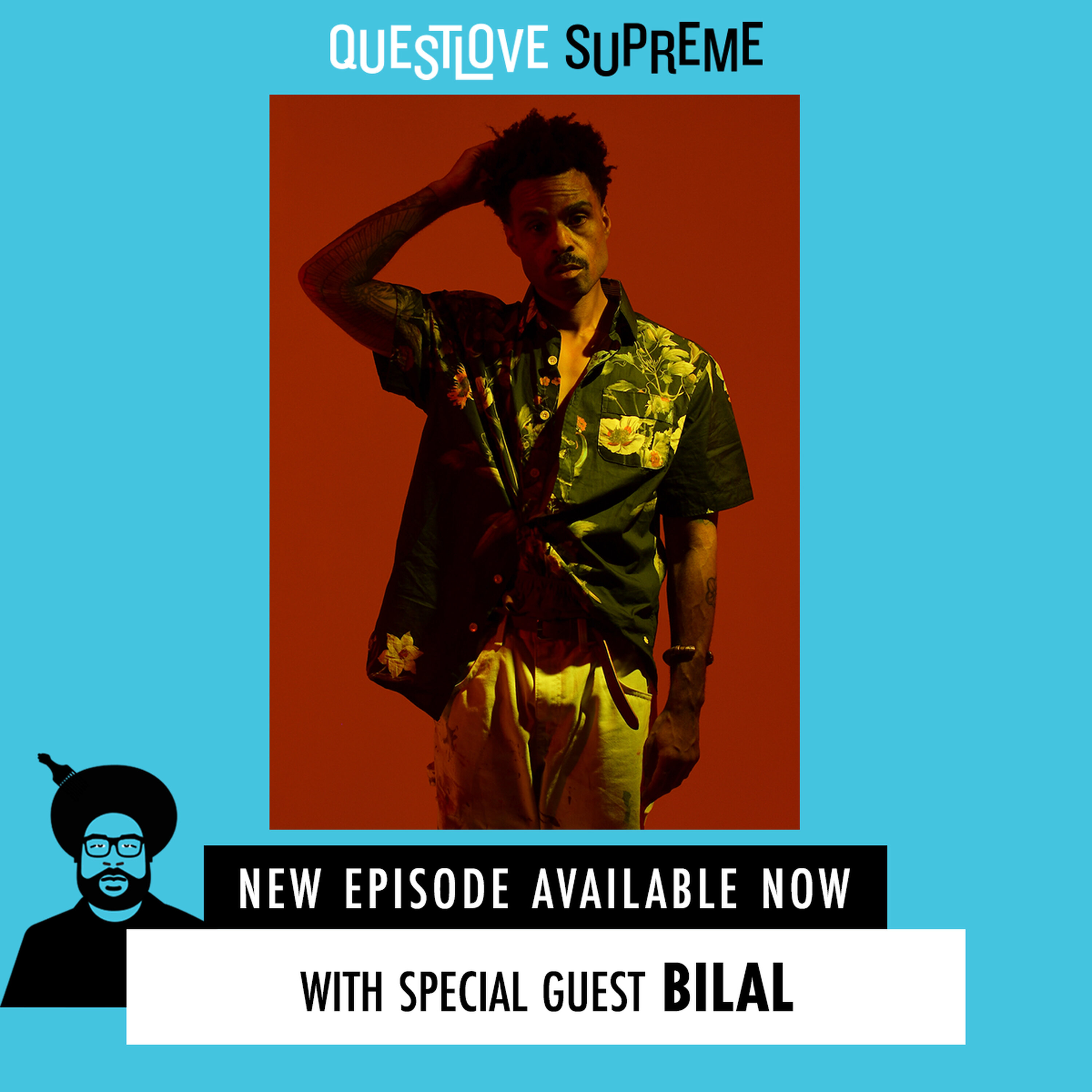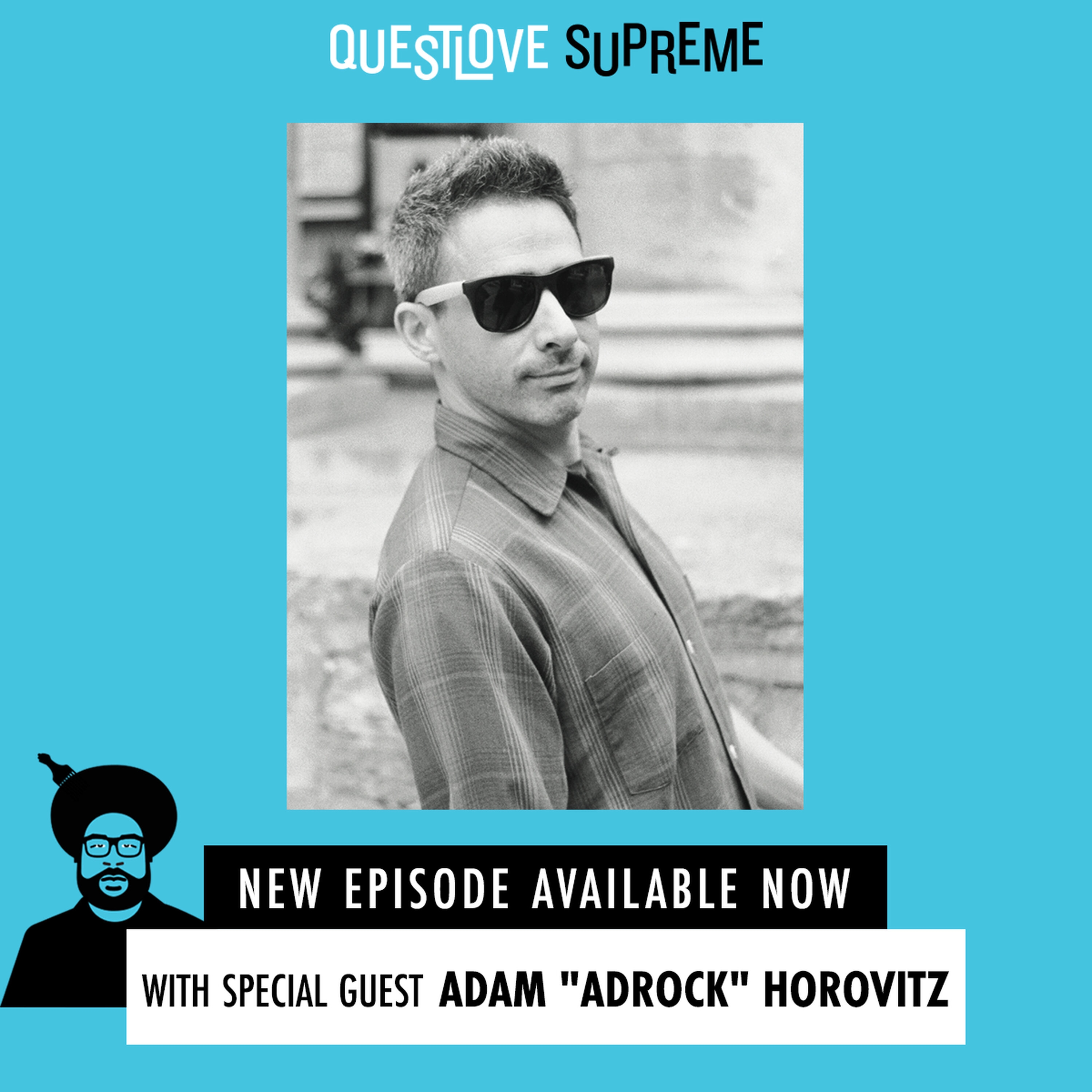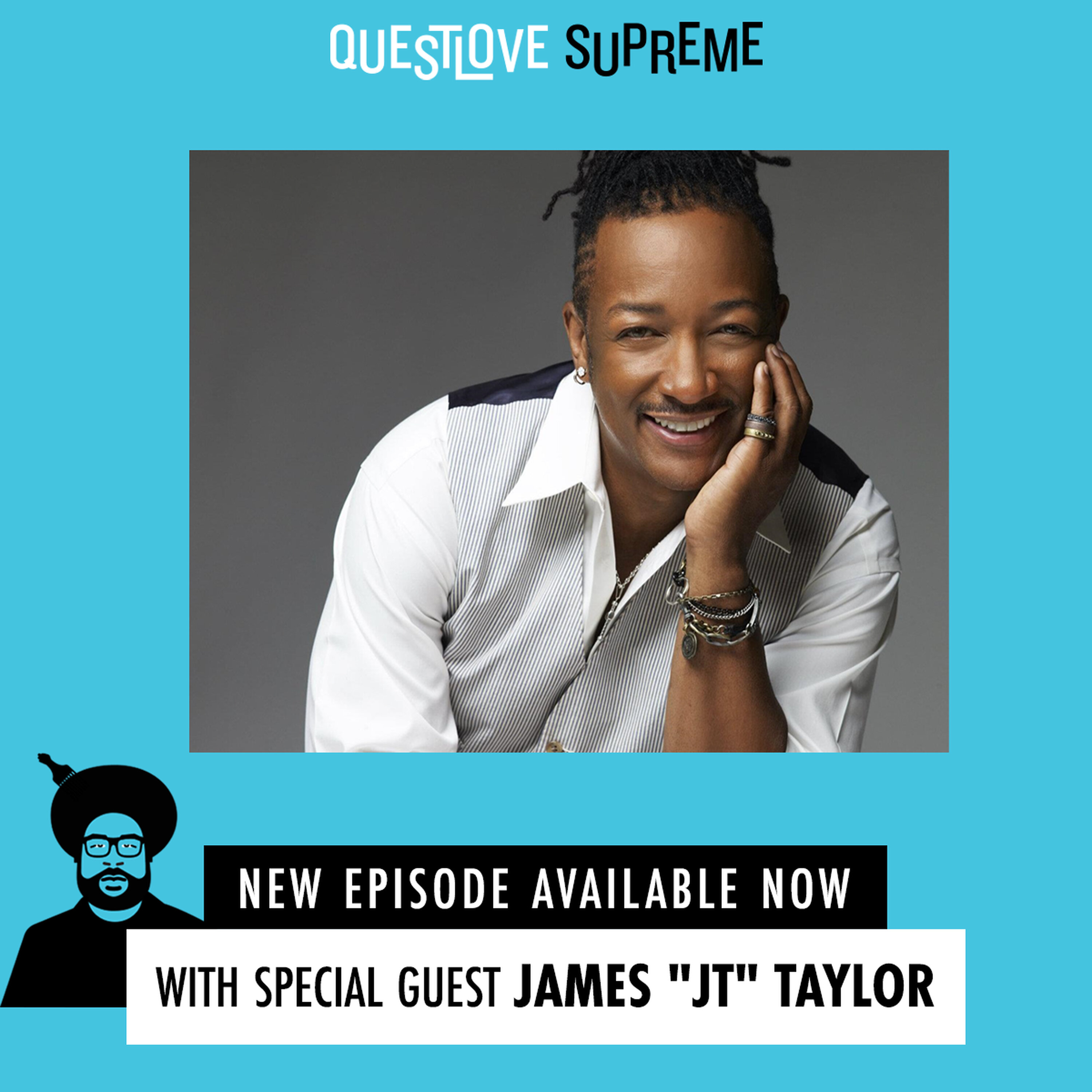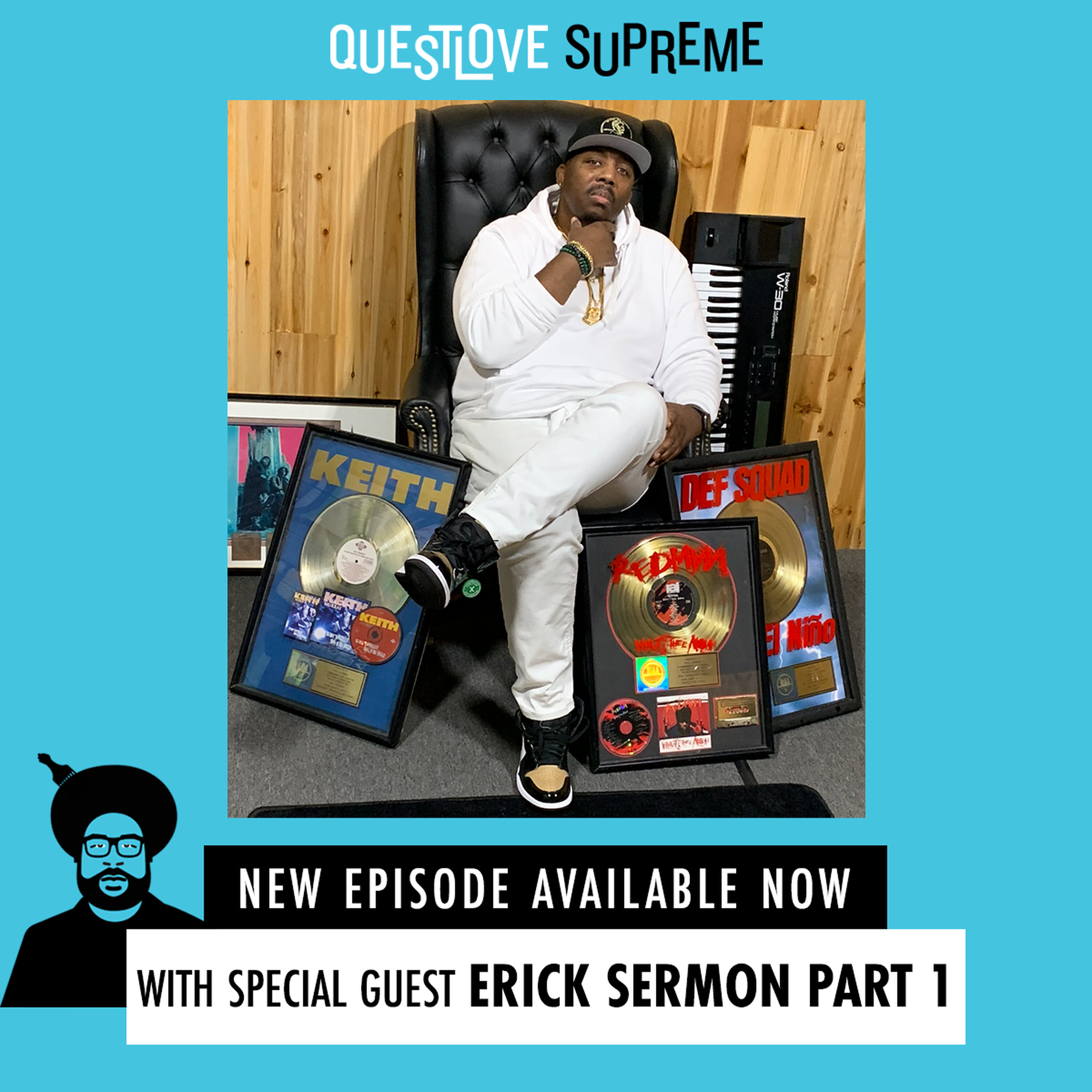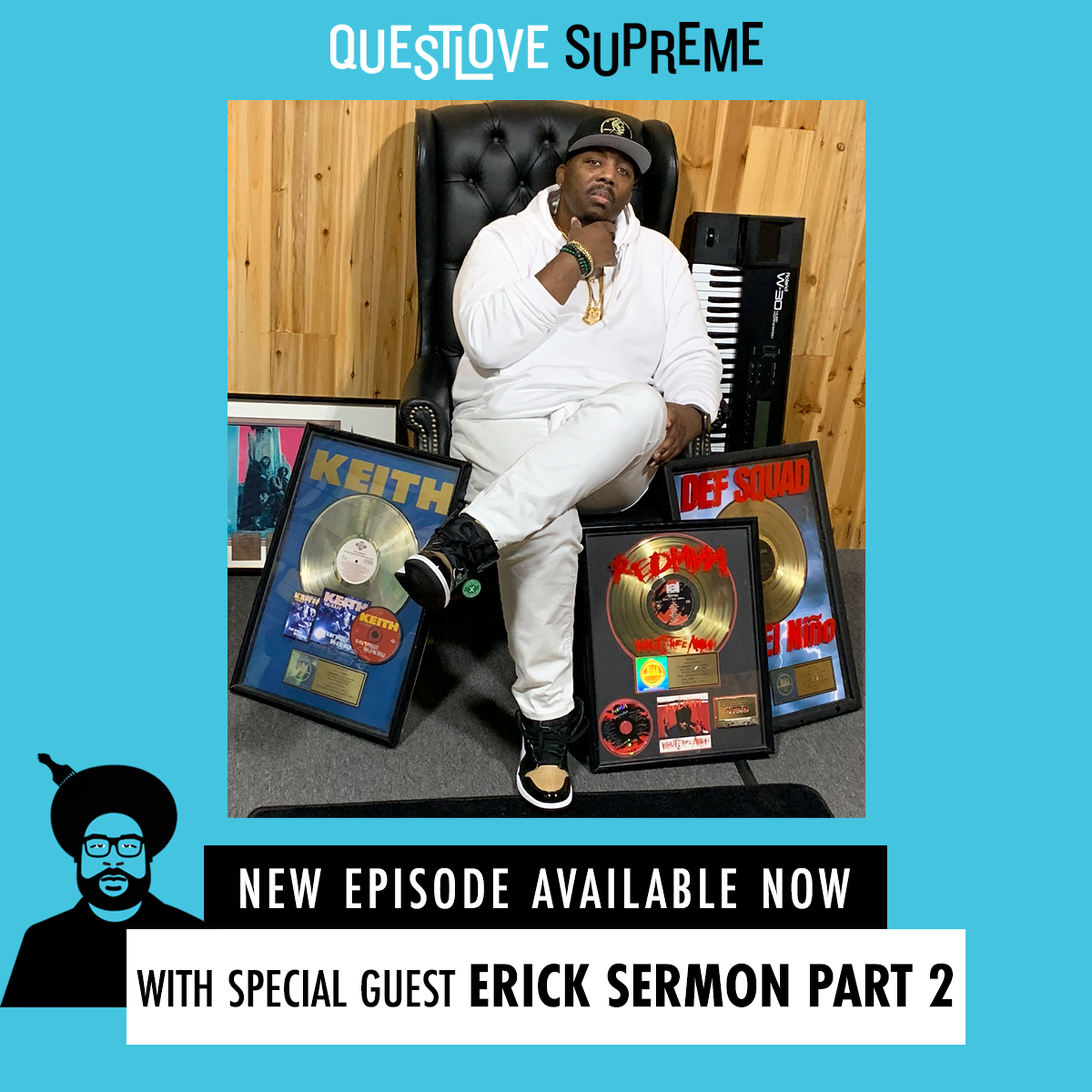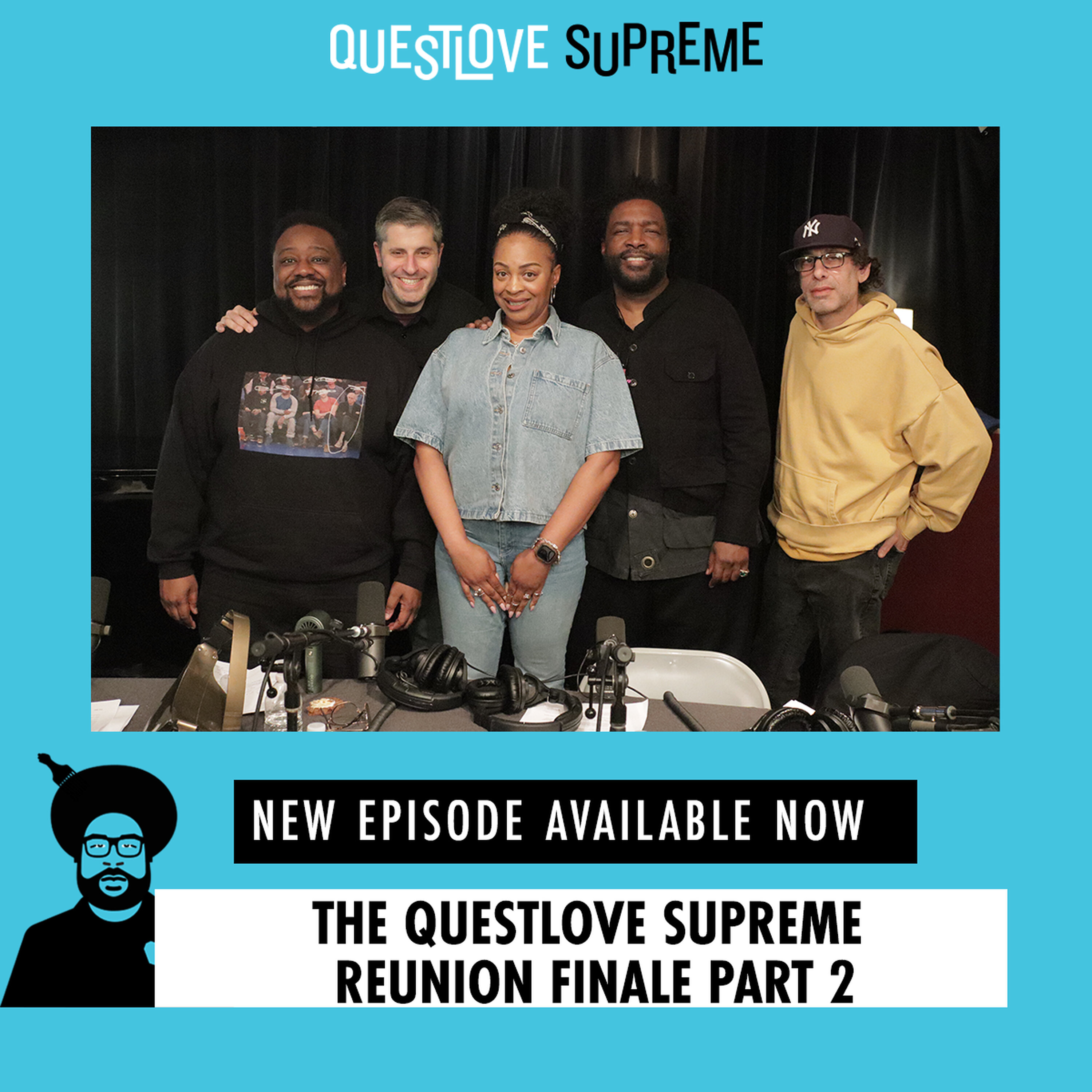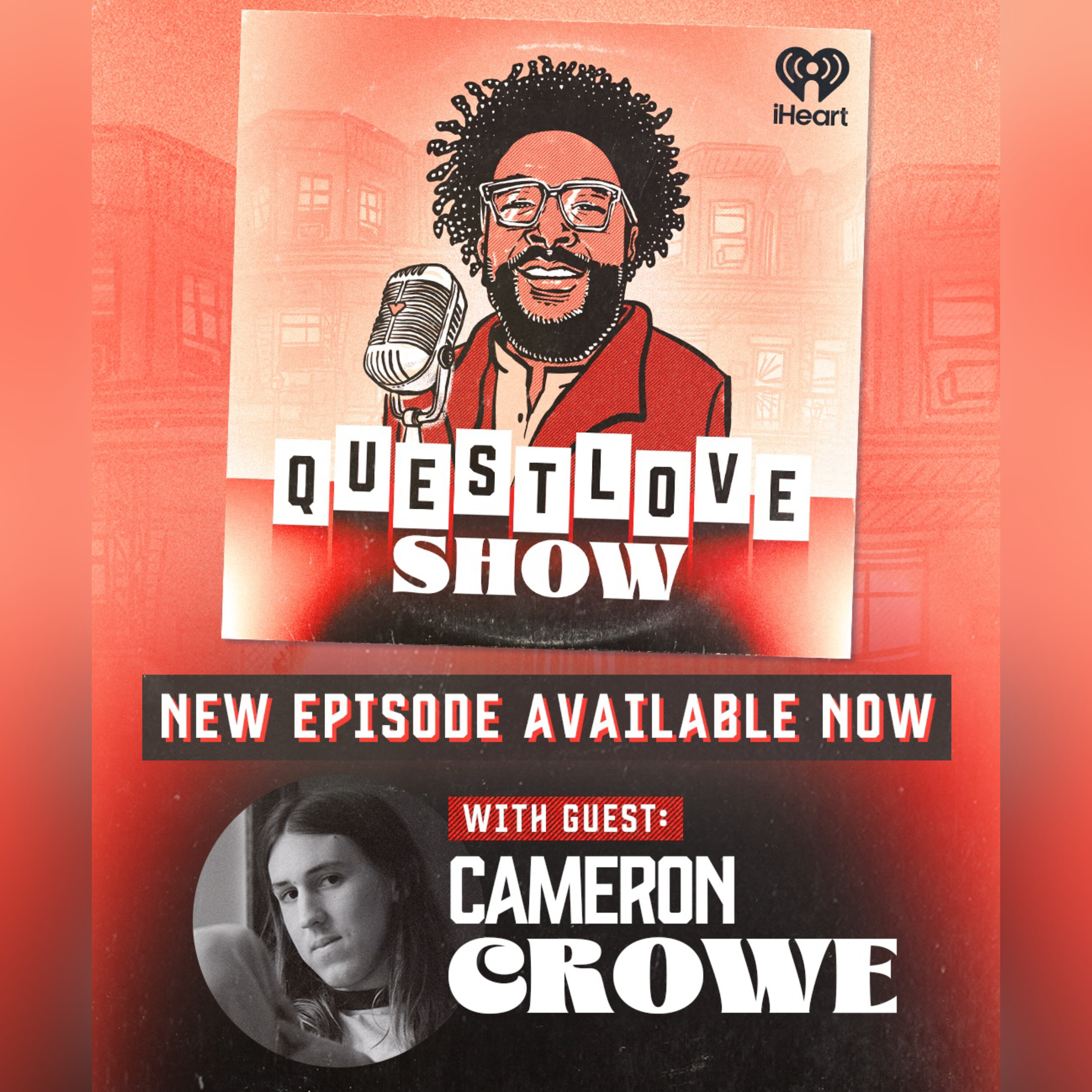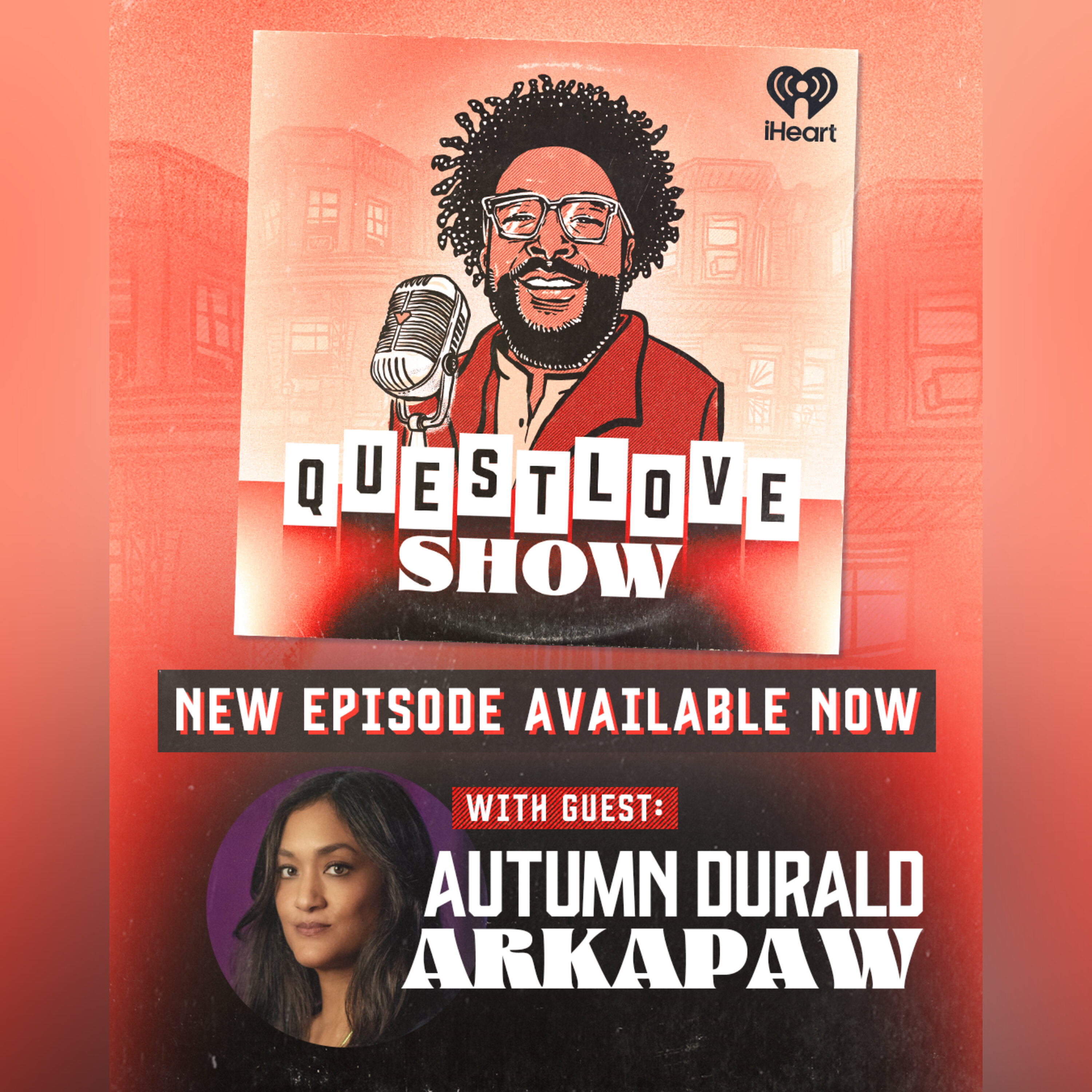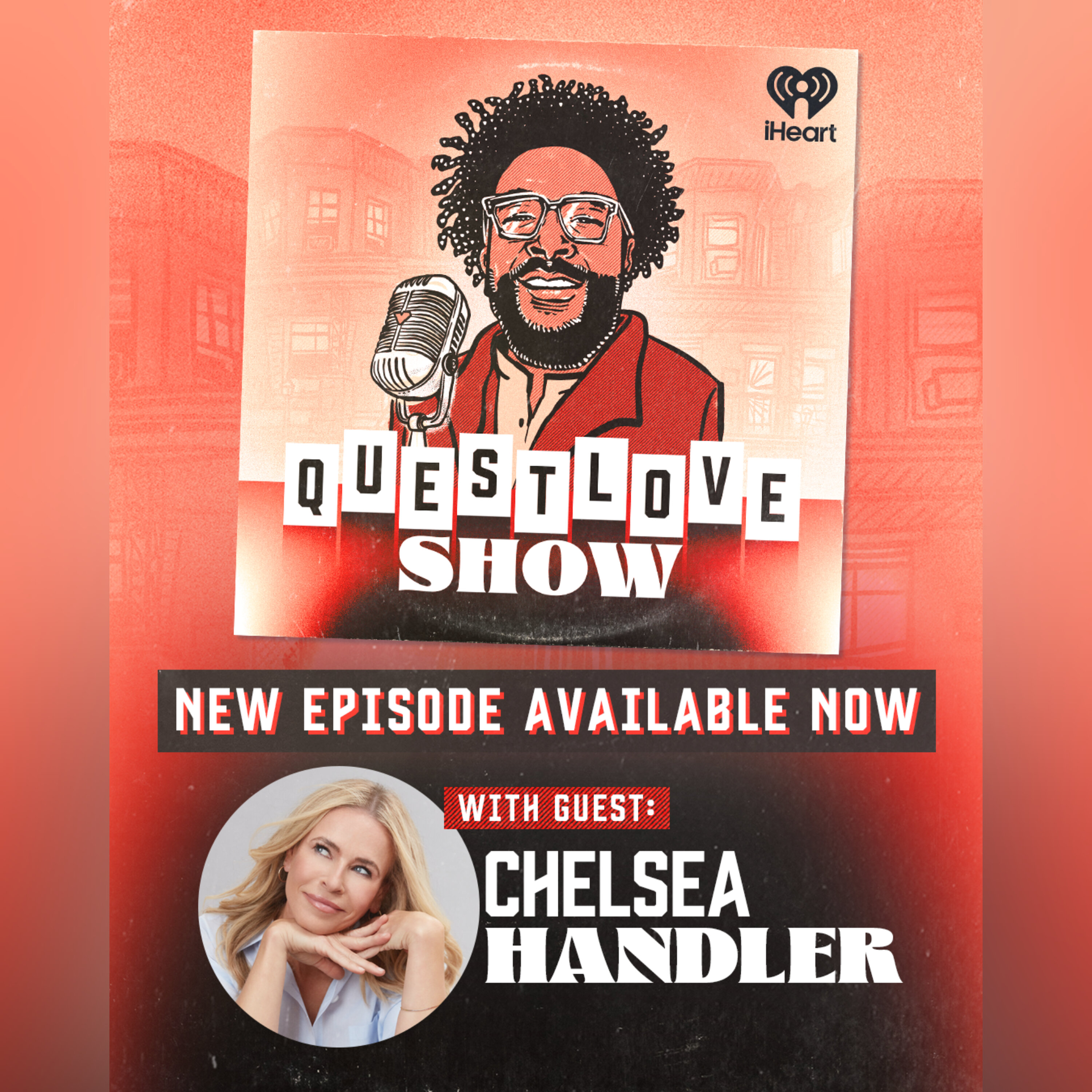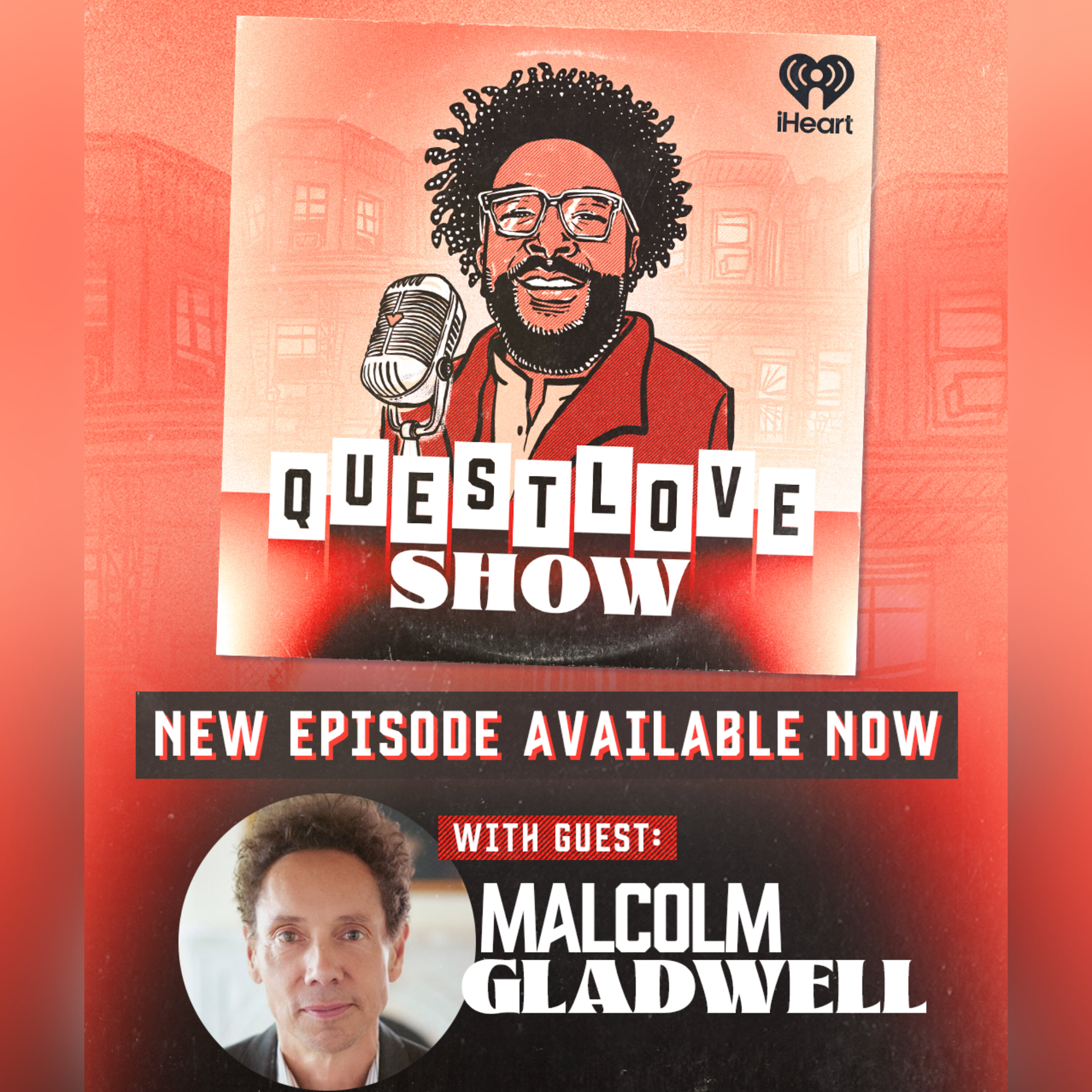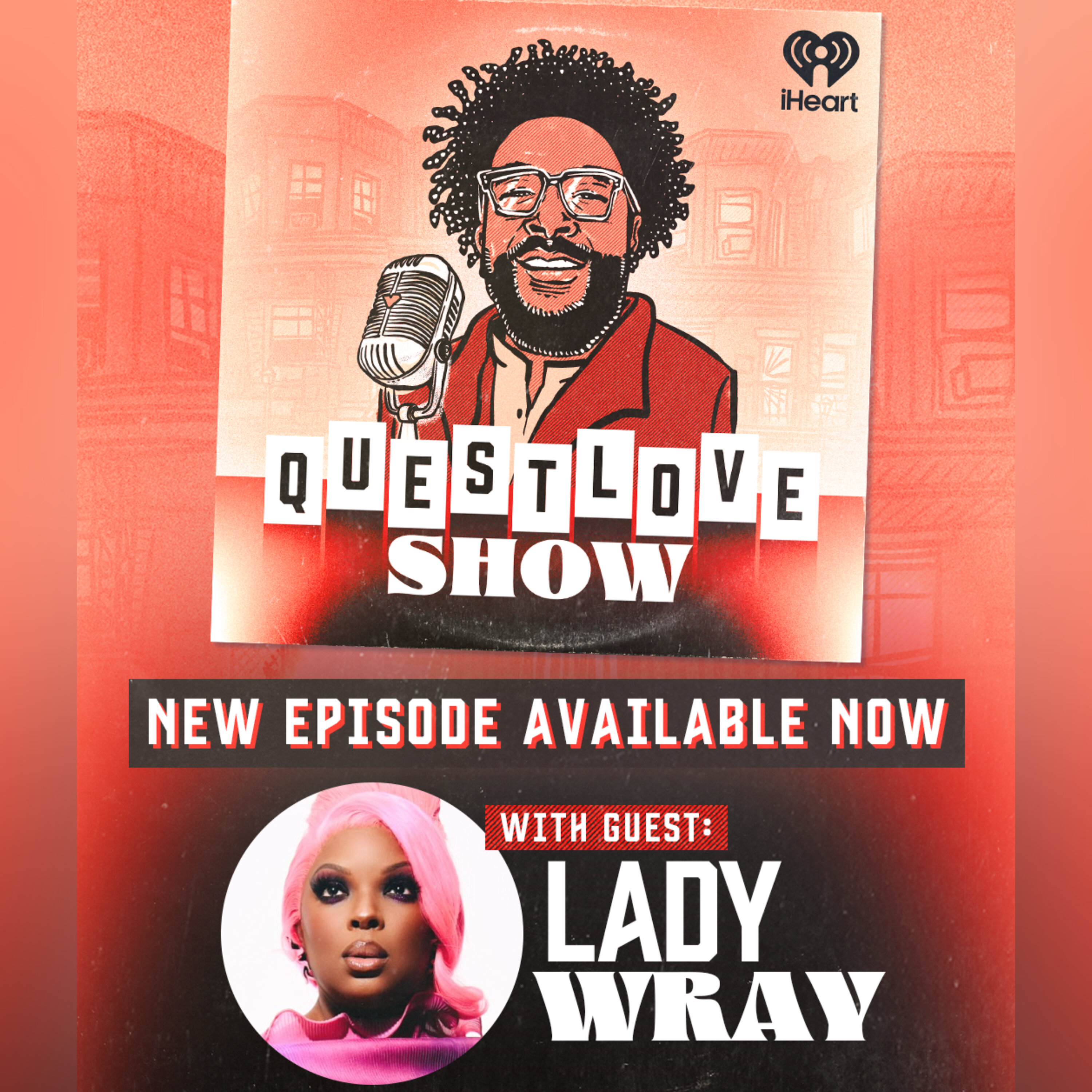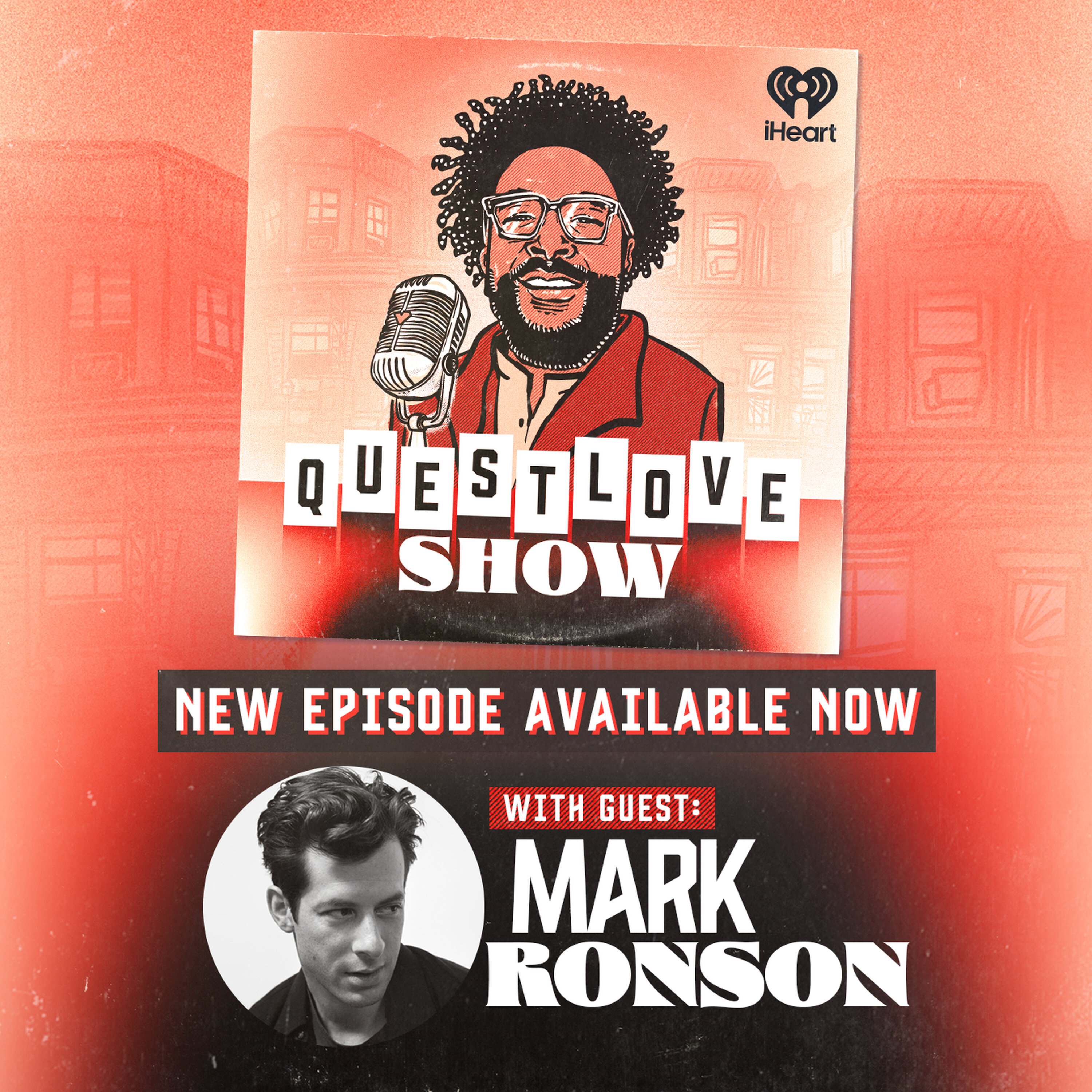BeBe Winans
Gospel giant BeBe Winans joins QLS to discuss his 40-plus-year career in music, film, and theater. BeBe details coming from one of the greatest and most voluminous musical families and breaking off to build a duo with his sister CeCe Winans. The singer-songwriter also describes his friendships with Whitney Houston, Oprah Winfrey, Denzel Washington, Jim Bakker, and Tami Faye Bakker. This conversation has some memorable stories, powerful wisdom, and much more.
00:00:00
Speaker 1: Quest Love Supreme is a production of iHeart Radio.
00:00:09
Speaker 2: Hello, sir, Hello, I'm right, I am fair admitting and that they say sometimes here okay, it's good. Hello everyone.
00:00:21
Speaker 3: Yes, I'm like here, by the way, because my name is harder to pronounce.
00:00:25
Speaker 2: What is it? What is the hard name? I want to hear the hard name. Lie? I Lie is not hard. If you know when you told now, I may have it may have been hard if I had to read it right. Yeah, we said lay up for the person. We all decided to get media or reading class.
00:00:54
Speaker 3: You look amazing. I love that shirt.
00:00:56
Speaker 4: Thank you, Thank you, ladies and gentlemen. Welcome to Love Supreme Duo style.
00:01:02
Speaker 2: I like this season.
00:01:03
Speaker 4: We're doing combinations of solos, duos, trios.
00:01:06
Speaker 3: A mere perfect combination.
00:01:09
Speaker 2: Yes we is this our first duo.
00:01:12
Speaker 3: It's been a while. We've been like a couple of times, but it's been a while.
00:01:15
Speaker 2: We haven't done a duo yet. I got that. I got that.
00:01:18
Speaker 4: So today special episode of Quest Loves Supreme. Today we are welcoming a Grammy Award winning legendary singer, songwriter, author, television producer, actor to say that he comes from a musical dynasty that rivals no one else an influential musical dynasty is really understating it. It can't be emphasized enough. How powerful you know? I come from the hip hop generation. Yeah, when we see the W we think of Wu Tang. But there's a certain generation they think of a musical dynasties with the letter w YEA one name that comes to mind, and that our guest is part of that music dynasty. Of course, in addition to his bloodline and his siblings singing, his entire family singing. Our guest has worked with so many greats today name him Stevie Wonder, Eric Clapton, and he needed Baker, Detroit's own Anita Baker, David Foster, and I definitely want to get into his friendship and creativity with the one and only Whitney Houston. And right now he has a new single father in Heaven with saxophonist Gerald Albright. We are delighted to have brother BB one and Zo on Quest Love Supreme.
00:02:35
Speaker 2: A thank you, sir. How you doing I'm doing? Or should I say what up? Though both I will say too, I'm doing great. I really am great. Great.
00:02:47
Speaker 4: Do you still reside in Detroit or where do you live?
00:02:51
Speaker 2: Now, No, I moved to Nashville, Tennessee, forty years ago, and everybody years ago. You know when you can say forty and you got a whole lot of years after that, you're old. See, you know what, I didn't stay young.
00:03:10
Speaker 4: What you say, I would have said four decades ago. I tried to compress it. You can say two scores ago if you you know, if you're talking about rebuffs, two scores ago.
00:03:22
Speaker 2: Yeah. Yeah, But so so I moved down here forty years ago, and then the girls came tumbling after, which is cc ang and Debbie, my three sisters. So all of us lived here in Nashville and our families and so.
00:03:38
Speaker 3: So y'all are the y'all are the pioneers because all of a sudden, everybody, I mean, we knew that the country thing was happening, but when it came to the black country and the black scene, like, Nashville's popping.
00:03:50
Speaker 2: So besides Jill, who else is in Nashville? You know a lot of people have moved from the industry. That you have Reese Witherspoon, you have Nicole Kipman. I'm hearing now Beyonce's coming through this way.
00:04:04
Speaker 3: Yeah, from s w V and Eddie George like they down.
00:04:07
Speaker 2: George and everything. So Nashville has changed tremendously. But when even when I moved here, I mean, if you didn't know Nashville, you would think country. But the reason why I moved is because it was such a great haven for writing. And you had to say music, not even country, but music in general, gospel, instigrational, R and B. You had it all here, the writers. So that's why I moved. My family was angry at me when I moved, I mean to the point where you can't do that. I was like, whoa, whoa, I'm twenty six.
00:04:44
Speaker 3: Was it about leaving Detroit or going to Nashville?
00:04:48
Speaker 2: Leaving Detroit? You know, my family very close knitted family, and me being the baby boy, I had six older brothers and so they thought they were my father's too, and so, oh god, all that works out. First of all, how many winings are there? Siblings?
00:05:06
Speaker 3: Thank you and mayor for asking this question.
00:05:09
Speaker 2: I can say that either way, there's a lot of them. Or I can say ten. It was ten seven boys straight my mom and dad had I'm not that boy, and then three girls after me.
00:05:19
Speaker 4: Wow, Okay, I'm not even going to get into the nephews and everything.
00:05:23
Speaker 2: So when you add it all up, you know, we go to a certain city family reunions or nightmare every other Thanksgiving. Oh god, the last one we had like one hundred and eight people wait for Thanksgiving. Thanksgiving? How do y'all even decide that you'll? Yeah, is this there's a certain my baby's sister is the one that's actually in charge, and so we rent five homes and not only Thanksgiving, but week that whole week. So after Thanksgiving is over, that week, you don't want to see no more winings for a good two years. So it's Thanksgiving the family reunion.
00:06:06
Speaker 3: Yeah, you know how many winings are on record? Literally, how many winings have recorded?
00:06:12
Speaker 2: Well you have you know when my when my brother started off, it was the four brothers the wine. Then you had me and Cec right, my brother Daniel, who is the sole artist. You have my two sisters, Angie and Debbie. And then after years down the road that my mom and dad recorded. So they met. My mom and dad met in a group called the Lemon Gospel Corps. That's how they met. My father was an only child and my mother only had one sister and so they met and then a sister in law, VICKI recorded, so within the family, tell you this. There's about forty five Grammy Awards.
00:06:55
Speaker 3: It's a Jackson's wine in Battle.
00:06:57
Speaker 2: Oh no, the wine is one. Oh okay, damn At least in the pop world.
00:07:03
Speaker 4: Like you know, Silvers were allowed to exist, Like I think to most people, the Winings are the only dynasty that matters and gospel, even though I'm certain that there are.
00:07:15
Speaker 2: Other Hawkins family, yes, and so yeah, we we and we grew up together, we being me and the clarks Us and the clarks sisters you know, same high school, you know, fred Ham and all them, And so we've always been a great, big family and understood it the doors that they open, the doors that we opened with for other people, for each other, and so you know, we've always learned to celebrate each other, right, and and everything that has happened for all of us.
00:07:46
Speaker 4: You know, I was going to say that it was really important for me to have you on here because you and your sister CC specifically were responsible for like a paradigm shift in the Thompson household.
00:08:04
Speaker 2: Oh it was Philadelphia.
00:08:06
Speaker 4: So you know, I've explained this on the show a lot that there was kind of a period where like I basically came home one day and there was a new regime and my dad was like, we're all born again.
00:08:22
Speaker 2: Wait, huh what happened? And this is all I know.
00:08:28
Speaker 4: Something happened in seventy nine, and I kind of feel like the first domino that fell because my father was in the music business as well, and the first domino that fell was there was a moment where in Donna Summer it explains this in her documentary where it was like seventy eight seventy nine, and this is when she was literally on top of the world in terms of her career and all that stuff. But of course, you know, there's an emptiness inside of her, and I believe she might have been conto plating suicide or whatever, and whatever the situation was, she had this revelation and she became born again, and she shared the story on either the seven hundred Club or the PTL Club.
00:09:12
Speaker 2: I believe it was the seven hundred Club. It's Pat Robinson.
00:09:17
Speaker 4: Because of terrestrial television and not having access to cable, my dad would just leave the channel on either PTL or seven hundred Club would just buy blocks.
00:09:33
Speaker 2: Right, four hour blocks, five hour blocks on.
00:09:36
Speaker 4: Certain UHF stations, and my dad would just constantly keep it running. And so around eighty one something really touched my dad in the morning whatever, and he ordered something you know, call this is one eight hundred number to get your prayer package or whatever. And inside of that prayer package thing was a forty five and the forty five was.
00:10:03
Speaker 2: Up, not exactly a cover of Joe Cocker and.
00:10:06
Speaker 4: Jennifer Warren's Love Lifts Up Where We Belong from Offers and a Gentleman, but a gospel version of it.
00:10:13
Speaker 2: Wow, And my dad played, remember that version, you are wearing me out right, this bobus, this is.
00:10:21
Speaker 3: Both of them a mirror, this is this is this Islaiah.
00:10:25
Speaker 4: So this will explain all the prince punishments and all those things, because I didn't get the memo that we are now born again and what that entails. Because before in nineteen seventy nine, I would say my parents were relatively hip. They were sixties revolutionaries. Yeah, you were Afros and you know my mom. They had a sprawling record collection of four thousand records.
00:10:47
Speaker 2: They were hip.
00:10:48
Speaker 4: And then something happened in nineteen eighty eighty one, they became born again and this this.
00:10:55
Speaker 2: Was happening, you know. And I think that when you are like in the Revolution in the eary.
00:11:00
Speaker 4: Sixties and the hedonistic seventies, then the eighties were sort of seen as an atonement period for some. And man, when he got that forty five, he played it so much.
00:11:16
Speaker 3: That's the only song that was on there.
00:11:19
Speaker 2: It was a forty five.
00:11:20
Speaker 4: Or five, but it's what it's what made them stars. And then so if anything, I think for a lot of people, they came to your brothers first. No, from my household, BB and CC were first.
00:11:36
Speaker 3: Yeah, my house old BB and CC was first, right, and then it was like, wait, there's more.
00:11:42
Speaker 2: So suddenly, maybe a year later, I'm hearing this no no, no, no, no, no, no, no, no, no no song over and over again. I'm like they got another song.
00:11:52
Speaker 4: It's like, no, there's then just between eighty one and eighty seven, like Whining's only the entire clan.
00:12:04
Speaker 2: So I definitely got questions to ask. Let's go. I don't know if to say thank you or I'm sorry? Is that I too? You know what? Okay, So here's the deal.
00:12:15
Speaker 4: Oh, because I'm twelve thirteen and this this happens with every twelve and thirteen year old.
00:12:22
Speaker 2: Like once your parents lay down the law, you see it as punishment, you know what I mean?
00:12:29
Speaker 4: Oh yeah, oh yeah, and so but look I say this way, I joke now that even I'm starting now to have fond memories of the pandemic, like ah, man, it was fun like living in the farm, you know, taking long walks, not having to work, like of course in twenty twenty it was like, oh god, the world's about the end. Like now I'm starting to have like pandemic fond memories. So that said, when I now think of like my tweens and how heavy the whinings were inside of that family, all of your work, all of their work, and all your simply like included, now I can say, yeah, those were fond memories.
00:13:15
Speaker 3: I'm not traumatized.
00:13:16
Speaker 4: No, the traumatizing part was wanting to listen to rap music secular music and trying to sneak it in the house and getting busted.
00:13:24
Speaker 2: But oh yeah, oh yeah, and so the thing is so but I'm tickled. I could laugh for the rest of this interview. I understand. So you have to understand being raised in the household, I was raised in. My father laid down the law there would be no other type of music in my household except gospel music. Detroit. Though Detroit, I'm saying Motown where I hurt. Where one street ahead Santa Barbara to the left, Smokey Robinson Lyve. We used to rush to his house to shovel snow because Smokey would give you like twenty five dollars instead of you know, and three blocks behind us on Santa Maria lived Stevie Wonder. Not only was it Motown, four more blocks down the street, the four Tops. So we had all this great, great, great music, and we could not listen to it in the house. So sometimes, you know, we would take a song from that era and then we would switch to words and my father to know, ye, what.
00:14:34
Speaker 4: Last light is like the light or something exact. What was your what was your first musical Well? Wow, okay, now right, what was your first musical memory in life?
00:14:46
Speaker 2: Well? You know so so growing up seriously in the household I grew up in music was always a part of my life, whether that was in church or at school, school choir. So it was always a love of my whole entire family. Not knowing it would be our career. But my father and mother saw the passion for music, and so they sacrificed. You know, my father was a barber by trade. He worked in the car manufactory and everything else between there, you know, because he had to support ten kids.
00:15:24
Speaker 4: Wait, can I see something? Were they part of what we would call the great migration from down south where blacks were escaping down south to go to the north of.
00:15:35
Speaker 2: My great grandfather. Yes, from Mississippi.
00:15:39
Speaker 4: Okay, so they came to Detroit to fine industry and yeah, okay, I'm.
00:15:44
Speaker 2: Had definitely born and raised in Detroit, and so we you know, my father sacrifice bought us a piano, and none of us went to school and learn how to play piano. It was self talk, but we had a passion. So they really poured into us. So we sung all the time, you know, not knowing it would be our career yet and still we learned so much. And my father used to tell us, before you are international, you gotta be regional, I mean national, Before you're national, you got to be regional before your regional got to be local. And so we were taught to be faithful with our talent. So you know, whether it's three people in audience. We sung like it was two thousand, you know, and gave it our all. And then doors started opening here, doors started opening there. My music me and CC was totally different from my brothers because of my fourth grade teacher, Miss bids, I'll never forget this because it shifted me. I always wanted to write more so, always been more passionate of writing than singing, And so in the fourth grade he said to the students, I have a poem I'm gonna read to you, And that was really the time to go to sleep. But she read the Wind, and when she read it, it captivated me. He said, why does the wind so want to be here in my little room with me? When he's all the world to blow about? And just because he keeps him out, he cannot wait a moment? Still be frets upon my window ceiling sometimes brings a noisy rain to help him better at the pain. Upon my door, he comes and knocks, and he rattles and rattles at the locks. He lifts the latch and stirs the key and waits a moment. Previously, tell me, why does the wind so want to be here in my little room with me? And I was like, thank you Jesus. WHOA wow? That was profound. You okay, it was profound. So when I wrote songs like love said not so, I wanted to write it in a way that caused people to think, you know, and so doing that it separated me and Cecy from my brothers. And Ceci and I wasn't a duet until we went down to PTL and joined the Ptail Singers, and Jim Baker came in the room and said, I heard a song on the radio from officer and a gentleman, and I want, you know, change a couple of words and I want you Bb and cc y'all sing it together.
00:18:19
Speaker 4: Jim Baker, It was that instantaneous how we became a duet.
00:18:28
Speaker 2: How does one.
00:18:29
Speaker 4: Start a gospel business where suddenly you're now making a living off it?
00:18:36
Speaker 2: Like, how does this start in your household? Well, my father, you know, our biggest fan, and he felt as if you know what, you guys are talented, talented enough to record. So he put his money into recording the first forty five for my brothers. As that continue, that door opened another door in that door, and before you know it, my brothers met Andre Crouch and the Disciples who were our heroes, and he signed them and the first to Light Records or Records? Yes, where was Light located in San Angeles? Gee? I thought it was a Detroit label, Okay. And the first single that Ray released in nineteen eighty was question he is No No No, No no No.
00:19:29
Speaker 4: And I came in backwards. But so that that first album did start the dynasty.
00:19:35
Speaker 2: So me and CC at the it was a the question is was out first? And then CC released that first single for PTL. Uh Lord left us up when we belonged, and so we were on different tracks, probably a year or so in between the release of their song and the release of our song on PTL Records.
00:20:04
Speaker 3: I'm still in shocked at Jim Baker's ear, my mind, his ear, don't hear y'all, but he did he did. Yeah, I'm I'm a shock.
00:20:13
Speaker 2: Of that, So you have to understand. So me and CC we had before we came to PTL, we had a group and the Whinings Part two, and in that group was another brother, Danielle. At the time, Vicky was married to Marvin and then another friend and so after a couple of years, she said, I remember us looking at each other saying do you feel what I feel? And she was like, I think so. So we had to go back home to Detroit and tell the rest of our group this group no longer exists. Y'all gotta go back and get all easy to do that? That was so difficult.
00:20:53
Speaker 3: Did people walk away upset?
00:20:55
Speaker 2: Oh? Yes? My father was angry because you know, my father was like, we got to stick together. And I said, Daddy, we are.
00:21:02
Speaker 4: But me and CC, well, first of all, okay, are you the C C respectively consecutive and age? This's the first girl. I'm the basic, the eldest girl. You're the youngest boy. Okay, how do you guys even pair up?
00:21:18
Speaker 2: Like? Were you two just that close in age? So Ronald, my brother who passed away twenty years ago. Now he put me, my brother Daniel, my brother Michael together with CC. We were the Christian version of Gladdest Knight in the pips Okay Elementary school and they were in high school, Mumford High which had a lot of great talent in that high school. And for their talent show, he made us go sing at that talent show. So we had that group and then as time would have it, Michael would leave our group and go to their group, and they became the Whinings, and so it was just it kept evolving. Jim and Tammy that brought us together and caused us to be a duet. PJL was was at North Carolina, Charlotte Charlotte, North Carolina. It was the place if you wanted to be exposed on Christian television. It was PTL. It was much bigger than TBN and CBN and all those other places. So I met all those people, me and CC because everybody came through PTL, even Hollywood. You know, if an actor became a Christian, he came through PTL. It was the place to go.
00:22:47
Speaker 3: And they were racially welcoming to everyone too well.
00:22:51
Speaker 2: Jim and Tammy was, but at the time would go on. You know, I would learn a lot how they were attacked because of me and Ceci. They broke ground in having these colored children. Whoh that was that was controversial. Yeah, that's what I'm saying. Death threats, death threat and he hid us from those. So so I would jump over to you know, I have a book, and I have out of the book is the musical that I wrote called Born for This which looks like now twenty five spring, it will hit Broadway. But one of the things that that I did, I went and set with Jim, who are still friends to this day, because they became like our parents, they really did, and they protected me at Cecy and so I was sitting with him and I told him, I said, Jim, you know, me and my co author, we took some you know, lead and said there was you know, some threats. And Jim looked at me and said, be there was many threats. I was like what he said, people would call up stead they were coming up to shoot us and kill us. And how could they have these black kids on the show, and this and that? Oh it was. It was unbelievable.
00:24:06
Speaker 3: The hatred these beautiful chocolate babies too, like what.
00:24:13
Speaker 2: Oh they was angry. And then after we received we did that duet. I mean you thought you were tired of listening to the quest, We were tired of singing that song. It was every day.
00:24:28
Speaker 4: How long did it consume you before, like you eventually had more songs in your canon that you could you know.
00:24:37
Speaker 2: Yeah, I mean we sang that song seriously every day for maybe every day, twice or three times a day. For two years straight. And so because of that, we were asked to come out and sing various other places. And so that's when I had to say, CC, we gotta we got to create some duets and so taking songs that Amy Grant sang, taking so that this one saying and made them do X and would go do that and so and that's when we realized, you know what, I think we're supposed to be a duet, you know, and went and had that talk with the family.
00:25:13
Speaker 4: How did the kind of fallout of eighty seven affect you? And what pivot did you had to make once the PTL empire kind of came crumbling down.
00:25:29
Speaker 2: I don't is it over now or is there's there's other people in that space. So when we decided to leave, it was years before that happened because CC was getting married moving back to Detroit, and I thought, hey, we came together, we're gonna leave together. So it was the hardest meeting we had and Tammy cried. It was we went to their home for dinner and they cried and we both cried. And then Jim said to us, he said, you guys are going to be huge stars, And we started laughing. He said, I'm not I'm not playing. You're going to be stars, you know, and you know talked about and we're sorry for you to let you go, but we understand, right, So we went back home to Detroit and then we got a call saying a year or so later, Jim and Tabby want you to come back and you can have the freedom you need because we have recorded and things started moving in our in our career as a duet, and you can have all the time you need. But they just want you to come back, and we agreed to it, and then then all of a sudden, get a phone call said Jim said no, and no explanation. So it was like, this is confusing. I mean we were you didn't know what was happening. I know what has happened. And so when everything tumbled and everything came out, we realized that he was protecting us. He did not want us to come back and be caught up in the store or anything that was happening. So he was still loving on us, still protecting us as he did when we were there the whole time. I ran into a car as I was cleaning different drawers in my home and there was a card from Tammy Faye Baker that she wrote to my son bb whinings sore, Mom's going to miss you, and so it was. It was. It was very moving, but they saw what was going to happen in our lives before we saw.
00:27:39
Speaker 4: Did you ever watch the biopic that?
00:27:44
Speaker 2: Yes, did you feel like it was it was depicted fairly? Or I thought some things were predicted fairly. You know, Tammy Faye was one of the sweetest persons you ever want to meet. I mean, when she passed away, it was a very hard thing for us. And Jim has always been a supporter, right they were dear to us. Okay, to this day, Jim, I don't agree with everything he says, but you know, that's life. At the same time, when I opened the musical Born for this the regional run in Atlanta, Jim came to that. So I had Jim on my right side and I had my mom on my other side. There's a scene, there's a scene in it where I was dating one of the singers and actually Tammy, and this was the racism that existed. Tammy was upset as well as others because she was a tall blonde and she said, you can't date BB because it's not right, and so we ignored it and they fired her. So while this scene has gone on, Jim leaned in and said, I didn't know that happened. I'm so sorry, I said, Jim, that was thirty years ago. You even got this.
00:29:08
Speaker 3: Wow, it's so interesting, the subtle racism of things still right and yet she still loved you. But that's that's what that's seven white folks, I guess exactly.
00:29:20
Speaker 2: But you're talking about something that's embedded and.
00:29:23
Speaker 4: Yeah, you know when you're obviously not going back to PTL. Was there ever a trepidation of fear, of like what now?
00:29:32
Speaker 2: What what do I do? You know what? Never fear. I was always a big dreamer and some people, so my father used to say, there's a thin line between confident and conceited. And some people may think you're conceited, but what you're going to be is very confident and believe in what you have. Right. So I believed that that CC and I would accomplish fish things that was even beyond our dreams, and so I went for it. So I went to Nashville, you know, with a friend, and took's meetings and then brought Cci and everybody was saying no. One person said I don't even hear talent. I was like, whoa, I mean, wait what that's what the record company said. And I looked at him and I said, okay, you mean you don't hear none. That was confusing to me. Okay, but that's what he said. And then we kept going. So I never ever thought this is not going to happen. Never thought that, never, And so the last record company, which was Sparrow Records, said yes. And that started the serious step and shift in my sister's career and the writing. Again, we knew traditional church is not going to like this, and they were angry, but that was no fear because every song I wrote, I had my mom listen to it, and if my mom gave me the thun up, I was good. I was looking. So that was the That was the path and never stop.
00:31:23
Speaker 4: How are you even aware of what's out there if it's not allowed in the house?
00:31:28
Speaker 2: And did you guys follow the rules or.
00:31:32
Speaker 4: Also like Richard Pryor's status, where you had to like sneak and listen to it, But MA mean, when.
00:31:37
Speaker 2: You walked up the house, there's no way you couldn't Detroit, Michigan. There's no way you couldn't hear or Tops and Stevie Wonder and all these other people. So no and good music always caught my ear. So my favorite singer in the world was Donnie Hathaway. Oh if you wanted to make me smile, say, man, you you you sound like a little a little bit like Donny, what can I buy? You? Got it to me? He was the greatest singer of all times. He really was. So there were there were vocalists, there was writers that I kind of gravitated to. And when I wrote a song, I wanted the song to be kind of like distant, you know, uh, you know, it was just my imagination, right, so it was like oh yeah, yeah, yeah, and and and so that was those were my heroes. Those were the kind of songs that I was, I was uh gravitated to. So when I sat down and started writing stuff like I'm Lost with You said, don't have vocal move mid mid temple and and lyric was the most important that I said something that would cause people to be uplifted and to give life another try. Now here's the thing.
00:33:10
Speaker 4: When I first heard and that's a good example, like if I'm lost without you.
00:33:15
Speaker 2: I mean, obviously, you know. There was a period.
00:33:18
Speaker 4: Where I remember second grade, somebody either she in a valerie, like someone in my school wanted to sing you Light up my life, and my music teacher had to say, like, you know, that's a gospel song, right, They're like, no, it's you know, like we we had no idea that you the light of my life, was singing about God or whatever. Some point I always wondered if using especially in an example if I'm lost without you, would sometimes would you sort of ambiguously blur the lines of the pronoun, because we often think in the gospel world that be you and sometimes works in the second world, like.
00:34:01
Speaker 2: I think love too, love right, and I think in.
00:34:04
Speaker 4: The second world, like Philip Billy once told me, like it was some earth wind and fire song. Thing was like I had enough, and I'm thinking like, oh, Philip Bill is singing about I'm s so tired of being on the road and I'm coming home to you, babe, And he was like, no, I'm singing about I'm coming home to.
00:34:22
Speaker 2: God or whatever.
00:34:23
Speaker 4: As a songwriter, you know, would you say that you could catch more fish if your songs are spiritual but you don't know where it falls.
00:34:35
Speaker 2: And so what I always say and truthfully say that that is I wish I was that smart, and I wish I was thinking that way. I always this is, this is my reality. I felt like I had the authorization to tell the world what God meant to me in every ho aspect of my life, in my love life, in my friendship life, in my family life, and my public life, in my private every area of my life. I felt like I had the authority to write about. So Lost Without You was definitely all about me saying, Lord, if you leave me, I'm totally lost. I am really totally lost. Now let's jump into the song. Down the Road. Me and Ceci are in Chicago doing a concert. It was a one of those musical amphitheaters, and not knowing the night before, Janet Jackson was in Chicago in concert. She saw our names and the next thing I know, I'm sitting there because Fred Hammon was on The Shame Show and I'm listening to Fred Hammond and somebody said, excuse me, mister Winings, you have to come to your room. It's like, no, I'm I'm watching you know, Fred, No, No, you have to I'm watching Fred mister Wayne is Jenny Jackson is on the way to your room like Janet, if you're nasty, Jenny, I love that you reference. And so we go back to the room, cec it myself and up drives this four car convey and Janey gets out and comes to the room and the first thing she wants to ask is tell me about Loss Without you. It's my favorite song. We are you talking about? Really? Yes? I never Agreezy, And so that was one of those moments that I realized people interpret our songs the way they hear it, and that was okay with me. You know, I always feel and always felt then and now where there are people, whether it's in the club, where it's on the street, in the church in a different venue where there's people, there's ministry, and so I'm always excited when my song goes beyond the four walls.
00:37:08
Speaker 3: Wait, Can I ask you both a question? Because oftentimes on this show, I would think that something is created and new, but maybe sometimes I'm wrong. So I don't want to assume this. But for me and my generation, you were that person who blurred the line. And yes, you initially maybe you didn't think you were talking about God. But then when you realized you were talking about God, then it was like, oh this is even better. I'm good, you know. So why did it feel so special? Was there anybody else for who really could grasp that? Like fine line? Who is I mean?
00:37:37
Speaker 2: So you had again, you had the Hawkins family, so Edward and you know when he did Old Happy Day, that thing went cross.
00:37:48
Speaker 3: You know, but he still said Jesus Christ though.
00:37:50
Speaker 2: Yes, but it went to the pop charte wait, I got you, okay. You know, music has a way even before the lyric of how it's produced and the rhythm of it, that will cross the lines. And so you take that rhythm that we were taught, you take also the message, which is important. And I remember after every after every album we recorded, I would sit it on the dresser and I would say, you know, lord, I did my part. Can't wait to see what you're going to do with it. And so they get a phone call from someone in another country saying I was on the dance floor dancing to Addictive Love and it was my song and and then I realized, oh wow, oh that's a Christmas song And it changed their lives. And so I'm always excited when things like that happen.
00:38:49
Speaker 3: But bbe did you hear what you just said? Like, I'm just saying, y'all know that our grandmothers was like, don't you be dancing to that gospel music?
00:38:57
Speaker 2: But to me, when I read in the Old test when David dance out of his clothes because of what God had did, So you know I was free. When I went to PTL to Charlotte, North Carolina, I knew there was something happening inside of me that brought down the walls man made rooms, and I really found out more for personally who God was. So you have to understand. My first movie was ET, and I remember sitting. I had to go see it twice because the first time I saw it, I couldn't even I couldn't even enjoy it because I heard thunder you got die, I got it, got it for you?
00:39:52
Speaker 4: Was there ever longing to like? In making the first album in eighty four? Was it some up by design that to not make it too funky, not make it too slow, asked to not turn off the.
00:40:09
Speaker 2: Older gospel authority.
00:40:10
Speaker 4: Whereas come eighty seven, you guys are like, hey, here's breakbeats, here's a drum machine. I'm gonna make it sound like today's music, Like were you ever caught in the controversy of don't make the sound too No?
00:40:28
Speaker 2: Never, never, And so the answer to the question is just so it takes me back back to pt. L. So Howard mcquarie was the musical director and he's that called knew my brothers and asked if we could come audition. So he has a meeting and the last minute, Jim Baker called another meeting, and Howard comes to me and said, b you gotta do me a favorite. You've got to go in and meet with this guy. His name is Keith Thomas's from Nashville. He's coming up to meet with me. But I can't meet him because the thing. And I looked at Howard and said, I'm not going to meet somebody who's coming to me. I mean that makes no sense. I would disappoint him as well. And so said phoebe just just going and meet him, not knowing because that I was going to meet the person that I would collaborate my whole career with. So when he started playing on the piano, it did something inside of me. It was like it was like meeting you know your spouse. It was like wow, I mean I fell in love with his courts. So before the meeting was over, I told him, I don't you know, let's let's swap numbers because I'm gonna come to Nashville and I'm gonna sit with you and there you have it. So it wasn't a thing of being worried about what people were going to say or how to navigate the craziness between traditional and contemporary. I just found my partner and we just started creating, and so I you know, I owe you me.
00:42:09
Speaker 4: It was like, yeah, I was gonna say, I owe you me. Was like, that was the first one, right. Keith Thomas to our listeners, don't know. He has so many numbers on the board. He's probably going the best for I think he wrote save.
00:42:23
Speaker 2: The best for last last.
00:42:24
Speaker 4: Vanessa Williams did he have something to do with.
00:42:31
Speaker 2: Thomas what he did Amy Grant Baby, Baby Baby, Yeah, yeah he did. So. Keith was not being utilized much at all in the Christian world until he produced Me and CC and then people started finding out. But understand after the first album, Me and Cecy were now signed to Capitol Records, and so we went up to California, had the meeting with the CEO and all these big executives, and then the COO said, okay, you know you guys are going to work with different producers and me and sitting there and I said, no, no, we already have our producer, Keith Thomas. He said, oh, you know you're big time now, you're in the big league, so you got to work with big producers. And so long story short, I realized, oh, y'are not asking us, y'all telling them. And so I looked at him, happy to be on Capitol Records, and I told him, but if we can't use our producer, then I will grab my sister's hand and we will walk out and y'all have a good day. And he said, what, well, you would leave Capital Records And I looked at him and I meant this. I said, don't get it wrong, glad to be here, but you do not hold my future. God holds my future. So we will walk out of here. And that man said, well, I guess keep producing. I didn't know he was white, They didn't know anything about him, but he brought us to the party. We have this meeting is because of Keith Thomas and the collaboratory chemistry that he and I had. And so I'm glad I did it because because of that, you have the slew of things that me and I says to a company.
00:44:23
Speaker 4: So on that first album, yeah, you pretty much are utilizing your siblings as auxiliary voices.
00:44:31
Speaker 2: Yes?
00:44:33
Speaker 4: Is that obligatory if you wanted to work with another group of background singers with your family, feel some sort of way like do you know we were always now?
00:44:48
Speaker 2: The only thing about us using each other is that we were free. Yeah, I was gonna say, and how does that work? Three? Why not? Why would I pay CC? Why would CC pay me? That made no sense? So if you wanted to you and that was just how we were, well, not.
00:45:06
Speaker 3: CC, but everybody else. So I mean, did you got some other folks in the backgrounds too?
00:45:10
Speaker 2: Right? Oh? Family, that'd be and various other people. So if we used other people, which we did, you know, you have to pay fees and so whenever we wanted to, you know, if the budget ran out, Hey, Marvin, how you doing this day? I need y'all to set up a record, is that to come and help us? And to this day, you know I turned sixty, I can't believe it. It's two years now, I'll be sixty two. And so when I had I always wanted my sixtieth birthday in London. So I decided the last minute to hear of a concert in London. So I called my brother and I said, Hey, you're gonna come to London for me? He said, I guess I'm not getting paid. I said, why would we start paying each other? Now?
00:45:56
Speaker 4: Forgive my ignorance and asking this because I still feel like I'm relatively well adept in my Whining's allergy. Has there ever been a collective.
00:46:07
Speaker 3: Twenty three hundred Jackson Street.
00:46:09
Speaker 2: Yeah, a collective Whining's album project? No, No, I only had we. We did two Wining Family tours, international and national tours, and we had the most fun. It was absolutely incredible. But after we came off of those tours, I don't never have to see another one a kid. And this is the reason. So as the youngest, right boy, are you the agitator? No? No, I'm the one that does the work. And so I'm creative in the place of and I enjoy it in putting this song with this song, and this and that and that, and so I'm creating the whole thing, given permission to do it, and then at the last minute the older brothers wanted to come in and say, I ain't doing that song. Yes, you are so back and forth, and you told me to put this together, but I didn't tell you that song. Well you singing that song. I mean up until ladies and gentlemen, please welcome. Who is the alpha whining? Who is Dad? When Dad is not there? Well, Marvin thinks he's there. Dad was alive. He used to tell my mother, I'm your father. I'm not lying. You call him up and he'll say the same thing. So but he was and still he was the songwriter of the Whinings, and we all you know, used to always say he's the greatest singer in the Winings family. At the same time, he is not the one that does the footwork, you know, right, And so I'm that one. And then you know, you always meet Okay, he is that big brother and little brother, you know, right.
00:48:16
Speaker 3: But BB, you got like nephews and nieces and stuff. Now I'm curious if there's a baby Bebe coming up up in the family, who now is like, well, Bbe, Remember you used to be that person. But now I know my finger is on the pulse and.
00:48:27
Speaker 2: I I wish we had that. Now. We do have great writers. H CC's Sun is really a great writer, Alvin Jr. And producer. He's produced some things on her album. But and in One is one who right, So we have some great writers. But these days it's hard. I don't know if it's just this generation. I don't want to do no work. They just want to walk in and just hey, no, it don't work like that. Here's the thing though, and I hear what you're saying.
00:49:04
Speaker 3: This spendor defend the people.
00:49:07
Speaker 4: I kind of believe that everything that we've been generationally taught our parents, our grandparents, our great grandparents and so on and so forth.
00:49:20
Speaker 2: I now believe that we might have.
00:49:23
Speaker 4: To let maybe eighty percent of everything we were ever taught.
00:49:28
Speaker 3: Whoa what a lot?
00:49:29
Speaker 2: I know.
00:49:30
Speaker 4: But here's the thing though, and the number one thing that I'm trying to get rid of, even for a person that doesn't know me, I have this James Brown reput you know, hardest working man.
00:49:43
Speaker 2: And that's really my fault.
00:49:44
Speaker 4: It's my fault, like, oh, you're doing movies one day, you're doing records the next day.
00:49:48
Speaker 2: You write a book this day.
00:49:50
Speaker 4: Because I was kind of raised in that environment that.
00:49:54
Speaker 3: Like work hard, work hard.
00:49:57
Speaker 2: Yeah, work hard, work hard.
00:49:59
Speaker 4: And then the pandemic came and the first time in my life, and I don't know if you've had this same experience for the first time in life. For eight months, I did nothing, you know that feeling as a workaholic. If I'm even asleep past ten thirty a m. I feel like the worst person. I hear my grandmom, my dad like that sort of thing. So to do that for eight months in a row, where you just you don't do nothing, and I'm the world's most overachievingest overworker. After six months, I was like, wait a minute, let me find out. The key to life is not whatever we complain about the younger generation. Right, No, So I'll say I'm now sixty forty, where I now agree with the younger generation.
00:50:51
Speaker 3: Smarter, now harder.
00:50:53
Speaker 2: But my approach is this. My answer to that is this, This is my philosophy. Okay, two plus two will always equal four. Now how you get there? It's you know, in this year, twenty years ago and forty years down the road, two plus two will always equal four. So unless you're Terrence Howard, but I won't even start that. Look, I want to get involved in come forward. Plus multiplication is always going to go forward. So no, I've always believed that I didn't have to follow the path that my father followed to be successful. I didn't have to follow my brother's pattern to be successful. So but you do have to have a dream. You do have to have the understanding that you have to work towards that dream. Like I would have liked this, and I'll end it like this. A friend of mine, a friend named Wren Brown. He said, Christians don't want a miracle, they want magic. They want to say, oh I want this house. Damn that house is there, he said, because a miracle has to have your participation, and so a lot of times this generation don't want to participate in what's there. They just want to sit around and wait for magic. Dude.
00:52:36
Speaker 4: No, wow, Okay, now you made me feel bad because here's the thing though, I know that well because again because I'm I'm literally taking an active exercise to see. Okay, miracle versus magic, and you you praised the perfect with miracles. You have to be actively involved and expert in your field. You know what you're doing with magic. You do nothing and it happens. So here's the thing, though, I'm right now the place in my life where between the Christian side of me versus the metaphysical side of me.
00:53:25
Speaker 2: And you know, a lot of.
00:53:26
Speaker 4: This also has to do with me studying my African ancestry.
00:53:31
Speaker 3: To say, you are like Christian, you better stop well, but dude, like at some point.
00:53:39
Speaker 2: You have to start somewhere well and understanding. Look my father said, and maybe I answered this way. My father used to tell us, y'are not the greatest things in the world. Don't you sit around and think you're the greatest thing in the world. But you're going to be confident. You're going to be the most confident singers in the world. Okay, So that's what he said. When I was younger, I had to perfect my vocal ability. Like I have a son, he was sixteen or seventeen eighteen at the time, and he said, Dad, we're gonna do a duet together. I said, you and me, Yeah, we have no no, no, no, we not you not waking up today and all of a sudden you do it with me. And the reason is not that it has nothing to do with my love towards you. It has nothing to do with your desire, even if you have a desire. Yeah, you can't sing? Oh wow? What time out?
00:54:40
Speaker 4: Time out? Time out, time out? Are you trying to tell me that somewhere on this earth there's a as the last name of Whinings.
00:54:52
Speaker 2: There are men to know how to sing? There are many?
00:54:56
Speaker 3: Really, what is that?
00:54:58
Speaker 2: Like my brother, oldest brother, David, he can't sing to save his life in our ears. That has to be psychological.
00:55:06
Speaker 3: I refuse nobody else in his ear.
00:55:12
Speaker 2: He thinks he can. So when we went out on those two runs of the Windings Family or he was with us, but the sound people knew. Don't turn his mic on monitors or nothing. You're horrible.
00:55:34
Speaker 4: To close my statement only because the the period of me finding out by my African ancestry and the and the pandemic forced me in a place where the most that ever happened in my life out of nowhere happened because I sat.
00:55:55
Speaker 2: Around and just stayed silent.
00:55:59
Speaker 4: Yes, and then it happened, of which the conflict of me is like, well, are you going to dismiss forty years of the insane amount of hours that you studied your skill and your practice and all those things. My dad had a rule in the house. Like you've heard the idiom, practice makes perfect. My dad's idiom was perfect practice makes perfect. He was Joe Jackson on steroids. So the thing is, I can't dismiss the preparation and the over preparation of having a skill makes you better.
00:56:33
Speaker 2: But I gotta admit that this generation might be on something.
00:56:38
Speaker 4: I'm only three years into this, and trust me as an over worker who is on your side of the fence with miracles versus magic, I decided to just backslide a little bit from miracles and to see.
00:56:55
Speaker 2: Just to see if the magic is in.
00:56:57
Speaker 4: If I do nothing, we'll match a curred Well well but but but but let me answer that this way, because.
00:57:07
Speaker 2: Faith is not magic. But faith is something you don't see or you can earn truth. Okay, I agree, so, but works is important to make faith come to existence. All right. So I've always seen myself being what God had prepared for me. I didn't see it, but I believed it. So one of the things that I've always taught my children and the upcoming artists and everything. You have to see yourself as successful you have to see yourself right now. You have to know your worth right now. So again I always go back to my father. I mean he really was, but he is to always say, before my children leave my house, you're going to know who you are. So when you go on to the world and they tell you who you are, you won't believe it because you already know it. You know. It's this generation. What what I enjoy is that they have a confidence that we didn't have back then, and they have some of the tubes that we didn't have back then.
00:58:15
Speaker 3: Don't forget they got it on our backs.
00:58:17
Speaker 2: Us two still.
00:58:19
Speaker 3: Yeah, and every reason that they have to rest today is because of our work. Let's not forget that. Like, yes, baby, you can rest today because we worked yesterday, because we worked today before that.
00:58:30
Speaker 2: For the word of appreciation of that work.
00:58:38
Speaker 4: Look okay, So yes, gratitude is important, absolutely important.
00:58:42
Speaker 2: I mean because again, you know, some of my heroes have passed away this year, and I've gone to their celebrations because I had to be there to say thank you, said it before they passed away, because they opened doors, They did a lot of the knocking down of the doors and everything, and so as CEC and I have you know. I knew then this door that we're knocking down is not just for us, but it's for the Kirk Franklin, it's for the Mary Mayor's, it's for all the other people that are following us. And they could go through the door because they did the work. I'll say, that's perfect, perfect. I remember we did. I used to do all the and I still do something all the music behind the scenes for Oprah Winfrey, right, And so we did the Legends ball, and I was over the music for the Legends Ball, and so Oprah decided at the last minute to put this girl in the lineup. And I called her and said, what are you doing? This woman is not ready for she had a nice she had a nice voice at an actually a wonderful voice. She reminded you of Aretha Franklin and her presentation and long story short, hey you got the last word. She was in the lineup, but I knew was she ready ready? And she wasn't ready, not because of the talent she had inside of her. She she wasn't ready to stand up in front of the people. Uretha Franklin night and Barbara Streis saying and all these other people. She started, she started taking like the titanict and at that moment, at that moment, I can't say that I was very merciful. You came in saved. So I saw Oprah get up and she ran around to the stage where I was, and she was and I wouldn't. I wouldn't, and it, Oh, I'm telling you the truth, and she's truth. Oprah wanted to talk to you. And I look at her waiting, coming quickly because this woman is dying. This whole thing is going going down. It's hard. And so I went over and she said, you gotta do something, and I looked at her. I said, uh, oh, you want me to do something about the person that you put in the program that I told you. Oh, I was enjoying the moment.
01:01:17
Speaker 3: But it was beautiful. But it also but you know, the friendship that you have with Oprah in that way because she need that truth, She need that honestly, And I'm sure yes, and that is I'm sure that's why y'all been friends as long. Like, come on, girl, I told you.
01:01:33
Speaker 2: We saved the day because to legends, you had to have legends. And that was the Hawkins family that tore the place down.
01:01:42
Speaker 3: They went after her, after the young lady, they went after her.
01:01:45
Speaker 2: No, no, no, no. That was the group that I had lined up, and I had everything else and lined up. You just stuck her in and it almost took the whole thing down.
01:01:56
Speaker 4: To Oprah's credit. And you gotta you gotta remember that. You know, Oprah came to national prominence as that woman in the color Purple.
01:02:08
Speaker 2: We didn't know who Oprah Winfrey was.
01:02:10
Speaker 4: They could have easily given that role to someone of Oscar caliber, you know whatever. You know, I can see that, and I've seen a few times where Oprah might want to highlight someone that's untested Trueton see if you're ready for it, and this message, this.
01:02:34
Speaker 3: Event, But I repent again, Wyne. It's a testament to your relationship with Lady Oh that has been led lasted this long because at the level she's at, everybody don't have that level of honesty with her. And so I just think it's beautiful that y'all still have this relationship and it works.
01:02:49
Speaker 2: I mean, our relationship goes back to the first six months of her show. I was called and I wrote a commercial for the show called I Found a friend in Oprah. So our relationship goes way back. Always we agree that I had the relationship. We had the relationship where we would tell each other the truth no matter what. I love that she has been a great friend and versa, you know. But at the same time, no.
01:03:17
Speaker 4: Ideas like you still better lie to me anyway.
01:03:21
Speaker 3: I am that I'm friend.
01:03:25
Speaker 2: Stop it. But in that, in that that is so funny. But in that this is why, this is why she wanted you tell the.
01:03:34
Speaker 3: Story this thirty years right here, BB.
01:03:37
Speaker 2: Okay, But but I tell you the truth. One of the things that I love more than anything is friendship. And if you really have a friend, that friend is going to tell you the truth, you know, especially in this industry where you're surrounded by people who act like and that's quest.
01:03:59
Speaker 4: Love supreme thinking no, no, no, but I was going to say it.
01:04:04
Speaker 3: So it also shows that I'm guessing that part of the result of this friendship is our ability to see.
01:04:09
Speaker 2: In green leaf exactly. And so so the funny So so that story is very simple. My niece who was who is uh, loved acting ever since she was two years old. She knew you, and so I got behind her in her years and she was playing the part of CC in my musical. And so I had a table reading in New York that I had oprahcom and various other people Sicily Tyson. And then after that I get a call from Oprah about green Leaf. She sent me the script and she asked me to read it. And then she then she said, well, your niece, but I know she's doing your play. I would love for her to I said, girl, whatever you would love for my niece to do, don't worry about my play. Fashion was to act. And so she did work and and she ended up on the show and excited. There's the other things that are happening that me and my nieces girl do a movie together, and she's going to play my daughter in this movie. So I'm enjoying that moment.
01:05:15
Speaker 3: That I love you, name my niece, my baby, my niece girl.
01:05:21
Speaker 4: Speaking of Greenleaf, I became really good friends with a Merrill on the ship. The other thing that I've I've done that's different after the pandemic is making time for fun and joy because people are like too serious, you were too much, You don't take time out for yourself. And so I've started like a series of game Nights. And Merle is also a part of my word old group. You know, we we played the New York Times World and there's eight of us and you know it's fastary of people are the actors, actresses, news people and literally I'm keeping an eye on our scoreboard.
01:06:02
Speaker 3: And she.
01:06:04
Speaker 4: Meryl is an overchiever in gaming right now. So I'm giving I'm giving a shout out tomorrow.
01:06:10
Speaker 2: So if you play scrabble and you have feelings, don't play with any of my family members. Wow. Oh we come at you. Oh, we come at you with sarcasm. You put a word up there that we're not familiar with and we know it is not a word. Now say that. Do you lose that? We start creating sentences with that word and it it breaks your heart. So, oh yeah, you don't want to not scrabble?
01:06:36
Speaker 3: Is at a wine in this game night? Is there profanity?
01:06:41
Speaker 2: No? And and and because it was just not in us, we weren't raised. So I was just going to ask, are you guys allowed to argue? Oh? Yeah, I mean but if we said when we were coming up words, shut up, that would just stir my mom and dad, like don't you say so? But we have become very good friends with Whitney, right, and she became like family. And one day CC and I were over and she was she was, you know, we're talking about the first major. But she said, I got to ask you all a question. It was like what she said, I've been wanting to ask all this all the times. Okay, what she said, y'all don't curse? Why don't y'all.
01:07:27
Speaker 3: What do y'all do? What do you put in the place of them words?
01:07:30
Speaker 2: It was so funny because it never dawned on us that you're checking out every word there was.
01:07:38
Speaker 3: Is she feeling like some type of way?
01:07:41
Speaker 2: But every now and then and then she stopped doing all together. And my answer was, Whitney, it's not in me. It's just not in me. There's more vocabulary. You will know how I feel by the words I say, but they won't be loaded with words that maybe you're familiar with and and and so it's important, I think, more than than ever, that we teach our children how to stand up, how to argue, how to get it. You know, anger and hatred does not benefit anger and hatred. You know, I can say some words to you because the scriptures even tell us that let your words be filled with honey and sweetness. You can kill them with honey and sweetness more so than the same hatred that they use. So I was and I've always been a fan of that. So but that's for another two.
01:08:42
Speaker 4: Well, yeah, I wanted to ask you because well, one, I wanted to know what compelled you to write a book about Whitney, but just basically talk about the friendship and the fact that I think since your second album, she's basically she's basically the auxiliary Wine and his family member.
01:09:02
Speaker 2: Oh, incredible relationship and it just happened. It just happened. There was nothing we did, nothing she did that caused us just to be like that. And I just I remember her saying, for the rest of my life, you guys have to be in my life and no major, no major choices I will make without sitting with you all, And was.
01:09:31
Speaker 3: Like, Okay, you know that last part was heavy.
01:09:36
Speaker 4: But is the bonding based on vocal skill or is it just based on the fact that you guys grew up.
01:09:42
Speaker 2: There's elements there. But when I say our hearts just was knitted because I understand she met my brothers before she met me. In cc okay. I met her. I met her because she was on tour opening for Jeffrey Osbourne and she singing one of my brother's songs tomorrow in her set. I remember her walking out from the back and I said to her, I don't know what church you came out of. I don't know your last name. I mean, I don't know your middle name, but I know you come from some church singing the way you sing. And she smiled and said New Hope Baptist, and so we laughed and just that moment, and so I can go through the years. But one of the things that always sticks out with her is I run every morning, right Monday through Saturday, and I run my path and asked her, I go buy this home. And every time I see it, I smile, sometimes I cry. It's because it was my first home and I saved the money. And then because of race and various other risks that they see in the color student, they decided you need it seventy five percent to put on the house instead of fifty, which was high from the get go. And so just like any other time, Hey what's going on? Hey, I think what was wrong? How about the house? Well, yeah, they you know, threw a curve and she's like, what it was like, don't worry, aboudy, no tell me, And so I told her what was going on? Da da d this thing I knew. Whitney flew in unannounced and at that point, me and my wife, we stayed in a one bedroom apartment. So she decided she going to spend the night, slept on the couch and I remember walking out. Now uh and she's Whitney Houston. He's Whitney Houston. The number one song is I Want to Dance with Somebody. Wow.
01:11:40
Speaker 3: Okay.
01:11:40
Speaker 2: She's sleeping on the couch and I'm trying to sneak out of the door because you opened the door. The sun hits the couch and so I'm sneaking out. The sun hits and she wakes up. Her hair is going every witch away and I started laughing and I said, boy, if they can see you now to night. Ah. She said, shut up, where where you going? I said, Whitney, I just got to go on her air and I'll be right back, okay, because we got to go see that house. I was like, girls, shut up, and so I went came back. We went to the house, going through this house because every room Whitney would say, oh yeah, now that that looks like my brother's veryl oh that's like my brother's bathroom. Oh that looks like my brother's a laundry room. It was like, what's wrong with you? And so the last place we stepped on the porch and she said, oh yeah, this looks like my brother's porch. And then she hands me an envelope and I said what is it? And she said, she opened you she'd opened it up. I said, what, I opened it up, and it is the fifty thousand dollars that I needed to buy my home. Oh man, And she said I told you this was my brother's house. And I was like, oh man, Whitney, I mean I got to pay. She said, don't you worry about Okay, let's go. So so when I run by the house now, I paid her back right, And she called me because I paid it to her accountants and she said, they just called me. Tell me you paid me. And I said, yeah, I told you I was gonna pay you. She said a lot of people say to pay me, but time and and I you know, I sold the house years ago, but every time I run by that house, I can't help but think of her, oh man, help her, think of her love of after of every experience that we had together, which lives inside of me. And uh, she was just she was family. One of the greatest, uh friendships I can even imagine.
01:14:01
Speaker 3: So that must be the answer to a mere's question of why the book, because were these stories just about to explode inside of you?
01:14:08
Speaker 2: Yeah? But the stories of what people didn't know, you know, That's what I mean. The only thing, Yeah, the only thing they talked about was the problem she had with you and this and that, and it's just like that is that is not her? Let me tell you about the ninety five percent of her that y'all don't know. And so I felt a need and it was therapy for me, It really was, because that was a hard moment. I got a call that night from her mom, and when she called me, she said, I wanted you to know what my daughter meant to you and what you meant to my daughter. And I had to pull over and like a down broken side of me and I just wept because not only is the news hard enough, but Sissy, you checking on me. I need to be checking on you. But it was we were family. We really were family and she is the best.
01:15:14
Speaker 3: Thank you for the book and continuing to tell these stories everywhere, Like thank you.
01:15:21
Speaker 4: Let me ask because there's something I always wanted to know, especially when it comes to celebrations, and you mentioned it earlier and yeah, I watched whitney service when it was on CNN. Oftentimes the world will lean on the anointed gospel singers to really come through in one of the most lowest, saddest moments in a person's journey, which is there. I believe it's a transitioning, not a death, but it's very sad for the people left behind. And Whitney's celebration was one of those moments where a lot of joyful noise gospel singing.
01:16:13
Speaker 2: Needed to be utilized to help celebrate her.
01:16:16
Speaker 4: But I know that it has to sting extra hard where you yourself, even if you're in a mournful state for someone that you knew, Like it's one thing if you're just called, hey, can you sing at this funeral?
01:16:30
Speaker 2: You know his brother passed away, and da da da da da, But could you describe to me? Because I wanted to know it was the most difficult thing you could do.
01:16:41
Speaker 4: How did, how did you channel or pull into you to step to the plate, and really.
01:16:46
Speaker 2: Just didn't want to do it, didn't know what and for me, not even for my sister, not for my brothers. I'm not good at singing, at which I felt apart at her so vibration before I started singing, even before and after, because this person means a lot to me. Right, So the only thing other than God's help that gave me the stremp to do it is that I heard what she would say. So when I got up that morning and I started getting dressed, I started crying. And then I remember sitting standing up and I could hear her say, now, don't you mess up. And that's what she would say while we were alive, you know each other. So I used to say to her because she would call sometimes say her voice was gone, and I would say, oh, I wish I was there because I know now you're gonna really sing, because you got to take different avenues to do what you do. I remember in New York when she's sung at Radio City Music Hall for Clive Davis. It was something she had this burgundy dress on. She was so hor and I was excited because I knew, Oh, she's going, she's gonna really give it to y'all because she has to. So I heard in my head, don't you mess up. You better look good and you better now, you know, because that's what she said in life, right, And so that is what I leaned on, and I focused in on those moments, not that moment. You know, I had enough time to focus on that moment when I sat down and could just you know, weep.
01:18:39
Speaker 4: I always wanted to ask you that question, like what is it to reach to use your gift when you might not necessarily be in the mind state to deliver, but you know you have to not only deliver for the church, but also you know the world's watching you.
01:18:57
Speaker 2: Yeah, and understand not only deliver for them, but deliver for me. So before my songs touch anyone else's heart, it touches his mind because it comes from my heart. It comes from my experience, It comes from the down times, it comes from the victories and the defeats, And so I sing what I believe. No matter what you know, whether it's it'sysy spider kind of spout, it means a different thing to me. Gotcha.
01:19:33
Speaker 4: Hey, speaking of crowds, and performing every night. Can you talk about your experience and playing on harpo in the Color Purple?
01:19:42
Speaker 3: My theater experience, Baby Lake.
01:19:45
Speaker 2: What's that like for you? Oh? That was a double ed'swore, you know. So I got a phone call from a guy named Scott that told me he wanted me to come in and write some songs for a new music that was going to happen called The Color Purple. So I went in to New York and then I remember, as time was going on, I called Oprah and said, hey, they're making a musical and her words was that's stupid.
01:20:17
Speaker 3: Fast forward, best forward, best forward, forward.
01:20:20
Speaker 2: Not too fast. But as I fast forward and was walking down the street, I picked up a mag You know, this is when we had newspapers in the USA. The day there was the announcement of Color Purple coming in the Broadway, and my name was nowhere on the credits. And the guy wouldn't call me back. I mean, broke my little heart. But what you know what I'm saying, and so hey, and then next thing I know, Oprah is one of the producers and this and that. I was like, oh, okay, well you know that's it's hilarious. What that's a lot. And then then I get to get a phone call. Opening night is about to happen, and Oprah and Gail calls me and says, you got to be at the opening. I said, I don't have to do nothing of God and breathe, y'all know what happened. I'm not coming. And then something in me said go And I remember going hoping hear me right, hoping that it was a mess.
01:21:26
Speaker 3: You don't gonna tell us who was playing harpole at the time? Are you?
01:21:29
Speaker 2: It was like it was the hope I forgive the original? Yeah, this is the original. I'm like, So I'm sitting there saying, ah, that was a good song. Oh man, that was pretty good.
01:21:43
Speaker 4: Don't you hate giving in?
01:21:50
Speaker 2: So at the end, I remember so I found Scott and I went up to him and I said I wanted just to tell you congratulations, sir, and he looked like he said deer in hairlights and he was like, oh, thanks, Phoebe. I said, you know, much success to you. So bounce back. Two years later, for a year or so, I get a phone call saying they want you to come in and Gee will call me. Just just be out there. They want you to be harpo. Mister was the position. I said, girl, please, I ain't got time for that. You don't remember I do, and so they'll say do just for open, you know. I was like, y'all, you know what, I'm gonna come in. And when I got there, they switched it and wanted me to do Harpo. I bumped into Shaka Khan. I was like, shak why are you here? She said, well, I'm they asked me to do Sophia because they asked. I said, that's not what they asked. So this this tricks just going on, and you know, tricks are for kids or grown ups. So we did the thing and I didn't care if I got the point the party. Now that evening, I got a phone call from Scott and he said we loved you. And before we get another thing out, I said, Scott, why don't we start with you apologizing what happened two years ago? Dang, you apologized, and right after you apologized, I said, I'll do the part, but let's not sit up here and act like.
01:23:35
Speaker 3: I love you. Be back. I love the truth or yeah, two plus suit not equal four.
01:23:41
Speaker 2: It, you know, come on, So I enjoyed it. I said, this is probably gonna be my last time because I did Broadway in nineteen eighty six on a show called Don't Get God Started, and it's just hard work and your life winds the line life is gone, you can't. I remember walking down the street seeing, oh, the Queen is coming to to to Radio City. I'm gonna go there, and some saying no, you ain't. You're gonna be on stage. You gotta work. Yeah, so time it was one. I don't know if I did anything after that, but it is something I'm excited to be on the other side of and giving jobs to so many wonderful, talented people that are out there. So but yeah, you know it was. It was great. Thank you.
01:24:36
Speaker 4: I have two more questions than we could wrap up, and I do have to know because pivots are a big part of your story. What was the deciding factor that you go solo after having sung with your sister for so long? Like, how hard was the transition and not being BB and CC wining?
01:25:00
Speaker 2: Not hard at all.
01:25:03
Speaker 4: You're a BANDI ripper. Okay, you're not sentimental. I never heard before.
01:25:13
Speaker 2: Let's go. Let's go and think that I'm gonna use that No, because this was planned in my mind from this first album. So from first album to the end, there's always been a solo on the duet album for CC and for me because I knew we were going to do solos and so the record company would be angry and I was like, no, no, no, Inside I knew, and when that day happened, we had something to build. Each of us had something to build upon.
01:25:48
Speaker 3: Look catalog and some songs you had already done solo, and.
01:25:52
Speaker 2: So when that day came, I said, CC, ladies, first, I'm gonna go somewhere and rest my brain. Hmmm, do other things because it would have been crazy for us to try to do it at the same time because we would be fighting for the same audience. So I went away. For years, some people thought I had passed away. We didn't.
01:26:16
Speaker 4: You tried your hand in acting because you're in the Manturian Candidate, even though it's a cameo.
01:26:20
Speaker 2: Yes, I did that, not trying to. That was again when when doors opened, I've learned to walk through. But you know, Denzel directed my first video. It was this directorial in Harm's Way. Vinzel did that and at the end of the video didn't connected. Oh yeah, and doors, I love interdience.
01:26:45
Speaker 3: I loved That's what that is, that's love.
01:26:47
Speaker 2: So so he directed that and at the end of the thing, he said, I'm gonna tell you one thing. I was like, oh, what did I do? What did I do? And he said, you got some acting shops. You should act? And I said, well, well, Denzel's telling me I can act. I said, you ain't got to even worry about coming out of this year because I ain't gonna let it in this year. You a Dinzel And he said, I'm just telling you. And ten years down the road, I'm in mancheering candidate, not because of Denzel but because of the director meeting me at a birthday celebration and he says, you're gonna be in my next movie. You know. It's like, okay, I guess you're a director. And then here I am finding out this man's name was Jonathan Demi. J oh my god, I knew it. I knew it was Jonathan. So I'm at this meeting with a friend and I picked up the Variety of magazine and I was like, this is the name of the movie that these people try to give me. Here and he said, what's the guy's name? I said Jonathan something. He said Jonathan Demi Bebey. I said, yeah, that's that man's name. And so that's how that happened. Having that experience, Jonathan calls me and says, you gotta do more movies. It's like, what is wrong with y'all?
01:28:12
Speaker 3: So then what you ain't? What's that with that though?
01:28:14
Speaker 2: So so hey, I just did my first TV series premiere June the second called uh minor Business with Lumbus Short. I didn't even know who he was. And then I was from from a Scandal Pendo. Yes, the cast and it bounced TV and it was the most previous in history. They're history over two million households. You So I'm on that. My name is Henry and that is doing well. And so the fear, let's just say that, the fear of stepping into that, you know, part of my my world is starting to dissipate. And but you said something earlier that that is important to me. If I'm not having fun, I'm not going to do it. Yeah, you know, so this new song, I'm having fun doing that again because I have behind the scenes, so Father and Heaven right now, I went overseas and four concerts in South Africa and it just was it woke up the sleeping bear. Did you miss it? I didn't miss it because I really truly don't. I'm allergic to the word tour. I get is what is the wordst thing about touring? Travel, travel and dealing with children? And that's what I call the band and everybody else they're children. You still have to keep the children in line. You have to do, you know. So that's the hard part. Way.
01:29:57
Speaker 4: And when you mean children, are you referring to musicians you overplay?
01:30:02
Speaker 2: Yeah? Yes, as if they came to see you, they.
01:30:07
Speaker 3: Still do that to you. Oh I did, they would be disciplined enough.
01:30:13
Speaker 2: Yeah, I am. I am the last Mohican. I'm world famous for doing nothing. I'm world famous for doing nothing because I was.
01:30:22
Speaker 4: Like, I am a metronome and that's that's how I paid the bills.
01:30:33
Speaker 3: Wait, Amir, you will be mad if we don't ask this question before we were in this interview, because listen, two weeks ago, I was hosting A Q and A at Capitol jazz Fest and Louis Bega was the man on the stage. And every New Year, everybody wanted to talk about BB and this this relationship that you had with Louis Bega and this collaboration that you've been doing for years. Can you just I would like you to just tell me about your first meeting with Louis and with the magic that was.
01:30:59
Speaker 2: It's to me, I forget how we met. He had mixed the song thank You, and Luther was like a brother to me, and so I helped him get Luther to come on and do a thing on his seat as well. But Luther did a lot of the background for me and Cec. I mean, I can name you five or six songs that Luka I love you answer that question, Ben, I mean searching for Love? So searching for Love, Yeah, the one found search in for God.
01:31:36
Speaker 3: He was the background vocal king.
01:31:38
Speaker 2: That's Luther, his arrangement and him and his singer. He's a whole another I have to come back. So so Louis Vega we did the song. The song started really generating a lot in the house. In the house, and so he calls me. I think this is where this is when Louie and I became friends. He called me and said, BB, can you please come and sing it live at the shelter. Now I don't even know what the shelter was. Wow, boy, yeah, I can't this story, I said, Louis, yes, So I said yes because I had no idea what was going on. Your team did it. So my singers came with me, and when we got to New York, Louis calls and said, hey, man, I'm excited, so we'll pick you up like at four. Now when I am chriss, I stumbled when I even talk about it now years ago. So it was like one PM. I said, you're gonna pick us up? Oh, in three hours? Okay, we'll be ready. He said, no, no, no, people pick you up at four am. I said, I said, whoa pick four? You picking us up at four? What? What time?
01:32:56
Speaker 3: We go on.
01:33:00
Speaker 2: Forty five and five? I said, what what are you talking about? What boy, how are you talking about?
01:33:08
Speaker 4: Say?
01:33:09
Speaker 2: I've never sung at four point thirty and what do you talk? People are up quite seriously. It was like I'm thrown when we went to that place. First of all, we trying to stay up was the hardest thing in my life. So he picks us up. We go to the shelter. I've never seen so many people in my life, and I'm like, are these vampires? And then we sang the song. I'm telling you, I've seen audiences that is waiting to hear their song. Yes, ever saw an audience like this before. They knew every lick, every line, they knew every pause, and they were celebrating like I never saw people celebrate like this before. It blew my mind. And so after that, Louis was like, Phoebe, you gotta go with me. I said, no, no, no, be me one and done. You're gonna give you? I said, because I love you, I'm gonna give you three more. So I remember I did one in Miami, I did one in London. And then so he calls me. I said, Louis, don't you call me. But when I say, I have a love for him and his talent and and and all of them, that's my brother.
01:34:37
Speaker 3: Those records and y'all have changed, like y'all have changed in house and gospel at the second and now his other records with the Clark Sisters and of Your Brothers and now the Brell song the Joy Join. I'm like, this is just the baby of like with y'all. You know what?
01:34:52
Speaker 4: To me, it's only right, only because it's historically speaking. I mean, you're from Detroit and the world doesn't know. Like I know, the world thinks like Motown, there's great jazz that comes out of Detroit, but the world really doesn't know that the role that Detroit has played in electronic music. And there's this whole you know, Chicago versus Detroit thing. But to me, it makes all the sense in the world that this pairing happened in the fact that you did it in the second best nightclub in world history. Of course, you know, to the Shelter will even say that their modus operandi was sort of that of what Paradise Garage represented in the early eighties. But to me, gospel flavored house music is one of the most spiritual experiences that one could watch it.
01:35:51
Speaker 3: So spirit yes, amir, it is in your buy. It does something to your insides.
01:35:56
Speaker 4: Well, because you gotta make a joyful noise and you also have to move, and the African people we move.
01:36:03
Speaker 2: And that's that's the thing. So I did the picnic loyal call and say, uh, bbe it's not for me. It's like who is it? Before you know, yeah, they call him to get me. And I was like Louis who you stop calling me? So I did the picnic in Chicago.
01:36:24
Speaker 4: It was Oh, that's important, it's important. It's important, all my stars.
01:36:31
Speaker 2: That it was unbelievable. I'm serious. When the when the music start, it's just it goes through. There's such an appreciation for their music that they have that I don't think any other genre has.
01:36:49
Speaker 3: I think that's true.
01:36:50
Speaker 2: I learn that.
01:36:51
Speaker 4: I learned that I still maintain that gospel music belongs in the clubs.
01:36:56
Speaker 2: I'm sorry everywhere I am. I believe it songs everywhere, and I you know, so as a songwriter you learn over the years. You learn if you've written something that's mediocre, you've readen something like that, oh this so this song now that's out the word scared is not the thing. But I anticipate where it's going to go. I think it has the legs to go everywhere that the other songs that I've written that's crossed lines will do. And so I'm excited about it makes sense that, yeah, and so it makes so you know, I'm in a great space. But again it's not just for me. I grow in these spaces, but I know it's also for some that are coming through this way as well. That's exemplary.
01:37:46
Speaker 4: Wait, I guess it's one important question I do have to ask you, and this kind of ties into the whole proud family thing.
01:37:54
Speaker 2: Is BB your birth name?
01:37:56
Speaker 3: Thank you me or thank you?
01:37:59
Speaker 2: So my given name is Benjamin, My CC's given name is Priscilla. Wasn't for Jim Baker again Jim and Tammy Fay Baker. So no one knew our nickname other than the people you know in my household I'm a dad and all them. And then people at my church they called us BB and CC, but at school was Benjamin. And so after some of the success, remember going back to Mumford High for our ten year school reunion and walked in and the people who only knew us by Benjamin, they looked over and said, oh, hey, Phoebe. I was like, pep, you don't know me as Pobe. So if you want to stop me in my tracks, you call me Benjamin exactly, stopping my.
01:38:59
Speaker 4: Even worse as fans call you Benjamin, and then you're like no, right, Like some people will say to me, hey, a mirror, and then my mind's like first grade, second grade, third grade, fourth grade.
01:39:12
Speaker 2: They're like, man, I'm just depend I'm like, yeah, go for that well, brother BB. I want to thank you for this conversation. Uh just amazing. Thank you for spending with like and myself, and thank.
01:39:28
Speaker 3: You Sarrid and Alita, thank you, yes, yes.
01:39:30
Speaker 2: Thank you so much.
01:39:31
Speaker 4: And I hope our listeners out there enjoyed this particular episode.
01:39:36
Speaker 2: I know I did.
01:39:37
Speaker 4: And on behalf of Sugar Steve and Pon Tigolo and Unpaid Bill and like, yeah myself this Quest Love Supreme and thank you once again and we'll see you on in the next program.
01:39:50
Speaker 2: Thank you for listening West Love Supreme.
01:39:52
Speaker 5: This podcast is hosted by Amir Wes Love Thompson, Big Boss Man, Like Saint Clair, Black Black Myself, Fontigelo, Fonte Covid, Sugar, Steve Mandel, and Unpaid Bill Sherman. The executive producers are a Mere Quest Love Thompson, Sean g and The Unbothered Brian Calhoun. Produced by Brittany Benjamin, My Dog Cousin, Jake Payne, My Motherfucking Man and Like he Is, Saint Clair My work Wife, edited by Alex Conroy. Produced for iHeart by Noel Brown.
01:40:27
Speaker 1: Us Up Supreme is a production of Myheart radio. For more podcasts from iHeart Radio, visit the iHeart Radio app, Apple Podcasts, or wherever you listen to your favorite shows.
















